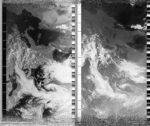2025-06-30 22:10:00
Cyprus Amateur Radio Society
Nicosia , Cyprus
Cyprus
NOAA-19

2025-06-30 10:20:00
Maufox
Mauritius, Mauritius
Mauritius
NOAA-19

2025-06-30 09:47:00
Oppressive Heat Project
Phnom Penh, Cambodia
Cambodia
NOAA-19
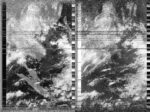
2025-06-29 22:11:00
Gilboa, New York
Gilboa, New York, United States
United States
NOAA-19
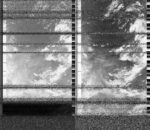
2025-06-29 22:13:00
Goownown Growers
The Seaweed Institute
CAST, Helston, Cornwall, United Kingdom
United Kingdom
NOAA-19
2025-06-29 23:07:00
Foto Colectania
Hangar
Ràdio Web MACBA
Barcelona, Spain
Spain
NOAA-19

2025-06-29 11:00:00
Cyprus Amateur Radio Society
Nicosia , Cyprus
Cyprus
NOAA-19

2025-06-29 10:33:00
Maufox
Mauritius, Mauritius
Mauritius
NOAA-19

2025-06-29 10:00:00
Oppressive Heat Project
Phnom Penh, Cambodia
Cambodia
NOAA-19
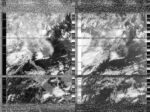
2025-06-28 22:26:00
Goownown Growers
The Seaweed Institute
CAST, Helston, Cornwall, United Kingdom
United Kingdom
NOAA-19
2025-06-28 10:57:00
Gilboa, New York
Gilboa, New York, United States
United States
NOAA-19
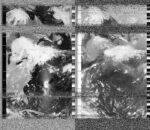
2025-06-28 11:53:00
Foto Colectania
Hangar
Ràdio Web MACBA
Barcelona, Spain
Spain
NOAA-19

2025-06-28 09:05:00
Maufox
Mauritius, Mauritius
Mauritius
NOAA-19

2025-06-27 22:34:00
Diana Engelmann
Filip Shatlan
Gainesville, Florida , United States
United States
NOAA-19
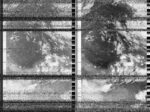
2025-06-27 21:35:00
Oppressive Heat Project
Phnom Penh, Cambodia
Cambodia
NOAA-19
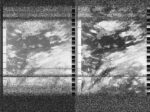
2025-06-27 11:00:05
Richard A Carter
University of York, Campus East, United Kingdom
United Kingdom
NOAA-19
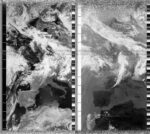
Quiet campus, wave-like formations of cloud overhead, a gentle breeze. A heat wave is impending for this weekend. Some rain last night, but too little overall.
2025-06-27 12:06:00
Foto Colectania
Hangar
Ràdio Web MACBA
Barcelona, Spain
Spain
NOAA-19

2025-06-27 09:17:00
Maufox
Mauritius, Mauritius
Mauritius
NOAA-19

2025-06-26 22:46:00
Diana Engelmann
Filip Shatlan
Gainesville, Florida , United States
United States
NOAA-19
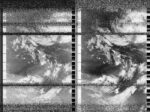
2025-06-26 11:26:00
Diana Engelmann
Filip Shatlan
Gainesville, Florida , United States
United States
NOAA-19
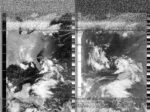
2025-06-26 12:19:00
Foto Colectania
Hangar
Ràdio Web MACBA
Barcelona, Spain
Spain
NOAA-19

2025-06-26 09:30:00
Maufox (MU)
Mauritius, Mauritius
Mauritius
NOAA-19
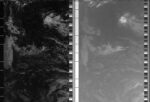
2025-06-25 22:59:00
Diana Engelmann
Filip Shatlan
Gainesville, Florida , United States
United States
NOAA-19
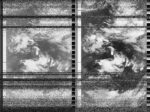
2025-06-25 21:56:00
JHB (SA)
Roodepoort, Johannesburg, South Africa
South Africa
NOAA-19

2025-06-25 21:33:00
Cyprus Amateur Radio Society (CY)
Nicosia , Cyprus
Cyprus
NOAA-19

2025-06-25 22:01:00
Oppressive Heat Project (KH)
Phnom Penh, Cambodia
Cambodia
NOAA-19
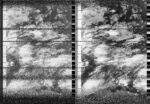
2025-06-24 23:12:00
Diana Engelmann
Filip Shatlan
Gainesville, Florida , United States
United States
NOAA-19
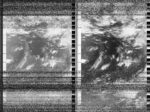
2025-06-24 11:52:00
Diana Engelmann
Filip Shatlan
Gainesville, Florida , United States
United States
NOAA-19
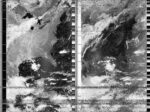
2025-06-24 22:13:00
Oppressive Heat Project (KH)
Phnom Penh, Cambodia
Cambodia
NOAA-19
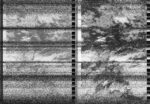
2025-06-24 11:46:00
Goownown Growers
The Seaweed Institute
CAST, Helston, Cornwall, United Kingdom
United Kingdom
NOAA-19
2025-06-23 23:25:00
Diana Engelmann
Filip Shatlan
Gainesville, Florida , United States
United States
NOAA-19
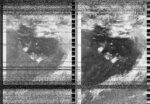
2025-06-23 23:08:00
Tsonami Arte Sonoro (CL)
Valparaiso, Chile
Chile
NOAA-19

2025-06-23 21:43:36
Alan Robertson
Bathgate, West Lothian, UK
UK
NOAA-19
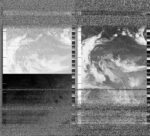
2025-06-23 21:58:00
Cyprus Amateur Radio Society (CY)
Nicosia , Cyprus
Cyprus
NOAA-19

2025-06-23 12:05:00
Diana Engelmann
Filip Shatlan
Gainesville, Florida , United States
United States
NOAA-19
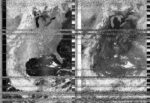
2025-06-23 11:50:19
Alan Robertson
Bathgate, West Lothian, UK
UK
NOAA-19
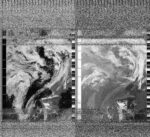
2025-06-23 11:58:00
Goownown Growers
The Seaweed Institute
CAST, Helston, Cornwall, United Kingdom
United Kingdom
NOAA-19
2025-06-23 10:08:00
Maufox (MU)
Mauritius, Mauritius
Mauritius
NOAA-19

2025-06-22 12:04:38
Sasha Engelmann
Hackney Downs, London, United Kingdom
United Kingdom
NOAA-19
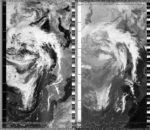
We woke up to news of US airstrikes on Iran. Operation 'Midnight Hammer' was later outlined in a press conference at the Pentagon as an 'overwhelming success'. Trump's actions were commended as 'bold and brilliant', and soldiers were called 'warriors'. God was invoked several times. Watching from London, I couldn't help but remember Brian Massumi's analysis of speeches by Ronald Reagan, and the way the content of Reagan's speeches mattered less than the way affect was 'modulated' on screen. Today, affect was heavily 'modulated' with word choice, repetitive gestures, and an absurd performance of stature and power.
The longest day of the year in the Northern Hemisphere passed by in a blur of heat. This weekend, London faced its first amber heat warning from the Met Office since 2023. At Loughborough Junction in South London yesterday, passengers were forced to wait in overcrowded, boiling train cars for up to two hours, and ultimately to walk along the hot train tracks to evacuate between stations. The dry, brittle grass of Hackney Downs was dotted with sunbathers but many people also hurried across, not willing to stop at the height of noon.
2025-06-22 10:48:00
Cyprus Amateur Radio Society (CY)
Nicosia , Cyprus
Cyprus
NOAA-19

2025-06-22 10:21:00
Maufox (MU)
Mauritius, Mauritius
Mauritius
NOAA-19

2025-06-22 09:47:00
Oppressive Heat Project (KH)
Phnom Penh, Cambodia
Cambodia
NOAA-19
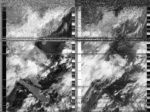
2025-06-21 23:07:00
Foto Colectania
Hangar
Ràdio Web MACBA
Barcelona, Spain
Spain
NOAA-19

2025-06-21 10:34:00
Maufox (MU)
Mauritius, Mauritius
Mauritius
NOAA-19

2025-06-20 23:04:00
Iterable pueyrredon (AR)
Cordoba , Argentina
Argentina
NOAA-19
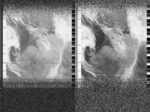
2025-06-20 11:53:00
Foto Colectania
Hangar
Ràdio Web MACBA
Barcelona, Spain
Spain
NOAA-19

2025-06-20 09:06:00
Maufox (MU)
Mauritius, Mauritius
Mauritius
NOAA-19

2025-06-19 11:00:42
Richard A Carter
University of York, Campus East, United Kingdom
United Kingdom
NOAA-19
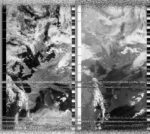
A fierce morning, sunlight pitching down, and a breeze that brings little immediate respite. The first of the summer heatwaves is here. Still sounding the remaining APT NOAA satellites where time and space permit. In recent weeks I have noticed a wandering band of noise, ill defined, which occasionally intersects with the NOAA signal, as here, and disrupts the reception.
2025-06-19 09:18:00
Maufox (MU)
Mauritius, Mauritius
Mauritius
NOAA-19
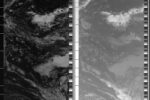
2025-06-18 22:47:00
Diana Engelmann
Filip Shatlan
Gainesville, Florida , United States
United States
NOAA-19
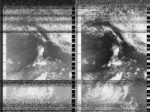
2025-06-18 23:29:00
Iterable pueyrredon (AR)
Cordoba , Argentina
Argentina
NOAA-19
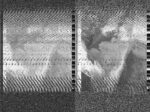
2025-06-18 22:02:48
Nagy Istvan
Lajosmizse, Hungary
Hungary
NOAA-19

2025-06-18 11:27:00
Diana Engelmann
Filip Shatlan
Gainesville, Florida , United States
United States
NOAA-19
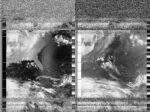
2025-06-18 11:23:00
Gilboa, New York (US)
Gilboa, New York, United States
United States
NOAA-19
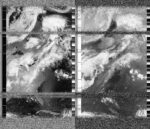
2025-06-15 22:10:00
Louis Potgieter
Roodepoort, Johannesburg, South Africa
South Africa
NOAA-19

2025-06-18 12:19:00
Foto Colectania
Hangar
Ràdio Web MACBA
Barcelona, Spain
Spain
NOAA-19

2025-06-18 09:30:00
Maufox (MU)
Mauritius, Mauritius
Mauritius
NOAA-19
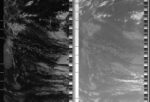
2025-06-17 23:06:11
Derrick Yohn
Transfer, Pennsylvania, United States
United States
NOAA-19

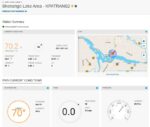

Images: (1) - Personal Weather Station at time of APT. (2)-APT Imagery with map overlay.
2025-06-17 22:59:00
Diana Engelmann
Filip Shatlan
Gainesville, Florida , United States
United States
NOAA-19
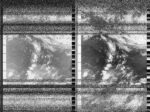
2025-06-17 23:42:00
Iterable pueyrredon (AR)
Cordoba , Argentina
Argentina
NOAA-19
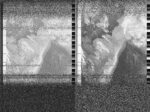
2025-06-17 21:19:15
Alan Robertson
Bathgate, West Lothian, UK
UK
NOAA-19
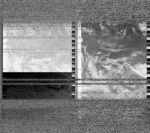
2025-06-17 11:40:00
Diana Engelmann
Filip Shatlan
Gainesville, Florida , United States
United States
NOAA-19
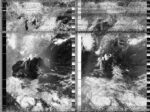
2025-06-17 09:43:00
Maufox (MU)
Mauritius, Mauritius
Mauritius
NOAA-19
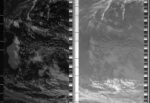
2025-06-16 23:15:42
Derrick Yohn
Transfer, Pennsylvania, United States
United States
NOAA-19




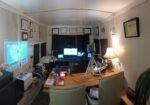
Photos: Weather Station Data at time of APT submission, Outside of weather office, 2 Interior photos of weather office. This is my 'outside office' typically used for Auxiliary Communications, Weather Analysis and other projects.
2025-06-16 23:12:00
Diana Engelmann
Filip Shatlan
Gainesville, Florida , United States
United States
NOAA-19
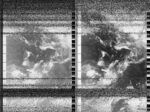
2025-06-16 22:56:00
Tsonami Arte Sonoro (CL)
Valparaiso, Chile
Chile
NOAA-19

2025-06-16 23:55:00
Iterable pueyrredon (AR)
Cordoba , Argentina
Argentina
NOAA-19
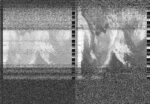
2025-06-15 11:02:26
JC
Nashville, TN, United States
United States
NOAA-19
2025-06-16 21:35:00
Gilboa, New York (US)
Gilboa, New York, United States
United States
NOAA-19
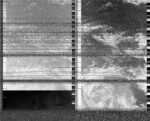
2025-06-15 21:45:36
Alison Scott
Arbroath , Scotland
Scotland
NOAA-19

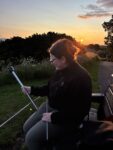
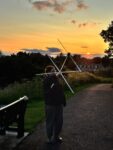
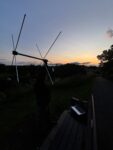
We’ve come over to the park in search of more open skies, but realise with the satellite travelling to the east the trees - a tangle of Scots pine, brambles and elder - will be in the way. Still. The sun is getting lower but you can tell it’s close to the solstice: a long bright evening. I’ve roped Aaron in to join me, and we set up on a bench near the top of the hill, next to the water tower. Kids on bikes and wandering teens don’t give us much notice. Around where we settle the broom is already full of leafy-green pods, cow parsley is high and my hayfever is off the charts. The pond below is gleaming with the setting sun, and to the west there’s an open view along the coast when the beachfront opens up and the Tay joins the North Sea.
I haven’t seen Aaron in a few days so I catch him up a bit about the End of Life Nowcast, and we reflect on the last one, during COP26 in Glasgow, laptop precariously shielded from lashing rain by a wonky brolly. It can be very useful to have a helper, whatever the weather is doing.
I think of NOAA18 still circling, silently. Pointing the antenna at the horizon, I realise I’m bracing to hear nothing, but out of static comes the familiar tones of NOAA19, if a bit faint (due to the trees). Again the idea: ‘the static's like the sound of thinking.’* I should really get another USB extender, or tape it together, this one is a bit loose fitting and when it detaches slightly from the dongle the recording stops and I have to restart it. So, my recording for this pass is in two parts. Both about 5mins. If I splice the audio files together and upload the file, what happens? Thinking with the glitch, being happy with the lack of and resisting the idea of a ‘good’ or clear image is always part of this process. Need to remember this. A counter to the closed, fabricated smoothness and place-less certainty of the pin sharp google image. The space that these DIY processes open with their fuzziness, the image’s materiality written in the grain.
*Tom McCarthy, ‘C’ (Vintage, 2010) pg63
2025-06-16 11:53:00
Diana Engelmann
Filip Shatlan
Gainesville, Florida , United States
United States
NOAA-19
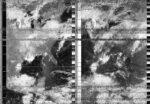
2025-06-16 11:38:54
Richard A Carter
University of York, Campus East, United Kingdom
United Kingdom
NOAA-19
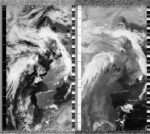
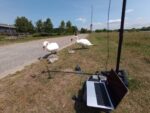
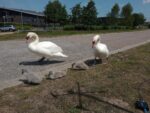
In the hope that the APT continues for a while yet, I couldn't resist trying another sounding today. Main highlight, however, was a very close terrestrial encounter with some interested passers by! (* I would not normally go anywhere so close, of course, but these particular visitors made a bee line for me and then peacefully waddled by - although I did shuffle behind the antenna as they did so!)
2025-06-15 12:52:37
EMBL ASTRONOMY CLUB
Heidelberg,Germany, Germany
Germany
NOAA-19
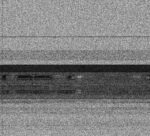
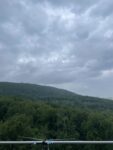
rainy, cloudy
2025-06-16 11:38:23
Alan Robertson
Bathgate, West Lothian, UK
UK
NOAA-19
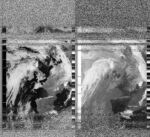
I wasn’t sure what to expect today with NOAA 19, but a strong signal is still being received on APT. Will you continue the project if APT remains active?
In terms of learning I have learned more of what doesn’t work rather than does work! Ferrite beads, position of the antenna, line of site not necessarily height, different antenna builds, directors, reflectors, element types, copper tape, wire types, skin effect, ¼ wave stubs, shielding, noise removing, software compiling, and a general “can do” spirit. VHF is ideal for inspiring and learning as it’s so hands on and forgiving if you don’t quite get it right, especially with the NOAA satellites.
I’ve started looking at the Meteor M2-3 and M2-4, and perhaps I might try other satellites at the 1700MHz range, but I can guarantee one thing - I would never have even thought this was all possible from an amateur set up without having experienced NOAA’s 15, 18 and 19! They truly are astonishing.
2025-06-16 11:42:00
Goownown Growers
The Seaweed Institute
CAST, Helston, Cornwall, United Kingdom
United Kingdom
NOAA-19

2025-06-16 09:56:00
Maufox (MU)
Mauritius, Mauritius
Mauritius
NOAA-19
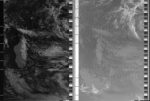
2025-06-15 22:14:00
Zack Wettstein (US)
Seattle, United States
United States
NOAA-19

2025-06-15 21:47:38
Derrick Yohn
Transfer, Pennsylvania, United States
United States
NOAA-19
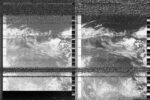

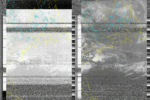
2 Extra Images are NOAA 19 Encoded with map overlay and my Personal Weather Station Data. A big SHOUT OUT to open-weather.community (Sasha & Co.) for bringing this to life and allowing us amateur radio/satellite/weather enthusiasts to have a place to share our work. Another Shout out to NOAA-15, NOAA-18 and NOAA-19 for years of relentless service. I don't know your fate, but I hope its as deserving as the service you have provided over the years. We will miss your shadows and echoes, but you will always be remembered in the annals of communities such as this. Fly high and free.
2025-06-15 22:41:00
Eliot Lambert, Domi Rybova, Greta Weston, and Barbara Mele
Legoli , Italy
Italy
NOAA-19
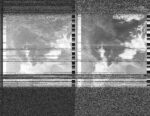
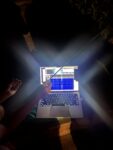
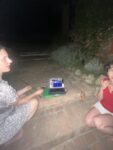
This is the first time I've picked up a NOAA satellite pass outside of NYC - I'm on a holiday with my close friends in rural Italy and it is unbelievably peaceful here - the dawn chorus/sound of cicadas at night is a far cry from the noise pollution of NYC...we just discovered a new birdsong from a Eurasian Nightjar - and it sounded like clockwork - or a faint chainsaw - it was beautiful and bizarre...I was scared we wouldn't pick up the NOAA 19 signal but after initial static it was so clear and was joyful to introduce my friends to SDR/to this methodology - one of my friends held the antenna for 15 minutes with impressive stillness - and we took a collective pause. And then to experience the decoded APT and the ephemeral cloud formations that emerged!! The last 6 minutes of the transmission were filled with static as seen on the bottom of the image - but I think I like that!
2025-06-15 10:54:25
EMBL astronomy club
Heidelberg, Germany
Germany
NOAA-19
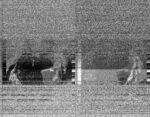
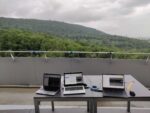
The weather was cloudy and rainy. The image of the region captured showed clouds over a part of the land regions.
2025-06-15 21:48:26
Daniel
Cambridge, United Kingdom
United Kingdom
NOAA-19
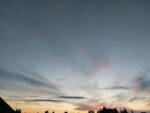
A fairly normal, sunny June day with sudden rain showers around noon.
2025-06-15 21:44:22
Alan Robertson
Bathgate, West Lothian, UK
UK
NOAA-19
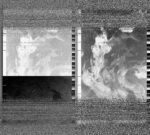
2025-06-15 10:46:46
Steve Engelmann
Santa Monica Pier, United States
United States
NOAA-19
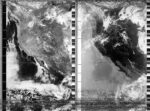
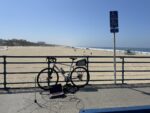
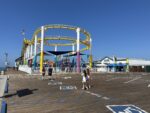

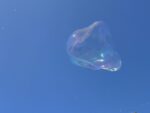
I went to the Santa Monica Pier to capture NOAA 19 as it flew over. The pier was a little busier than recently. The weather was great. School is out. It is Sunday and Father's Day. I was approached by a group of what I guess were Chinese tourists. They asked if someone is doing this in China. Almost a soon as they finished the question, they added, probably a bad idea. Another man was entertaining people with his bubble making abilities. The problem was his audience was up on the pier. He was down below on the sand. His tip bucket was in the sand next to him. Just as I was packing up a small airplane flew by pulling a sign that read, "TRUMP YOUR BDAY SUCKED #NOKINGS".
2025-06-15 12:52:38
embl astronomy club
heidelberg, germany
germany
NOAA-19
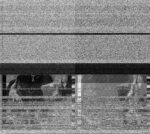
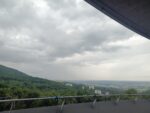
cloudy
2025-06-15 21:59:00
Cyprus Amateur Radio Society (CY)
Nicosia , Cyprus
Cyprus
NOAA-19


It was a typical warm June day with a clear sky. The temperature high was around 37 degrees celcius. In general it was a good day. At the time the picture was taken a couple kids could be heard having fun in their backyard. A couple of neighbours ware also observed taking a late afternoon walk, as the temperature had subsided to about 24 degrees celcius.
2025-06-15 12:06:00
Diana Engelmann
Filip Shatlan
Gainesville, Florida , United States
United States
NOAA-19
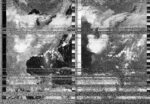
2025-06-15 11:55:07
dan rhys wakefield
river thames near canary wharf, london, uk
uk
NOAA-19



I turn the corner onto the Thames Path and the sky opens out ahead of me, blue with white clouds scatted across it. The tide is at its lowest point and the river seems calm. This stretch of the river is ripe with new development in every direction and NOAA's signal weaves in and out of the towers as I listen. The pass rises to my north at Bow Creek, moving west across the sky, setting behind the new residential development under construction at Canary Wharf. The towers obscure the signal for the final minutes of the pass, so as I turn back towards the skyline all I hear is static, fading in and out of the tide as it crashes against the stone wall of the embankment.
2025-06-15 11:52:34
Sasha Engelmann
Hackney Downs, London, United Kingdom
United Kingdom
NOAA-19
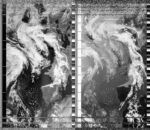
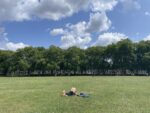
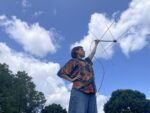
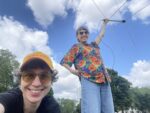
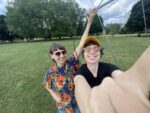
I sit on the browning grass of Hackney Downs in unseasonably warm weather and read Kaya Barry's latest article on 'unseasonable seasons'. Kaya - a fellow geographer, artist and allied thinker from many symposia and conferences - uses Rob Nixon's famous conceptual framework on 'slow violence' to explore changing meanings of seasons in a time of climate crisis. At least since colonial times, the seasons have been employed to overlay the Gregorian calendar and Western thought-systems onto many other landscapes and peoples, so that local observations of seasonality were heavily suppressed or treated as 'vulgar' (Barry, 2025). This is a slow violence of vernacular weather knowledge erasure. Yet the 'slow violence' of seasons is also about how unseasonable variations in temperature, rainfall, humidity, drought and cloud cover can sometimes be relatively subtle, minor variations, barely breaching thresholds of noticeability. I think of many years growing up in Los Angeles when an ever dryer and dryer, sunnier and sunnier winter was pleasantly enjoyed by most people I knew. Kaya cites artist Roni Horn: 'weather that is nice is often weather that is wrong' (2007: 10).
As I write, my home city of Los Angeles is invaded by the national guard: heavily armed military troops whose presence in a city that has just been devastated by wildfire is an obvious violence. 'First fire, now ICE' chant protesters in Pasadena and downtown LA, describing a feeling of living through a climate disaster that is underpinned and exacerbated by a human rights disaster, where migrant workers helping to clean up and remediate burned areas, not to mention how they sustain and contribute in myriad other ways to the culture, fabric and joy of life in Los Angeles, are ruthlessly targeted by ICE forces. The apocalyptic, elemental, even biblical metaphors of fire and ice are difficult to ignore.
These thoughts swirl like fractals as my partner and I catch one of the last passes of NOAA-19 over London to contribute to the open-weather 'end of life' nowcast, the day before most instruments on NOAA-15 and NOAA-19 will be shut down.
2025-06-15 11:53:35
Richard A Carter
University of York, Campus East, United Kingdom
United Kingdom
NOAA-19
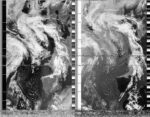
2025-06-15 11:54:51
Pauline Woolley
The Urban Garden, Nottingham, UK
UK
NOAA-19

The bees are busy. I wonder if they know.
2025-06-15 11:51:05
Alan Robertson
Bathgate, West Lothian, UK
UK
NOAA-19
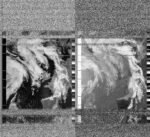
2025-06-15 11:55:00
Goownown Growers
The Seaweed Institute
CAST, Helston, Cornwall, United Kingdom
United Kingdom
NOAA-19

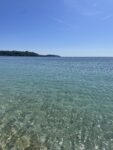
Today we had to collect washed up seaweeds for a craft workshop on seaweed pressing. We love the pressing process as a way to engage people with seaweeds.
The day is perfect and I had more time than I usually do to collect. The seaweeds best for pressing are red seaweed that tend to grow at the bottom or below the intertidal zone. When they become dislodged from their holdfasts, dying, they wash up. A northerly wind blew from the land, making the nearshore water calm – it was bliss.
Over the last half a year we have been trying to learn a little how to interpret these beautiful satellite images of familiar landmasses and unfamiliar cloud masses, not often sure what exactly we are looking at. One thing has been certain over the last few months – it’s been mostly warm and dry. We have seen many clear outlines of the cornish coast send down to us via audio file from the satellites.
It feels sadly fitting to have spent these months with our ground station, thinking more about weather, whilst the coast our work focuses on is current experiencing the warmest heat waves since records began.
Throughout April and May we have seen an ‘unprecedented’ marine heatwave in the northeastern Atlantic. The Met Office has described this heatwave as being unusual in its intensity and persistence.
The last time this was observed was in 2023, at the time the most severe marine heatwave recorded in this part of the ocean. Then, both Ruth and I were working harvesting seaweed at every low tide on The Lizard peninsular. Unaware of the data being gathered that summer, we anecdotally saw a large bleaching and dieback of our favourite seaweed Dulse. We worried about its recovery after this local marine heatwave and we wondered what data was being gathered on the effect of heat on the very shallow waters of the intertide. The Dulse seemed to recover well but we couldn’t help wonder how many of these events the ecosystem could withstand. Now working less physically close to this ecosystem, seeing more extreme marine heatwaves, we are left even more concerned for their future.
Today, whilst the tide is metres above most species, I swim in the unseasonably warm waters and gather dead floating seaweeds, a tool to teach people about the ecosystem. I wonder how many of them have died prematurely due to heat or if this is just the normal natural lifecycle.
2025-06-15 11:52:00
Hospitalfield (UK)
Arbroath, Scotland
Scotland
NOAA-19
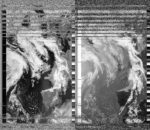
2025-06-15 10:14:42
Pauline Woolley
The Urban Garden, Nottingham, UK
UK
NOAA-19

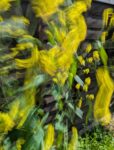
The rain from the night has cleared and sun begins to emerge along with heat and humidity.
An intermittent breeze moves the wild mustard flowers, creating a joyful sway. It bends instinctively, knowing what to do in order to move in time with the weather. In that brief moment it is apparent it's evolutionary development is far more refined than ours.
2025-06-15 10:09:00
Maufox (MU)
Mauritius, Mauritius
Mauritius
NOAA-19

2025-06-14 22:26:00
Zack Wettstein (US)
Seattle, United States
United States
NOAA-19

2025-06-14 22:01:00
Gilboa, New York (US)
Gilboa, New York, United States
United States
NOAA-19

2025-06-15 09:28:29
Anna Madeleine Raupach
Sydney, Gadigal Country, NSW
NSW
NOAA-19
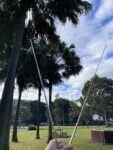
In sub-tropical Sydney, very green and humid for winter. I felt the climate today through noise - of traffic, planes, groups of people, sirens, and only a few birds. I could only recieve a faint satellite signal through it all, but am contributing the noise to the Now-cast.
2025-06-14 10:59:40
Steve Engelmann
Santa Monica Mountains, United States
United States
NOAA-19
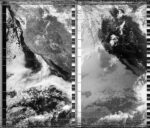
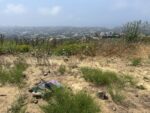
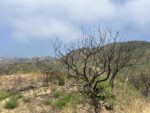
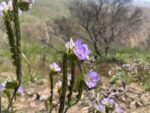

From a trail in the Santa Monica mountains just above Pacific Palisades I captured this satellite pass. The marine layer is beginning to burn off a little earlier in the day. What used to be a charred landscape just a few months earlier is now mostly covered with some plant life. Fresh growth is emerging from the base of many shrubs (chamise, laurel sumac, elderberry) as the roots are still very much alive. Coastal morning glory climb up burnt skeletons. Many bees take sips from large-flowered phacelia.
Meanwhile a "No Kings" demonstration in Santa Monica attracted thousands of peaceful protesters.
2025-06-14 09:38:37
Anna Madeleine Raupach and Leah Beeferman
Clear Range, Ngunawal Ngambri country, Australia
Australia
NOAA-19
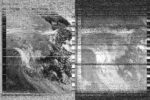
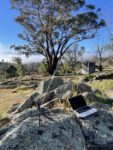
Recieved from a beautiful property in Clear Range, on a clear cold morning with bright blue skies up above the fog below.
2025-06-14 21:57:00
Alan Robertson
Bathgate, West Lothian, UK
UK
NOAA-19
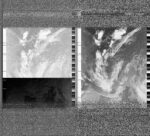
2025-06-14 21:58:00
Hospitalfield (UK)
Arbroath, Scotland
Scotland
NOAA-19
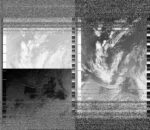
2025-06-14 21:13:02
Nagy Istvan
Lajosmizse, Hungary
Hungary
NOAA-19

No clouds, 18.3 Celsius, 64%Hum, 1021kPa, No wind, Sunset.
2025-06-14 22:11:00
Cyprus Amateur Radio Society (CY)
Nicosia , Cyprus
Cyprus
NOAA-19

2025-06-14 10:13:00
Iterable pueyrredon (AR)
Cordoba , Argentina
Argentina
NOAA-19
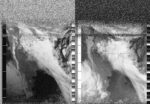
2025-06-14 12:03:46
Alan Robertson
Bathgate, West Lothian, UK
UK
NOAA-19
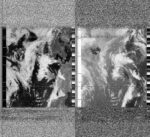
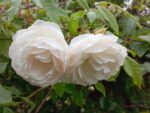
Warm with thundery downpours today - good for the garden!
2025-06-14 10:22:00
Maufox (MU)
Mauritius, Mauritius
Mauritius
NOAA-19

2025-06-13 22:52:00
Iterable pueyrredon (AR)
Cordoba , Argentina
Argentina
NOAA-19
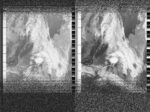
2025-06-13 22:09:41
Alan Robertson
Bathgate, West Lothian, UK
UK
NOAA-19
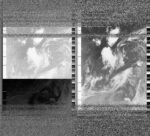
2025-06-13 23:08:00
Foto Colectania
Hangar
Ràdio Web MACBA
Barcelona, Spain
Spain
NOAA-19

2025-06-13 11:13:18
Steve Engelmann
Pacific Palisades, California, United States
United States
NOAA-19
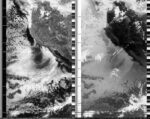
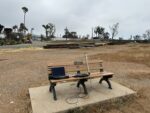
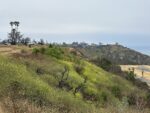
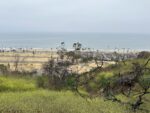
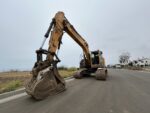
Returned to a spot in Pacific Palisades overlooking the Pacific Ocean. The overcast skies are typical "June gloom". In the second image you can see the opportunistic and invasive black mustard being among the first to recolonize after the fires. Below the bluffs there is a mobile home community which was completely wiped out by the Palisades Fire. On the left you can see the burned lots that have been cleared and covered with an organic pulp to help reduce dust. On the right of the same image are lots that have not been cleared yet.
Meanwhile, Los Angeles has been invaded by the National Guard which neither the mayor of governor requested. During the election, the current president categorized "illegal" immigrants as violent rapists and murders invading our country. Starting a week ago ICE officials started raiding a garment factory and a Home Depot where people go to find work. I didn't know the violent rapists and murders were also good a sewing and construction. Protests, mostly peaceful, showed up in a few areas. Questionable tactics targeting vulnerable workers justify the outrage.
2025-06-13 21:25:36
Nagy Istvan
Lajosmizse, Hungary
Hungary
NOAA-19
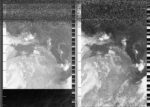
Sunset, no clouds, 17.5 Celsius, 1023kPa, No wind at moment.
2025-06-13 10:25:00
Iterable pueyrredon (AR)
Cordoba , Argentina
Argentina
NOAA-19
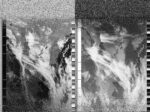
2025-06-13 12:16:29
Alan Robertson
Bathgate, West Lothian, UK
UK
NOAA-19
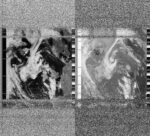
2025-06-13 11:01:00
Cyprus Amateur Radio Society (CY)
Nicosia , Cyprus
Cyprus
NOAA-19

2025-06-13 10:35:00
Maufox (MU)
Mauritius, Mauritius
Mauritius
NOAA-19

2025-06-12 23:05:00
Iterable pueyrredon (AR)
Cordoba , Argentina
Argentina
NOAA-19
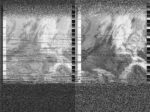
2025-06-13 09:33:00
Jo Pollit
Rumen Rachev
Perth , Australia
Australia
NOAA-19

2025-06-12 22:23:35
Tom Lye
Bidston Observatory, Wirral, United Kingdom
United Kingdom
NOAA-19
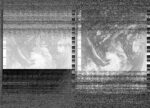
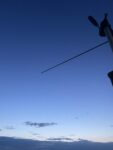
Lots of heavy rain this afternoon - walking through the woods and you could feel the clouds wanting to release for a long time before they did. A clearer sky this evening but it felt like there was more static in the air. I liked moving around a bit more this time and playing with the signal.
2025-06-12 22:23:00
Goownown Growers
The Seaweed Institute
CAST, Helston, Cornwall, United Kingdom
United Kingdom
NOAA-19

2025-06-12 11:22:00
Zack Wettstein (US)
Seattle, United States
United States
NOAA-19

2025-06-12 10:38:00
Iterable pueyrredon (AR)
Cordoba , Argentina
Argentina
NOAA-19
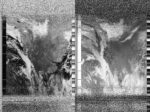
2025-06-12 12:29:37
Richard A Carter
University of York, Campus East, United Kingdom
United Kingdom
NOAA-19
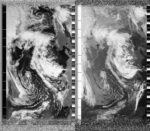
2025-06-12 10:49:45
Richard A Carter
University of York, Campus East, United Kingdom
United Kingdom
NOAA-19
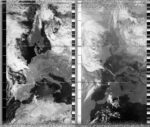
2025-06-12 11:54:00
Foto Colectania
Hangar
Ràdio Web MACBA
Barcelona, Spain
Spain
NOAA-19

2025-06-12 09:06:00
Maufox (MU)
Mauritius, Mauritius
Mauritius
NOAA-19

2025-06-12 10:24:00
Asmit Rai
Cosmos Astronomy Club
Pune, India
India
NOAA-19
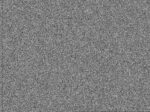
2025-06-11 22:35:00
Diana Engelmann
Filip Shatlan
Gainesville, Florida , United States
United States
NOAA-19
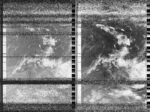
2025-06-11 23:17:00
Iterable pueyrredon (AR)
Cordoba , Argentina
Argentina
NOAA-19
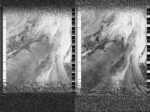
2025-06-11 22:36:57
Tom Lye
Bidston Observatory, Wirral, UK
UK
NOAA-19
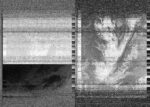
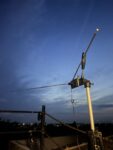
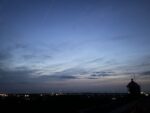
A warm and sticky day on Bidston Hill, with high clouds and wind moving in at dusk. I finally got the bits for a V-Dipole antenna and it felt nice to observe a passing satellite with an antenna in my hands.
I also felt a little sad knowing that NOAA18 had stopped signalling last week, so was galvanised to connect with 19 at last! More to come...
2025-06-11 22:35:11
Alan Robertson
Bathgate, West Lothian, UK
UK
NOAA-19
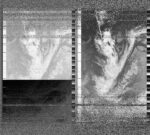
2025-06-11 11:11:00
Gilboa, New York (US)
Gilboa, New York, United States
United States
NOAA-19
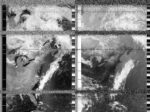
2025-06-11 21:36:00
Oppressive Heat Project (KH)
Phnom Penh, Cambodia
Cambodia
NOAA-19
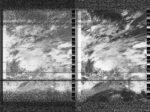
2025-06-11 10:51:00
Iterable pueyrredon (AR)
Cordoba , Argentina
Argentina
NOAA-19
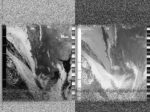
2025-06-11 11:01:03
Richard A Carter
University of York, Campus East, United Kingdom
United Kingdom
NOAA-19
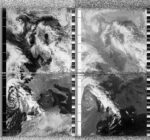
A large number of flying insects gathered around the antenna during this sounding, as Typhoon warplanes roared overhead. A collision of scales and contexts and modes of thinking and being in the atmosphere - as a critical medium of life, as a territory to be contested and controlled, as a domain to be observed and quantified, measured and modelled.
2025-06-11 11:01:06
Alan Robertson
Bathgate, West Lothian, UK
UK
NOAA-19
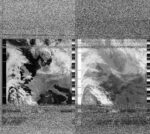
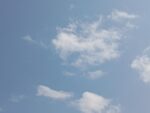
2025-06-11 12:07:00
Foto Colectania
Hangar
Ràdio Web MACBA
Barcelona, Spain
Spain
NOAA-19

2025-06-11 09:19:00
Maufox (MU)
Mauritius, Mauritius
Mauritius
NOAA-19
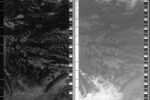
2025-06-10 22:31:00
Tsonami Arte Sonoro
Valparaiso, Chile
Chile
NOAA-19

2025-06-10 23:30:00
Iterable pueyrredon
Cordoba , Argentina
Argentina
NOAA-19
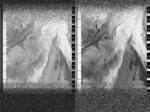
2025-06-10 22:03:00
Cosmos Astronomy Club MIT WPU
Pune, India
India
NOAA-19
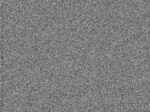
2025-06-10 11:25:00
Heidi Neilson
Gilboa, New York, United States
United States
NOAA-19
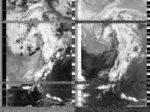
2025-06-10 21:49:00
Oppressive Heat Project
Phnom Penh, Cambodia
Cambodia
NOAA-19
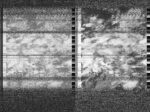
2025-06-10 11:03:00
Iterable pueyrredon
Cordoba , Argentina
Argentina
NOAA-19
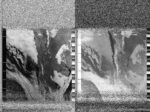
2025-06-10 11:13:45
Alan Robertson
Bathgate, West Lothian, UK
UK
NOAA-19
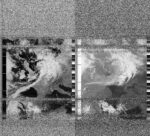
2025-06-10 12:20:00
Foto Colectania
Hangar
Ràdio Web MACBA
Barcelona, Spain
Spain
NOAA-19

2025-06-09 23:00:00
Filip Shatlan and Diana Engelmann
Gainesville, Florida , United States
United States
NOAA-19
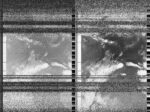
2025-06-09 23:43:00
Iterable pueyrredon
Cordoba , Argentina
Argentina
NOAA-19
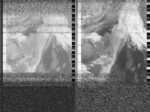
2025-06-09 21:19:59
Alan Robertson
Bathgate, West Lothian, UK
UK
NOAA-19
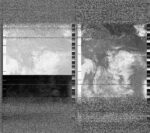
2025-06-09 22:15:00
Cosmos Astronomy Club MIT WPU
Pune, India
India
NOAA-19
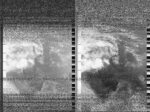
2025-06-09 11:26:27
Alan Robertson
Bathgate, West Lothian, UK
UK
NOAA-19
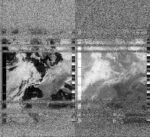
2025-06-09 09:44:00
Maufox
Mauritius, Mauritius
Mauritius
NOAA-19
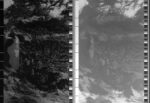
2025-06-08 23:56:00
Iterable pueyrredon
Cordoba , Argentina
Argentina
NOAA-19
2025-06-08 21:32:31
Alan Robertson
Bathgate, West Lothian, UK
UK
NOAA-19
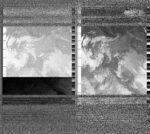
2025-06-08 11:54:00
Filip Shatlan and Diana Engelmann
Gainesville, Florida , United States
United States
NOAA-19
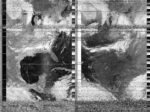
2025-06-08 11:39:07
Alan Robertson
Bathgate, West Lothian, UK
UK
NOAA-19
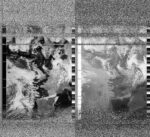
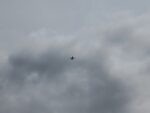
2025-06-08 12:40:55
Nagy Istvan
Lajosmizse, Hungary
Hungary
NOAA-19

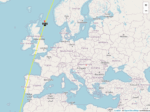
Sunny,, 29.4 Celsius, 1013kPa, Wind: 2.1km/h from West.
2025-06-08 11:43:00
Goownown Growers
The Seaweed Institute
CAST, Helston, Cornwall, United Kingdom
United Kingdom
NOAA-19

2025-06-08 09:56:00
Maufox
Mauritius, Mauritius
Mauritius
NOAA-19
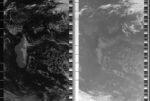
2025-06-07 22:14:00
Zack Wettstein
Seattle, United States
United States
NOAA-19

2025-06-07 21:45:06
Alan Robertson
Bathgate, West Lothian, UK
UK
NOAA-19
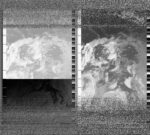
2025-06-07 21:59:00
Cyprus Amateur Radio Society
Nicosia , Cyprus
Cyprus
NOAA-19

2025-06-07 11:51:49
Alan Robertson
Bathgate, West Lothian, UK
UK
NOAA-19
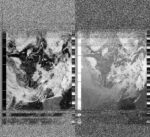
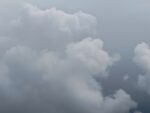
2025-06-07 11:52:00
Hospitalfield
Arbroath, Scotland
Scotland
NOAA-19
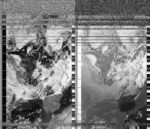
2025-06-07 10:09:00
Maufox
Mauritius, Mauritius
Mauritius
NOAA-19

2025-06-06 21:57:45
Alan Robertson
Bathgate, West Lothian, UK
UK
NOAA-19
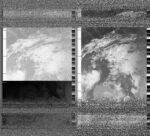
2025-06-06 21:59:00
Hospitalfield
Arbroath, Scotland
Scotland
NOAA-19
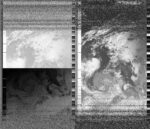
2025-06-06 10:13:00
Iterable pueyrredon
Cordoba , Argentina
Argentina
NOAA-19
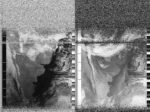
2025-06-06 12:05:10
Richard A Carter
University of York, Campus East, United Kingdom
United Kingdom
NOAA-19
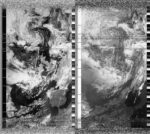
2025-06-06 10:49:00
Cyprus Amateur Radio Society
Nicosia , Cyprus
Cyprus
NOAA-19

2025-06-06 09:38:18
Anna Madeleine Raupach
Ngunawal / Ngambri land, ACT Australia
ACT Australia
NOAA-19
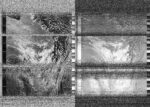
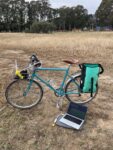
A cold morning after a frosty night - one of the first of our winter.
2025-06-06 09:49:00
Oppressive Heat Project
Phnom Penh, Cambodia
Cambodia
NOAA-19
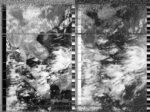
2025-06-05 22:53:00
Iterable pueyrredon
Cordoba , Argentina
Argentina
NOAA-19
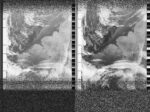
2025-06-05 22:10:25
Alan Robertson
Bathgate, West Lothian, UK
UK
NOAA-19
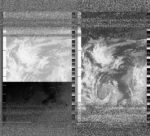
2025-06-05 22:11:00
Goownown Growers
The Seaweed Institute
CAST, Helston, Cornwall, United Kingdom
United Kingdom
NOAA-19

2025-06-05 23:08:00
Foto Colectania
Hangar
Ràdio Web MACBA
Barcelona, Spain
Spain
NOAA-19

2025-06-05 21:26:20
Nagy Istvan
Lajosmizse, Hungary
Hungary
NOAA-19


My homemade QFH antenna, copper tube. RSP1A receiver, manual receiving.
2025-06-05 10:26:00
Iterable pueyrredon
Cordoba , Argentina
Argentina
NOAA-19
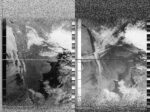
2025-06-05 11:02:00
Cyprus Amateur Radio Society
Nicosia , Cyprus
Cyprus
NOAA-19

2025-06-04 23:06:00
Iterable pueyrredon
Cordoba , Argentina
Argentina
NOAA-19
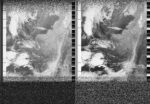
2025-06-04 22:24:00
Goownown Growers
The Seaweed Institute
CAST, Helston, Cornwall, United Kingdom
United Kingdom
NOAA-19

2025-06-04 21:38:54
Nagy Istvan
Lajosmizse, Hungary
Hungary
NOAA-19


2025-06-04 11:23:00
Zack Wettstein
Seattle, United States
United States
NOAA-19

2025-06-04 21:24:00
Oppressive Heat
Phnom Penh, Cambodia
Cambodia
NOAA-19
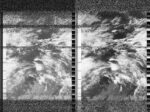
2025-06-04 10:39:00
Iterable pueyrredon
Cordoba , Argentina
Argentina
NOAA-19
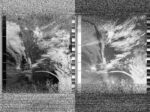
2025-06-04 09:07:00
Maufox
Mauritius, Mauritius
Mauritius
NOAA-19

2025-06-04 10:24:00
Cosmos Astronomy Club MIT WPU
Pune, India
India
NOAA-19
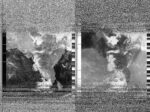
2025-06-03 21:52:00
Maufox
Mauritius, Mauritius
Mauritius
NOAA-19
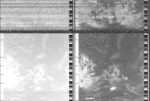
2025-06-03 21:51:00
Cosmos Astronomy Club MIT WPU
Pune, India
India
NOAA-19
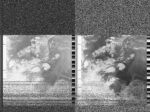
2025-06-03 12:43:09
Richard A Carter
University of York, Campus East, United Kingdom
United Kingdom
NOAA-19
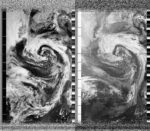
2025-06-03 11:01:49
Alan Robertson
Bathgate, West Lothian, UK
UK
NOAA-19
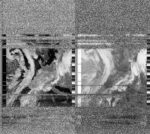
2025-06-03 12:08:00
Foto Colectania
Hangar
Ràdio Web MACBA
Barcelona, Spain
Spain
NOAA-19

2025-06-02 22:49:00
Filip Shatlan and Diana Engelmann
Gainesville, Florida , United States
United States
NOAA-19
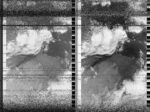
2025-06-02 22:32:00
Tsonami Arte Sonoro
Valparaiso, Chile
Chile
NOAA-19

2025-06-02 23:32:00
Iterable pueyrredon
Cordoba , Argentina
Argentina
NOAA-19

2025-06-02 21:08:12
Alan Robertson
Bathgate, West Lothian, UK
UK
NOAA-19
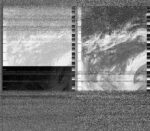
Gusty winds, cloudy, rain expected later.
2025-06-02 22:04:00
Cosmos Astronomy Club MIT WPU
Pune, India
India
NOAA-19
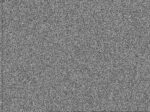
2025-06-02 11:25:00
Heidi Neilson
Gilboa, New York, United States
United States
NOAA-19
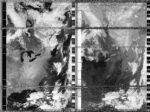
2025-06-02 21:49:00
Oppressive Heat
Phnom Penh, Cambodia
Cambodia
NOAA-19
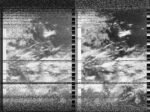
2025-06-02 11:14:29
Alan Robertson
Bathgate, West Lothian, UK
UK
NOAA-19
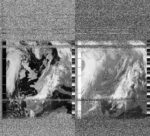
2025-06-02 12:20:00
Foto Colectania
Hangar
Ràdio Web MACBA
Barcelona, Spain
Spain
NOAA-19


2025-06-01 11:41:00
Filip Shatlan and Diana Engelmann
Gainesville, Florida , United States
United States
NOAA-19
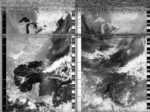
2025-06-01 11:27:10
Alan Robertson
Bathgate, West Lothian, UK
UK
NOAA-19
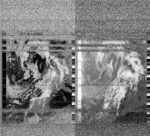
2025-06-01 11:31:00
Goownown Growers
The Seaweed Institute
CAST, Helston, Cornwall, United Kingdom
United Kingdom
NOAA-19
2025-05-31 22:02:00
Zack Wettstein
Seattle, United States
United States
NOAA-19
2025-05-31 21:33:14
Alan Robertson
Bathgate, West Lothian, UK
UK
NOAA-19
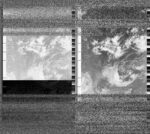
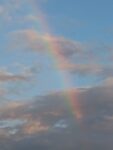
2025-05-31 11:55:00
Filip Shatlan and Diana Engelmann
Gainesville, Florida , United States
United States
NOAA-19
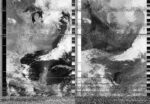
2025-05-31 10:59:20
Soph Dyer
Türkenschanzpark, Austria
Austria
NOAA-19
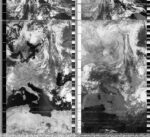
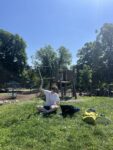
Despite planning to capture a high elevation NOAA-19 pass, when I loaded SDR++ it is NOAA-18's beep beep that I hear. I hit record before shifting frequencies, leaving NOAA-18 over the Balkans and picking-up NOAA-19's rising signal as the satellite crosses Finland. Unable to see my laptop's screen in the sun, I try but fail to stop and restart the recording, and so the software creates a long, stacked image.
In Vienna, we have had so much rain: light drizzle, heavy down pours, buckets, silvery mists, and sudden showers. It has also stayed unseasonably cold. Yet, since yesterday afternoon, the air has warmed and warmed until the temperature climbed to a body-loosening 28 degrees Celsius. The change has been so abrupt, it’s like the air arrived from somewhere else, already dried and heated. I will check the wind direction when home.
2025-05-31 11:44:00
Goownown Growers
The Seaweed Institute
CAST, Helston, Cornwall, United Kingdom
United Kingdom
NOAA-19

2025-05-31 11:40:00
Hospitalfield
Arbroath, Scotland
Scotland
NOAA-19
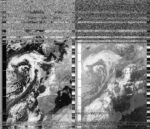
2025-05-30 22:15:00
Zack Wettstein
Seattle, United States
United States
NOAA-19

2025-05-30 21:45:50
Alan Robertson
Bathgate, West Lothian, UK
UK
NOAA-19
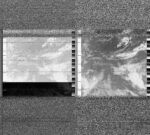
2025-05-30 22:00:00
Cyprus Amateur Radio Society
Nicosia , Cyprus
Cyprus
NOAA-19

2025-05-30 11:52:30
Richard A Carter
University of York, Campus East, United Kingdom
United Kingdom
NOAA-19
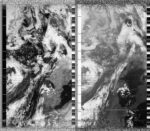
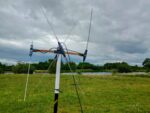
2025-05-30 11:52:32
Alan Robertson
Bathgate, West Lothian, UK
UK
NOAA-19
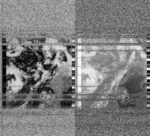
2025-05-30 11:53:00
Hospitalfield
Arbroath, Scotland
Scotland
NOAA-19
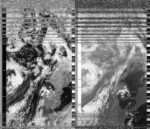
2025-05-29 22:02:00
Heidi Neilson
Gilboa, New York, United States
United States
NOAA-19
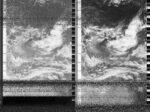
2025-05-29 22:42:00
Iterable pueyrredon
Cordoba , Argentina
Argentina
NOAA-19
2025-05-29 23:58:27
Alan Robertson
Bathgate, West Lothian, UK
UK
NOAA-19
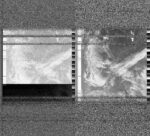
2025-05-29 21:59:00
Hospitalfield
Arbroath, Scotland
Scotland
NOAA-19
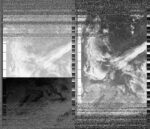
2025-05-29 10:15:00
Iterable pueyrredon
Cordoba , Argentina
Argentina
NOAA-19
2025-05-28 22:15:00
Heidi Neilson
Gilboa, New York, United States
United States
NOAA-19

2025-05-28 22:12:00
Goownown Growers
The Seaweed Institute
CAST, Helston, Cornwall, United Kingdom
United Kingdom
NOAA-19

2025-05-28 23:09:00
Foto Colectania
Hangar
Ràdio Web MACBA
Barcelona, Spain
Spain
NOAA-19

2025-05-28 10:28:00
Iterable pueyrredon
Cordoba , Argentina
Argentina
NOAA-19
2025-05-27 22:24:00
Goownown Growers
The Seaweed Institute
CAST, Helston, Cornwall, United Kingdom
United Kingdom
NOAA-19

2025-05-27 11:23:00
Zack Wettstein
Seattle, United States
United States
NOAA-19

2025-05-27 21:26:00
Oppressive Heat
Phnom Penh, Cambodia
Cambodia
NOAA-19

2025-05-27 10:40:00
Iterable pueyrredon
Cordoba , Argentina
Argentina
NOAA-19
2025-05-27 12:31:00
Richard A Carter
University of York, Campus East, United Kingdom
United Kingdom
NOAA-19
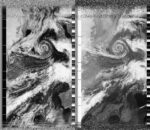
2025-05-26 23:20:00
Iterable pueyrredon
Cordoba , Argentina
Argentina
NOAA-19
2025-05-26 11:36:00
Zack Wettstein
Seattle, United States
United States
NOAA-19

2025-05-26 11:13:00
Heidi Neilson
Gilboa, New York, United States
United States
NOAA-19
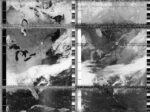
2025-05-26 21:38:00
Oppressive Heat
Phnom Penh, Cambodia
Cambodia
NOAA-19

2025-05-26 10:53:00
Iterable pueyrredon
Cordoba , Argentina
Argentina
NOAA-19
2025-05-26 11:32:17
Alan Robertson
Bathgate, West Lothian, UK
UK
NOAA-19
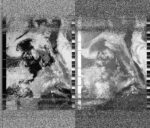
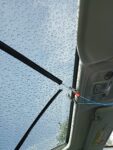
Experimental V-dipole mounted on car, using SDR++ for Android with RTL-SDR . Manual Doppler adjustments. Around 40 degrees elevation. Some interference from nearby aircraft - still testing gain settings. Rain and windy today.
2025-05-26 12:08:00
Foto Colectania
Hangar
Ràdio Web MACBA
Barcelona, Spain
Spain
NOAA-19

2025-05-25 22:49:00
Filip Shatlan and Diana Engelmann
Gainesville, Florida , United States
United States
NOAA-19
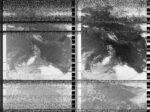
2025-05-25 23:33:00
Iterable pueyrredon
Cordoba , Argentina
Argentina
NOAA-19

2025-05-25 22:04:00
Cosmos Astronomy Club MIT WPU
Pune, India
India
NOAA-19
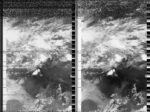
2025-05-25 11:25:00
Heidi Neilson
Gilboa, New York, United States
United States
NOAA-19
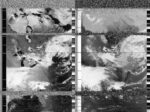
2025-05-25 12:21:00
Foto Colectania
Hangar
Ràdio Web MACBA
Barcelona, Spain
Spain
NOAA-19

2025-05-21 11:01:34
Steve Engelmann
Santa Monica, California, United States
United States
NOAA-19

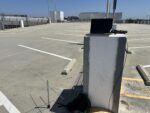
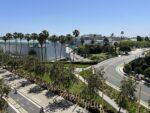
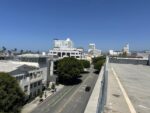
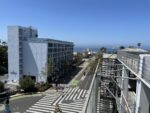
Today I went to the top level of a parking garage next to the Sears building in Santa Monica. It was a beautiful view with clear skies. I was joined by a twenty-something who was using the empty lot to work on his skateboard skills. He also paused a few times to shout some indistinguishable words to someone below. Then he left.
2025-05-24 11:42:00
Filip Shatlan and Diana Engelmann
Gainesville, Florida , United States
United States
NOAA-19
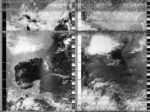
2025-05-24 22:04:00
Oppressive Heat
Phnom Penh, Cambodia
Cambodia
NOAA-19

2025-05-24 11:27:51
Alan Robertson
Bathgate, West Lothian, UK
UK
NOAA-19
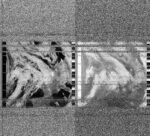
2025-05-24 11:32:00
Goownown Growers
The Seaweed Institute
CAST, Helston, Cornwall, United Kingdom
United Kingdom
NOAA-19

2025-05-23 21:35:28
Alan Robertson
Bathgate, West Lothian, UK
UK
NOAA-19
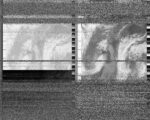
2025-05-23 22:31:00
Maufox
Mauritius, Mauritius
Mauritius
NOAA-19

2025-05-23 22:30:00
Cosmos Astronomy Club MIT WPU
Pune, India
India
NOAA-19
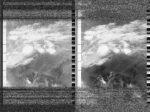
2025-05-23 11:55:35
Derrick Yohn
Transfer, Pennsylvania, United States
United States
NOAA-19
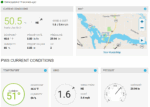
Extra images show PWS and noaa-apt imagery with map overlay
2025-05-23 10:58:10
Briged McCarthy
Denton TX, United states
United states
NOAA-19
2025-05-23 11:55:00
Filip Shatlan and Diana Engelmann
Gainesville, Florida , United States
United States
NOAA-19
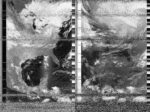
2025-05-23 11:41:00
Richard A Carter
University of York, Campus East, United Kingdom
United Kingdom
NOAA-19
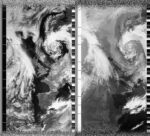
2025-05-23 11:44:00
Goownown Growers
The Seaweed Institute
CAST, Helston, Cornwall, United Kingdom
United Kingdom
NOAA-19

2025-05-23 11:41:00
Hospitalfield
Arbroath, Scotland
Scotland
NOAA-19
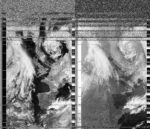
2025-05-22 22:15:00
Zack Wettstein
Seattle, United States
United States
NOAA-19

2025-05-22 21:46:29
Alan Robertson
Bathgate, West Lothian, UK
UK
NOAA-19
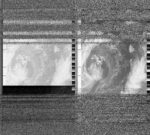
2025-05-22 22:01:00
Cyprus Amateur Radio Society
Nicosia , Cyprus
Cyprus
NOAA-19

2025-05-22 10:03:00
Iterable pueyrredon
Cordoba , Argentina
Argentina
NOAA-19
2025-05-22 11:53:13
Alan Robertson
Bathgate, West Lothian, UK
UK
NOAA-19
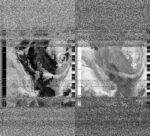
2025-05-22 11:53:00
Hospitalfield
Arbroath, Scotland
Scotland
NOAA-19
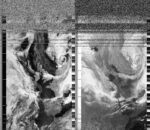
2025-05-21 21:57:09
Alan Robertson
Bathgate, West Lothian, UK
UK
NOAA-19
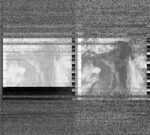
2025-05-21 22:00:00
Hospitalfield
Arbroath, Scotland
Scotland
NOAA-19
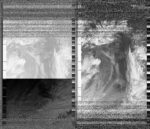


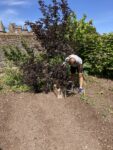

I’ve been saying it’s not rained for a month for a while now. It must be longer. It gives me a sense of unease. Scorched grass. Arid dune-scapes. A feeling that there’s dust hanging in the air. The BBC reports the driest spring in 60 years. Getting frustrated by sprinklers on pristine university lawns, while there’s advice from Scottish Water to take short showers. According to SEPA my area has ‘moderate scarcity’ of water, one step below ‘significant’.
I’ve headed over to Hospitalfield today to check on the Automatic Ground Station. The cool of the inside of the building gives me the feeling of being in my mum’s school classroom during the holidays. It’s quiet, lots of the staff are away on a trip down south. I tell Veronika I’m going up the tower, just for safety. We’ve not received an image in a few days so clearly something is not working. The AGS is housed in the object collections store room, halfway up the spiralling staircase to one of the towers: the antenna on its roof. I have images in my head of the antenna dislodged and dangling down the side of the tower, or the AGS strewn across the floor in bits. Instead when I get to it, nothing has moved and it’s politely telling me what’s wrong on its display screen: Wifi error. After un- and re- plugging the set up it’s back to displaying the time of the next pass (10.00pm) and seems to be working fine. While I wait for the reboot I notice the window is open, and a plump wood pigeon is on the sill, threatening to come inside (it’s clearly been in before). I squeeze past the rail of costumes, and various Victoriana to close it, pushing the window gently into contact with the puffed up bird. It ruffles and quickly drops off, down and away in response.
Out on the roof of the tower I’m drawn again to the bricks, the lichen on the outer walls, and the lightning rod. The antenna has joined this collection of weathering things: as though the tower’s small footprint is some strange elevated plinth. There’s some speckles of patina now on the antenna, and its once-bright copper has dulled somewhat since we installed it: it’s settling in. I have a camera with me to document it in place, and I feel a bit daft as I spin around the tiny area trying to cover all the angles. It’s so bright it’s hard to see if I’m in focus so I blindly snap more than I need. The only cloud is a vague smear on the vast blue sky: like one weak skoosh from a nearly empty can of white spray paint.
From my spinning I notice I can see the water tower from here, on its hill above the pond. It’s sham-medieval, Victorian, and no longer supplies the town with water. I do a quick search on Canmore and find the impetus for its construction: “The drought of 1870 and the increase in housing around Arbroath precipitated the Arbroath Corporation to seek a supplementary water supply.” (Precipitated, ha). Its caverns must still contain gallons and gallons. A few years ago there were plans to turn it into a diver training centre (for offshore workers) but it didn’t come to anything. To the north there’s new housing going up on former grain fields. Peeking through the balustrade (parapet?) I can look over to more of this building’s towers: I know one is an old water tank and the other square one has sundials carved into its sandstone faces.
I head down and outside to find Ross to tell him about the pigeon (and that I’m off the tower). I find him in the back of the walled garden while another small drama is unfolding. Together we watch a man (summoned for this job) very calmly coax a bee colony into a new hive. It’s quite mesmerising to watch the bees drift in the air around us, and the mass of bee-bodies clustered on the elder bush gradually slump into the box. He says there’s four hives nearby, and that these bees are not from those, but he’ll find somewhere for them.
2025-05-21 10:16:00
Iterable pueyrredon
Cordoba , Argentina
Argentina
NOAA-19
2025-05-21 12:06:00
Richard A Carter
University of York, Campus East,
NOAA-19
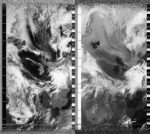
2025-05-21 12:05:54
Alan Robertson
Bathgate, West Lothian, UK
UK
NOAA-19
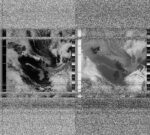
2025-05-21 10:27:54
Richard A Carter
University of York, Campus East, United Kingdom
United Kingdom
NOAA-19
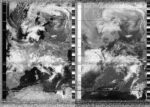

Alongside these soundings I have been conducting another small project of my own - Nephoscope. Named after 19th century instruments for measuring the movements of clouds, my digital equivalent analyses these movements using the camera in my phone, using the data to then generate a form of poetry over the video feed. I like this idea of these two electronic instruments, satellite and nephoscope, working together to map and articulate the atmosphere along two different registers, and at two very different scales.
2025-05-21 10:51:00
Cyprus Amateur Radio Society
Nicosia , Cyprus
Cyprus
NOAA-19

2025-05-20 22:41:00
Zack Wettstein
Seattle, United States
United States
NOAA-19

2025-05-20 22:16:32
Derrick Yohn
Transfer, Pennsylvania, United States
United States
NOAA-19


Current weather conditions from my Home Weather System. Image is pretty bad tonight - a lot of noise. May need to relocate antenna.
2025-05-20 22:15:00
Heidi Neilson
Gilboa, New York, United States
United States
NOAA-19
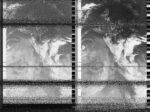
2025-05-20 22:56:00
Iterable pueyrredon
Cordoba , Argentina
Argentina
NOAA-19
2025-05-20 22:11:47
Alan Robertson
Bathgate, West Lothian, UK
UK
NOAA-19
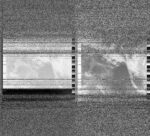
2025-05-20 22:13:00
Goownown Growers
The Seaweed Institute
CAST, Helston, Cornwall, United Kingdom
United Kingdom
NOAA-19

2025-05-20 23:10:00
Foto Colectania
Hangar
Ràdio Web MACBA
Barcelona, Spain
Spain
NOAA-19

2025-05-20 10:28:00
Iterable pueyrredon
Cordoba , Argentina
Argentina
NOAA-19

2025-05-19 23:08:00
Iterable pueyrredon
Cordoba , Argentina
Argentina
NOAA-19

2025-05-19 22:24:30
Alan Robertson
Bathgate, West Lothian, UK
UK
NOAA-19
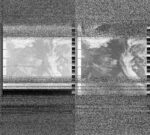
2025-05-19 11:24:00
Zack Wettstein
Seattle, United States
United States
NOAA-19

2025-05-19 10:41:00
Iterable pueyrredon
Cordoba , Argentina
Argentina
NOAA-19

2025-05-19 11:16:00
Cyprus Amateur Radio Society
Nicosia , Cyprus
Cyprus
NOAA-19

2025-05-18 11:37:00
Zack Wettstein
Seattle, United States
United States
NOAA-19

2025-05-18 11:03:11
Alan Robertson
Bathgate, West Lothian, UK
UK
NOAA-19
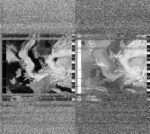
2025-05-18 11:14:00
Heidi Neilson
Gilboa, New York, United States
United States
NOAA-19
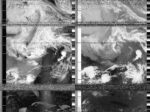
2025-05-18 12:09:00
Foto Colectania
Hangar
Ràdio Web MACBA
Barcelona, Spain
Spain
NOAA-19

2025-05-17 22:05:00
Cosmos Astronomy Club MIT WPU
Pune, India
India
NOAA-19
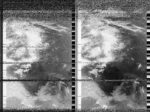
2025-05-17 11:31:00
Filip Shatlan and Diana Engelmann
Gainesville, Florida , United States
United States
NOAA-19
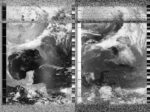
2025-05-17 11:26:00
Heidi Neilson
Gilboa, New York, United States
United States
NOAA-19
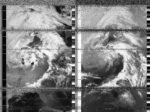
2025-05-15 21:56:49
Michele Boulogne
Sodankylä Geophysical Observatory, Finland
Finland
NOAA-19
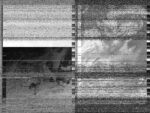
2025-05-16 22:46:00
Tsonami Arte Sonoro
Valparaiso, Chile
Chile
NOAA-19

2025-05-16 22:17:00
Cosmos Astronomy Club MIT WPU
Pune, India
India
NOAA-19
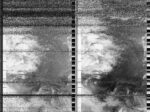
2025-05-16 11:42:31
Derrick Yohn
Transfer, Pennsylvania, United States
United States
NOAA-19

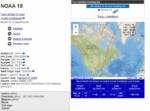
2025-05-16 11:43:00
Filip Shatlan and Diana Engelmann
Gainesville, Florida , United States
United States
NOAA-19

2025-05-16 11:28:52
Richard A Carter
University of York, Campus East, United Kingdom
United Kingdom
NOAA-19
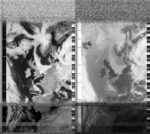
2025-05-16 11:32:00
Goownown Growers
The Seaweed Institute
CAST, Helston, Cornwall, United Kingdom
United Kingdom
NOAA-19

2025-05-15 22:04:00
Zack Wettstein
Seattle, United States
United States
NOAA-19

2025-05-15 22:32:00
Maufox
Mauritius, Mauritius
Mauritius
NOAA-19

2025-05-15 11:53:37
Derrick Yohn
Transfer, Pennsylvania, United States
United States
NOAA-19

From station N3TTI in Transfer, PA. Ground Station using RTL-SDR and SDR++. Current weather was overcast. Antenna is V-dipole tuned to 137MHz. The audio is captured to a WAV file and then run through the APT Image processor at open-weather.community for image processing. Future updates will be automatic signal captures and automatic uploading to the Public Archive. Thanks to open-weather.community for hosting such a fantastic project!
2025-05-15 11:45:00
Goownown Growers
The Seaweed Institute
CAST, Helston, Cornwall, United Kingdom
United Kingdom
NOAA-19
2025-05-15 11:41:00
Hospitalfield
Arbroath, Scotland
Scotland
NOAA-19
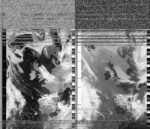
2025-05-14 22:16:00
Zack Wettstein
Seattle, United States
United States
NOAA-19

2025-05-14 22:02:00
Cyprus Amateur Radio Society
Nicosia , Cyprus
Cyprus
NOAA-19

2025-05-14 11:58:41
Richard A Carter
University of York, Campus East, United Kingdom
United Kingdom
NOAA-19
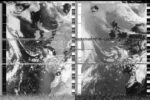

It is always pleasing to watch the signals of two NOAA satellites together, on the waterfall.
2025-05-14 11:54:00
Hospitalfield
Arbroath, Scotland
Scotland
NOAA-19
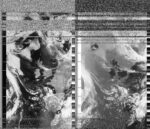
2025-05-13 22:29:00
Zack Wettstein
Seattle, United States
United States
NOAA-19

2025-05-13 22:03:00
Heidi Neilson
Gilboa, New York, United States
United States
NOAA-19

2025-05-13 22:57:00
Hangar, Ràdio Web MACBA, Foto Colectania
Barcelona, Spain
Spain
NOAA-19

2025-05-13 10:51:00
Cyprus Amateur Radio Society
Nicosia , Cyprus
Cyprus
NOAA-19

2025-05-12 22:13:00
Goownown Growers
The Seaweed Institute
CAST, Helston, Cornwall, United Kingdom
United Kingdom
NOAA-19

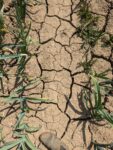
The soil at Goonown Growers is a clay loam so the limited rain over the past month has turned the top layer into a solid crust which cracks. This makes it hard to harvest crops like these leeks without damaging the base, but also cultivate the soil using the hand tools we rely on. We have reprioritised setting up irrigation systems as a result of this dry spring to ensure crop are well watered going into summer, reducing the likelihood of crops going to seed earlier or low yields due to plant stress.
Goonown Growers
2025-05-12 11:12:00
Zack Wettstein
Seattle, United States
United States
NOAA-19

2025-05-11 11:25:00
Zack Wettstein
Seattle, United States
United States
NOAA-19

2025-05-10 11:05:22
Sasha Engelmann
Hackney Downs, London, United Kingdom
United Kingdom
NOAA-19
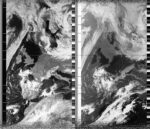
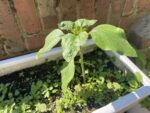
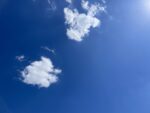
Our sunflower seedlings that we planted in mid March are now around 20cm high, and growing fast. Hackney Downs is scattered with blankets and some people are even in bathing suits, as the sun climbs toward noon. Later in the day at a playground with friends who have a three year old child, we make another 'sunflower' by spinning a yellow plastic bucket chair that has been filled with sand.
2025-05-11 11:17:00
Cyprus Amateur Radio Society
Nicosia , Cyprus
Cyprus
NOAA-19

2025-05-10 11:37:00
Zack Wettstein
Seattle, United States
United States
NOAA-19

2025-05-10 11:15:00
Heidi Neilson
Gilboa, New York, United States
United States
NOAA-19
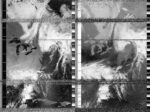
2025-05-09 22:51:00
Filip Shatlan and Diana Engelmann
Gainesville, Florida , United States
United States
NOAA-19
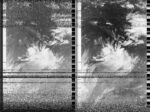
2025-05-09 11:50:00
Zack Wettstein
Seattle, United States
United States
NOAA-19

2025-05-09 22:05:00
Cosmos Astronomy Club MIT WPU
Pune, India
India
NOAA-19
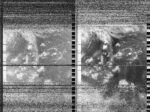
2025-05-08 21:51:00
Zack Wettstein
Seattle, United States
United States
NOAA-19

2025-05-08 11:43:00
Filip Shatlan and Diana Engelmann
Gainesville, Florida , United States
United States
NOAA-19

2025-05-08 11:33:00
Goownown Growers
The Seaweed Institute
CAST, Helston, Cornwall, United Kingdom
United Kingdom
NOAA-19

2025-05-07 22:04:00
Zack Wettstein
Seattle, United States
United States
NOAA-19

2025-05-07 21:49:00
Cyprus Amateur Radio Society
Nicosia , Cyprus
Cyprus
NOAA-19

2025-05-07 11:48:24
Sasha Engelmann
Hackney Downs, London, United Kingdom
United Kingdom
NOAA-19

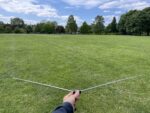

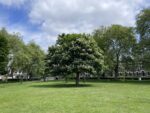
Last night, at an event called We Are Not Numbers at the Southbank Centre, Palestinian writer Ahmed Alnaouq and artist Malak Mattar shared stories from their personal lives and those of their family members in Gaza. Malak described an event of being denied border crossing into Israel for the purpose of showing her paintings in an exhibition in Jerusalem when she was just a teenager, and realising for the first time that she was 'in a cage'. Ahmed spoke about how writing and storytelling helped him emerge from a depression after his 23-year old brother was killed in an Israeli airstrike in 2014.
Both spoke about the sometimes visible, sometimes invisible barriers to speaking about Palestine in the UK. In Palestine, Malak said, "I would never be barred from speaking at my own exhibition". Yet she spoke about countless experiences of being silenced in the UK, whether in arts institutions or in public forums. Ahmed added that UK institutions are so concerned about being 'neutral' that they implicitly support Israel's genocide. For me, hearing these claims, especially from Palestinian artists whose family members have been killed in the current genocide and in previous Israeli assaults on life in Gaza, made the conditions of speaking, voicing and expressions of mere humanity in the UK more palpable than ever before.
2025-05-07 11:42:00
Hospitalfield
Arbroath, Scotland
Scotland
NOAA-19
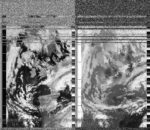
2025-05-06 22:17:00
Zack Wettstein
Seattle, United States
United States
NOAA-19

2025-05-06 21:48:00
Hospitalfield
Arbroath, Scotland
Scotland
NOAA-19
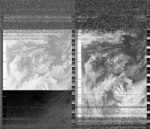
2025-05-06 22:02:00
Cyprus Amateur Radio Society
Nicosia , Cyprus
Cyprus
NOAA-19

2025-05-05 22:29:00
Zack Wettstein
Seattle, United States
United States
NOAA-19

2025-05-05 22:04:00
Heidi Neilson
Gilboa, New York, United States
United States
NOAA-19
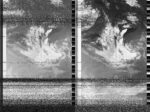
2025-05-05 22:01:00
Goownown Growers
The Seaweed Institute
CAST, Helston, Cornwall, United Kingdom
United Kingdom
NOAA-19

2025-05-05 22:01:00
Hospitalfield
Arbroath, Scotland
Scotland
NOAA-19
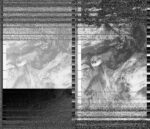
2025-05-04 22:13:00
Hospitalfield
Arbroath, Scotland
Scotland
NOAA-19
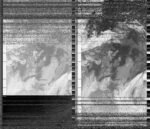
2025-05-04 21:00:00
Moscow, Russia
Russia
NOAA-19
2025-05-04 11:04:00
Cyprus Amateur Radio Society
Nicosia , Cyprus
Cyprus
NOAA-19

2025-05-03 22:26:00
Goownown Growers
The Seaweed Institute
CAST, Helston, Cornwall, United Kingdom
United Kingdom
NOAA-19

2025-05-03 11:03:00
Heidi Neilson
Gilboa, New York, United States
United States
NOAA-19
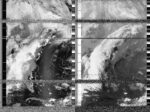
2025-05-03 21:28:00
Oppressive Heat Project
Phnom Penh, Cambodia
Cambodia
NOAA-19

2025-05-02 22:39:00
Filip Shatlan and Diana Engelmann
Gainesville, Florida , United States
United States
NOAA-19
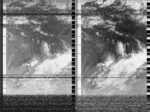
2025-05-02 21:53:00
Cosmos Astronomy Club MIT WPU
Pune, India
India
NOAA-19
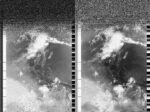
2025-05-02 11:15:00
Heidi Neilson
Gilboa, New York, United States
United States
NOAA-19
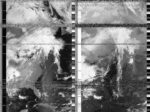
2025-05-01 22:06:00
Cosmos Astronomy Club MIT WPU
Pune, India
India
NOAA-19
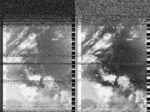
2025-05-01 11:31:00
Filip Shatlan and Diana Engelmann
Gainesville, Florida , United States
United States
NOAA-19
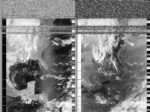
2025-05-01 11:21:51
Richard A Carter
University of York, Campus East, United Kingdom
United Kingdom
NOAA-19
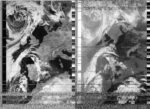
This image was gathered as part of a class workshop I ran today, as a simple way of bearing out the radio networks that underpin much of our contemporary environment.
2025-05-01 11:24:00
Hana, Iker, Silvia
New Cross, London, United Kingdom
United Kingdom
NOAA-19

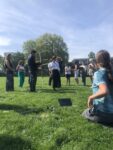
We made the mistake of starting and stopping the recording sporadically. So this image represents the individual recordings spliced together using Audition.
2025-05-01 11:18:54
Giorgia Chiarion, Delphine Tomes, Riccardo Rizzetto
Goldsmiths College Green, Lewisham, London, United Kingdom
United Kingdom
NOAA-19
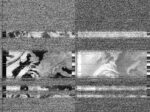
it was very hot and muggy but also dry? much excitement as we heard the sounds of the satellite broadcast. simultaneous conversations in Spanish Italian and English. Curious fellow students and researchers stopped by to experience what we were capturing.
we can see all of England some of Wales but Scotland and Northern Ireland were covered by a cloud_static_nebulous_void
we can see where all 3 of us were born!
2025-05-01 11:20:00
Silvia Gali
London, UK
UK
NOAA-19
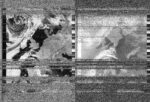
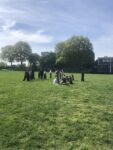
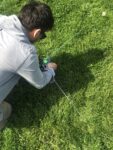
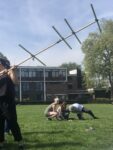
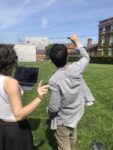
first time recording weather images
sunny day in london
amazing teachers, sensitive knowledge, embodied physics
2025-05-01 11:23:00
Prajvi, Lene, Ravza
Goldsmiths College Green, Lewisham, London
Lewisham, London
NOAA-19
Recording taken by Ravza, Lene, and Prajvi.
Lene holding the antenna.
22, mostly cloudy
2025-05-01 11:31:45
James, Fer, Paola
Goldsmiths University Greens, United Kingdom
United Kingdom
NOAA-19
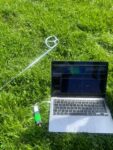
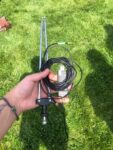

Sunny and clear, occasional fine clouds.
Faulty hardware.
2025-05-01 11:23:00
Prajvi, Lene, Ravza
Goldsmiths College Green, Lewisham, London
Lewisham, London
NOAA-19

Recording taken by Ravza, Lene, and Prajvi.
Lene holding the antenna.
22, mostly cloudy
2025-05-01 11:18:19
Sasha Milonova & Julia Nueno
London - Goldsmiths, United Kingdom
United Kingdom
NOAA-19
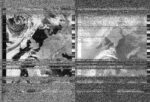
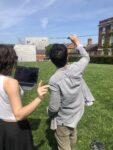
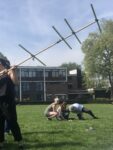
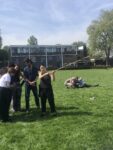
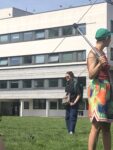
it's the hottest labour day that we have on record
it was our first time capturing satellite images
in our image we can see sunny London and cloudy Madrid
2025-05-01 11:26:00
tally, ayesha, ayşe
goldsmiths, uk
uk
NOAA-19
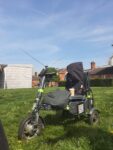
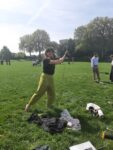
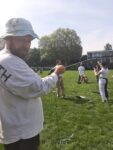
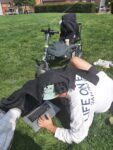
tally: "it is a very hot day in london. my min is blow by this "citizen science"."
ayesha: "it is hot, we see italy, climate crisis is in the blood"
Ayşe:"the screen is blinded by the sun, I sweat the sun, the grass is greener under the sun, and the climate crisis is disproportional to justice"
2025-05-01 11:15:48
Laura, Aya & Tom
College Green, Goldsmiths, New Cross, United Kingdom
United Kingdom
NOAA-19
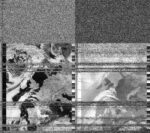
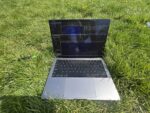
The hottest May 1st the UK has ever had at 28 degrees celsius
2025-05-01 11:23:00
Prajvi Mandhani
Goldsmiths College Green, Lewisham, London
Lewisham, London
NOAA-19



Recording taken by Ravza, Lene, and Prajvi.
Lene holding the antenna.
22, mostly cloudy
2025-05-01 11:21:38
Manu Sancho, Omar Ferwati
Goldsmiths University, London, UK
UK
NOAA-19

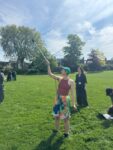
It was a very sunny day in London, it was 28º
2025-05-01 11:20:01
Bernal Pérez, Florence To, Laura Palmer, David Birkin, Debora Swistun
College Green, Goldsmiths University, London, United Kingdom
United Kingdom
NOAA-19
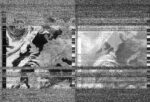
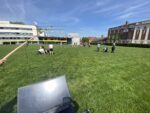
The weather was summy, clear, 27 degrees celcius. Capturing the waves started with white noise then eevntually after 5 minutes it became clear and sharp. Image captured from 11:18 - 11:26. It was a collective exercise with open weather community at Goldsmiths Univerity in the green.
2025-04-30 23:04:00
Filip Shatlan and Diana Engelmann
Gainesville, Florida , United States
United States
NOAA-19
2025-04-29 21:50:00
Cyprus Amateur Radio Society
Nicosia , Cyprus
Cyprus
NOAA-19

2025-04-29 11:46:00
Goownown Growers
The Seaweed Institute
CAST, Helston, Cornwall, United Kingdom
United Kingdom
NOAA-19

2025-04-29 11:43:00
Hospitalfield
Arbroath, Scotland
Scotland
NOAA-19
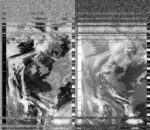
2025-04-28 22:17:00
Zack Wettstein
Seattle, United States
United States
NOAA-19

2025-04-28 21:49:00
Hospitalfield
Arbroath, Scotland
Scotland
NOAA-19
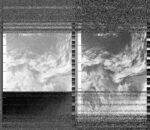
2025-04-28 22:02:00
Cyprus Amateur Radio Society
Nicosia , Cyprus
Cyprus
NOAA-19

2025-04-27 11:03:55
Steve Engelmann
Pacific Palisades, California, United States
United States
NOAA-19
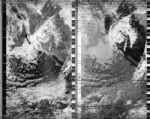




On January 7th I captured a satellite pass in the foothills of the Santa Monica mountains. The winds were wild and within an hour of the pass the Palisades Fire had started. Today I returned to the same location almost 4 months later.
The wind was gentle. It was cool as a light storm had passed the day before. In the distance there was the constant beeping of trucks backing up and the rattle of jackhammers. While the Palisades suburbs were a long way from recovery, the natural landscape seemed rejuvenated. This is a fire-climax biome. The tops of the shrubs (chamise, laurel sumac, coyote bush, and elderberry) were blackened, but from the base sprouted eager green shoots from the living roots. Many young wildflowers were present (mariposa lily, blue dicks, california brittlebush, bird's-foot trefoil and invasive black mustard). In my view, however, the clear winner is the wild cucumber. Early after the first rains, the cucumber took advantage of the lack of competition. Blackened hillsides turned green (and white flowers) as the vines stretched out in all directions. Many cucumber fruits are already the size of baseballs.
2025-04-27 22:04:00
Heidi Neilson
Gilboa, New York, United States
United States
NOAA-19
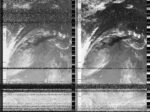
2025-04-27 22:02:00
Goownown Growers
The Seaweed Institute
CAST, Helston, Cornwall, United Kingdom
United Kingdom
NOAA-19

2025-04-27 10:52:00
Cyprus Amateur Radio Society
Nicosia , Cyprus
Cyprus
NOAA-19

2025-04-26 22:14:00
Goownown Growers
The Seaweed Institute
CAST, Helston, Cornwall, United Kingdom
United Kingdom
NOAA-19

2025-04-26 22:14:00
Hospitalfield
Arbroath, Scotland
Scotland
NOAA-19
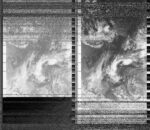
2025-04-26 11:05:00
Cyprus Amateur Radio Society
Nicosia , Cyprus
Cyprus
NOAA-19

2025-04-25 11:03:00
Heidi Neilson
Gilboa, New York, United States
United States
NOAA-19

2025-04-25 10:55:27
Richard A Carter
University of York, Campus East, United Kingdom
United Kingdom
NOAA-19
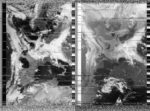
Calm, cool conditions were conducive to a clear and crisp recording, marred only by my perennial foe during recent efforts - software glitches, cutting out the audio! I had a chance to reflect at a conference yesterday on the nature of these sensory undertakings, the registers and durations that they speak to. Glitches themselves manifest across multiple durations, and begin to inscribe their marks long before they become apparent on recorded media. The deep, granular hardware incompatibilities that will forever prevent this computer from generating a clear image were established several years ago, when it was first built, and will now be registered in this archive for as long as it is sustained. There's something pleasing about this - a sense of material traces across time that the usual quest for the perfect image (the perfect sensory recording) would otherwise strive to eliminate. There are long histories of Western onto-epistemic-political imperatives at work here, and these are now manifest in the technologies and techniques that delivered the signal processing behind our digital world - along with its surrounding marking rhetoric of perfect reproduction, and seamless, immaterial operation. The computing of angels.
All this observed - I am presently dredging up an unusably 'glitched' computer that, nevertheless, once gave vastly better recordings than the more modern machine used here. I hope it might deliver a clearer image for the next pass, in 30 minutes time!
2025-04-24 11:19:00
Filip Shatlan and Diana Engelmann
Gainesville, Florida , United States
United States
NOAA-19
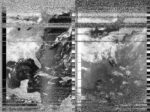
2025-04-24 11:15:00
Heidi Neilson
Gilboa, New York, United States
United States
NOAA-19
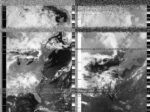
2025-04-23 22:51:00
Filip Shatlan and Diana Engelmann
Gainesville, Florida , United States
United States
NOAA-19
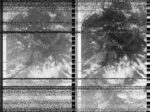
2025-04-22 22:20:00
Cosmos Astronomy Club MIT WPU
Pune, India
India
NOAA-19

2025-04-22 11:44:00
Filip Shatlan and Diana Engelmann
Gainesville, Florida , United States
United States
NOAA-19
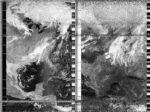
2025-04-22 11:31:00
Hospitalfield
Arbroath, Scotland
Scotland
NOAA-19
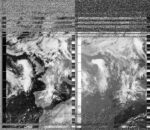
2025-04-22 10:51:00
Bandi b
Bekes , Hungary
Hungary
NOAA-19
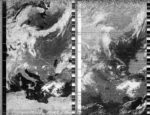
2025-04-21 21:50:00
Cyprus Amateur Radio Society
Nicosia , Cyprus
Cyprus
NOAA-19

2025-04-21 11:43:00
Hospitalfield
Arbroath, Scotland
Scotland
NOAA-19
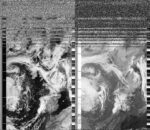
2025-04-20 21:50:00
Hospitalfield
Arbroath, Scotland
Scotland
NOAA-19
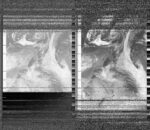
2025-04-20 22:03:00
Cyprus Amateur Radio Society
Nicosia , Cyprus
Cyprus
NOAA-19

2025-04-19 22:04:00
Heidi Neilson
Gilboa, New York, United States
United States
NOAA-19
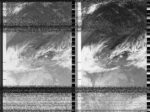
2025-04-19 22:02:00
Goownown Growers
The Seaweed Institute
CAST, Helston, Cornwall, United Kingdom
United Kingdom
NOAA-19

2025-04-19 22:02:00
Hospitalfield
Arbroath, Scotland
Scotland
NOAA-19
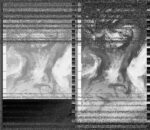
2025-04-19 10:53:00
Cyprus Amateur Radio Society
Nicosia , Cyprus
Cyprus
NOAA-19

2025-04-18 22:15:00
Goownown Growers
The Seaweed Institute
CAST, Helston, Cornwall, United Kingdom
United Kingdom
NOAA-19

2025-04-18 11:06:00
Cyprus Amateur Radio Society
Nicosia , Cyprus
Cyprus
NOAA-19

2025-04-17 11:04:00
Heidi Neilson
Gilboa, New York, United States
United States
NOAA-19
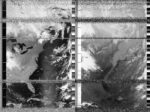
2025-04-16 11:16:00
Heidi Neilson
Gilboa, New York, United States
United States
NOAA-19
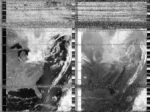
2025-04-16 11:09:39
Richard A Carter
University of York, Campus East, United Kingdom
United Kingdom
NOAA-19
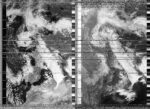
2025-04-15 22:08:00
Cosmos Astronomy Club MIT WPU
Pune, India
India
NOAA-19

2025-04-13 22:06:00
Zack Wettstein
Seattle, United States
United States
NOAA-19

2025-04-13 11:47:00
Goownown Growers
The Seaweed Institute
CAST, Helston, Cornwall, United Kingdom
United Kingdom
NOAA-19

2025-04-12 22:18:00
Zack Wettstein
Seattle, United States
United States
NOAA-19

2025-04-12 21:50:00
Hospitalfield
Arbroath, Scotland
Scotland
NOAA-19
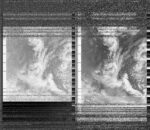
2025-04-12 12:00:00
Goownown Growers
The Seaweed Institute
CAST, Helston, Cornwall, United Kingdom
United Kingdom
NOAA-19

2025-04-11 22:31:00
Zack Wettstein
Seattle, United States
United States
NOAA-19

2025-04-11 22:05:00
Heidi Neilson
Gilboa, New York, United States
United States
NOAA-19
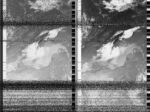
2025-04-11 22:02:00
Hospitalfield
Arbroath, Scotland
Scotland
NOAA-19
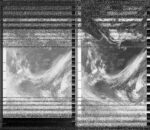
2025-04-10 22:15:00
Goownown Growers
The Seaweed Institute
CAST, Helston, Cornwall, United Kingdom
United Kingdom
NOAA-19

2025-04-10 11:14:00
Zack Wettstein
Seattle, United States
United States
NOAA-19

2025-04-09 22:57:00
Zack Wettstein
Seattle, United States
United States
NOAA-19

2025-04-09 21:16:00
Zack Wettstein
Seattle, United States
United States
NOAA-19

2025-04-09 21:43:00
Cosmos Astronomy Club MIT WPU
Pune, India
India
NOAA-19

2025-04-09 11:04:00
Heidi Neilson
Gilboa, New York, United States
United States
NOAA-19
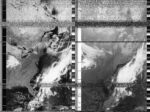
2025-04-08 11:40:00
Zack Wettstein
Seattle, United States
United States
NOAA-19

2025-04-08 21:56:00
Cosmos Astronomy Club MIT WPU
Pune, India
India
NOAA-19

2025-04-08 11:20:00
Filip Shatlan and Diana Engelmann
Gainesville, Florida , United States
United States
NOAA-19
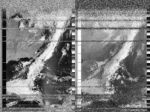
2025-04-08 11:17:00
Heidi Neilson
Gilboa, New York, United States
United States
NOAA-19

2025-04-07 21:41:00
Zack Wettstein
Seattle, United States
United States
NOAA-19

2025-04-07 22:52:00
Filip Shatlan and Diana Engelmann
Gainesville, Florida , United States
United States
NOAA-19
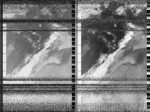
2025-04-05 10:40:00
Chase Graham
Defuniak Springs Fl, U.S.
U.S.
NOAA-19
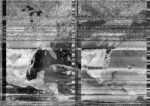
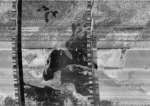
2025-04-06 21:54:00
Zack Wettstein
Seattle, United States
United States
NOAA-19

2025-04-06 11:31:00
Hospitalfield
Arbroath, Scotland
Scotland
NOAA-19
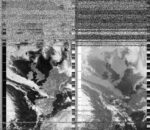
2025-04-05 22:06:00
Zack Wettstein
Seattle, United States
United States
NOAA-19

2025-04-05 22:35:00
Matti
Kassel, in my Backyard., Germany
Germany
NOAA-19
Today was one of the first warmer days of spring here in Kassel, Germany. But by the night it gets quite chill again.
2025-04-05 11:08:00
Vienna Automatic
Vienna, Austria
Austria
NOAA-19

2025-04-04 22:19:00
Zack Wettstein
Seattle, United States
United States
NOAA-19

2025-04-04 12:00:00
Goownown Growers
The Seaweed Institute
CAST, Helston, Cornwall, United Kingdom
United Kingdom
NOAA-19

2025-04-03 22:02:00
Hospitalfield
Arbroath, Scotland
Scotland
NOAA-19
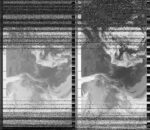
2025-04-03 11:02:00
Zack Wettstein
Seattle, United States
United States
NOAA-19

2025-04-03 10:54:00
Cyprus Amateur Radio Society
Nicosia , Cyprus
Cyprus
NOAA-19

2025-04-02 22:15:00
Goownown Growers
The Seaweed Institute
CAST, Helston, Cornwall, United Kingdom
United Kingdom
NOAA-19
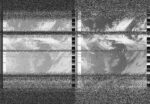
2025-04-02 22:15:00
Hospitalfield
Arbroath, Scotland
Scotland
NOAA-19
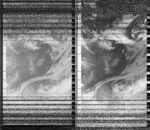
2025-04-02 11:15:00
Zack Wettstein
Seattle, United States
United States
NOAA-19

2025-04-02 10:52:00
Heidi Neilson
Gilboa, New York, United States
United States
NOAA-19

2025-04-01 22:28:00
Filip Shatlan and Diana Engelmann
Gainesville, Florida , United States
United States
NOAA-19
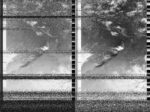
2025-04-01 22:28:00
Goownown Growers
The Seaweed Institute
CAST, Helston, Cornwall, United Kingdom
United Kingdom
NOAA-19

2025-04-01 21:47:00
Vienna Automatic
Vienna, Austria
Austria
NOAA-19

2025-04-01 11:05:00
Heidi Neilson
Gilboa, New York, United States
United States
NOAA-19

2025-03-31 22:40:00
Filip Shatlan and Diana Engelmann
Gainesville, Florida , United States
United States
NOAA-19

2025-03-31 11:18:00
Heidi Neilson
Gilboa, New York, United States
United States
NOAA-19

2025-03-30 11:33:00
Filip Shatlan and Diana Engelmann
Gainesville, Florida , United States
United States
NOAA-19

2025-03-28 20:38:00
Hospitalfield
Arbroath, Scotland
Scotland
NOAA-19

2025-03-28 10:48:00
Goownown Growers
The Seaweed Institute
CAST, Helston, Cornwall, United Kingdom
United Kingdom
NOAA-19

2025-03-28 10:46:00
Hospitalfield
Arbroath, Scotland
Scotland
NOAA-19

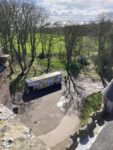
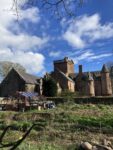
Today I visited the antenna on top of the tower after it was installed yesterday (thanks to Ross and Kirsten!). There's a bright enough sun to squint but not enough to warm the body, just flush my face. Or that could be the walk up spiralling stairway and the sudden exposure to wind. The AGS is further down the stairs, in the collections store room, just next to the Victorian telescope that I'm told is rumoured to have be used out here on the tower. Now, the gleaming copper v-dipole antenna is standing firm – just a slight wibble in its arms in the gusting wind. Strapped to the eroding sandstone. A lightning rod is a nearby companion, a much older installation. Strong shadows and pools of water sit on the roof from last night's rain. Fast moving clouds make a repeating rhythm of sensations, like drum beats. One beat sun, one beat rain flecks, beat cloud, beat sun, beat rain etc. The wind buffeting is a constant through the day. The sea is silvery in the distance with a slightly hazy horizon. Looking down to ground level, daffodils smile back. Dots of primrose. Bluebells are on the cusp. Perhaps less distinct waves of their flowering than in the past. The beats quicken. Up here it's just me, but down from the tower it's a busy day, the garden club volunteers have lots of spring jobs to do, the Travelling Gallery bus is visiting, the cafe is packed, and there's more going on than I know about. I shout to Andy (who drives the bus) – he can't hear me over the wind, but I take a photo.
2025-03-28 10:08:00
Vienna Automatic
Vienna, Austria
Austria
NOAA-19

2025-03-27 20:53:00
Hospitalfield
Arbroath, Scotland
Scotland
NOAA-19

2025-03-27 10:59:00
Hospitalfield
Arbroath, Scotland
Scotland
NOAA-19

First daytime image from the antenna at Hospitalfield. Weather: Increasingly drizzly and windy from the start of the day. Hoods up. Rain that sounds like it might be hail. Dry ground means big puddles.
2025-03-26 21:05:00
Hospitalfield
Arbroath, Scotland
Scotland
NOAA-19

2025-03-25 22:19:00
Heidi Neilson
Gilboa, New York, United States
United States
NOAA-19

2025-03-25 21:16:00
Goownown Growers
The Seaweed Institute
CAST, Helston, Cornwall, United Kingdom
United Kingdom
NOAA-19

2025-03-25 20:35:00
Vienna Automatic
Vienna, Austria
Austria
NOAA-19

2025-03-25 10:53:00
Heidi Neilson
Gilboa, New York, United States
United States
NOAA-19

2025-03-25 10:18:00
Cosmos Astronomy Club
Pune, India
India
NOAA-19

2025-03-24 20:48:00
Vienna Automatic
Vienna, Austria
Austria
NOAA-19

2025-03-24 21:45:00
Cosmos Astronomy Club
Pune, India
India
NOAA-19

2025-03-24 11:08:00
Filip Shatlan and Diana Engelmann
Gainesville, Florida , United States
United States
NOAA-19
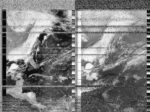
2025-03-24 11:06:00
Heidi Neilson
Gilboa, New York, United States
United States
NOAA-19

2025-03-23 22:40:00
Filip Shatlan and Diana Engelmann
Gainesville, Florida , United States
United States
NOAA-19
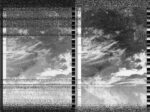
2025-03-23 21:00:00
Vienna Automatic
Vienna, Austria
Austria
NOAA-19

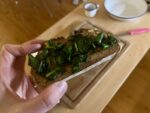
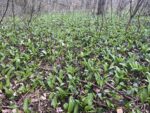
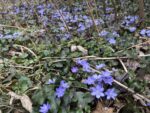
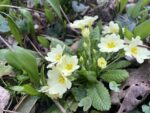
It is the third day after the spring equinox. When spring arrives, we tend to know with a certainty that perhaps only the onset of autumn compares. I woke to bird song. It was only 5 am yet a Blackbird's voice cut through the night. I have seen the Blackbird during the day, perched on the balcony railing next to the bedroom window. It sung for perhaps 10 or 15 minutes before other birds joined, and the dawn chorus kicked in. I lay in bed in the greying light and wondered: how does the first bird know when to sing? It felt as if the Blackbird had sung up the sun, not the other way around.
2025-03-23 10:08:54
Richard A Carter
University of York, Campus East, United Kingdom
United Kingdom
NOAA-19
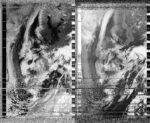
Equipment troubles finally subsided for today's pass, resulting in a pleasingly expansive view of Europe and parts of North Africa. One interesting aside is that the wind was such that it blew through small gaps in the antenna, making distinctly musical notes in the process - can imagine a speculative art project in which the antenna is turned into a sort of instrument, working alongside the distinct notes of the NOAA transmission coming in. It would be quite the composition!
2025-03-22 10:21:07
Sasha Engelmann
Hackney Downs, London, United Kingdom
United Kingdom
NOAA-19
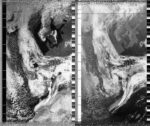
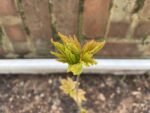
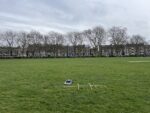
"That's so MacGyver!" says a blonde woman with a dog when I explain my tape-measure Yagi-Uda antenna. She and her friend / partner chat to me for a few minutes and walk off yelling back funding schemes that open-weather could apply to. "Welcome Trust.... Discovery Grant! Check it out!" I hear as they leave audible distance. I wonder if I've just met an arts and culture boss of some kind. I had come out to the park around 10:20am to catch a NOAA-19 pass that would pass over London at 90 degrees in maximum elevation- an elevation I have only rarely seen in my whole career capturing satellite images. A boy's football team is practising in my usual spot, so my reception is perhaps not as perfect as it normally is when I can see a perfect diagonal North-South across the Downs. Spring is everywhere today, in shooting daffodils and unfurling leaves. A twiggy plant that I had previously identified as a Serbian Lilac in my front garden reveals itselt to be a sycamore tree as its leaves unfold.
2025-03-22 10:23:00
Goownown Growers
The Seaweed Institute
CAST, Helston, Cornwall, United Kingdom
United Kingdom
NOAA-19

2025-03-20 10:43:00
The Seaweed Institute and Goonown Growers
CAST, Helston, Cornwall, UK
UK
NOAA-19
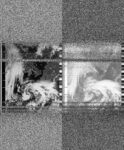
2025-03-20 10:08:00
Vienna Automatic
Vienna, Austria
Austria
NOAA-19

2025-03-18 22:07:00
Heidi Neilson
Gilboa, New York, United States
United States
NOAA-19

2025-03-17 10:54:00
Heidi Neilson
Gilboa, New York, United States
United States
NOAA-19

2025-03-16 11:09:00
Filip Shatlan and Diana Engelmann
Gainesville, Florida , United States
United States
NOAA-19
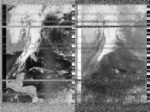
2025-03-16 15:06:00
Heidi Neilson
Gilboa, New York, United States
United States
NOAA-19

2025-03-15 22:41:00
Filip Shatlan and Diana Engelmann
Gainesville, Florida , United States
United States
NOAA-19
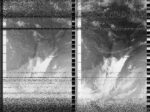
2025-03-15 21:01:00
Vienna Automatic
Vienna, Austria
Austria
NOAA-19

2025-03-13 22:23:00
Cosmos Astronomy Club
Pune, India
India
NOAA-19

2025-03-13 09:53:00
Vienna Automatic
Vienna, Austria
Austria
NOAA-19
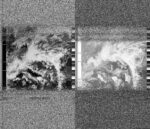
2025-03-12 10:07:00
Vienna Automatic
Vienna, Austria
Austria
NOAA-19

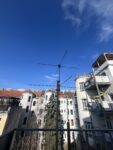
2025-03-11 10:20:00
Vienna Automatic
Vienna, Austria
Austria
NOAA-19

2025-03-09 22:16:00
Filip Shatlan and Diana Engelmann
Gainesville, Florida , United States
United States
NOAA-19

2025-03-08 20:46:00
Vienna Automatic
Vienna, Austria
Austria
NOAA-19

2025-03-07 21:41:00
Filip Shatlan and Diana Engelmann
Gainesville, Florida , United States
United States
NOAA-19
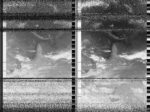
2025-03-05 10:47:00
Filip Shatlan and Diana Engelmann
Gainesville, Florida , United States
United States
NOAA-19

2025-02-25 10:46:00
Filip Shatlan and Diana Engelmann
Gainesville, Florida , United States
United States
NOAA-19

2025-02-20 21:28:00
Filip Shatlan and Diana Engelmann
Gainesville, Florida , United States
United States
NOAA-19
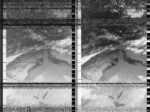
2025-02-19 10:09:55
Emma
Royal Holloway University of London, United Kingdom
United Kingdom
NOAA-19
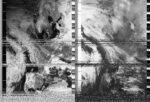
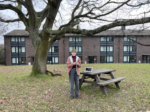
2025-02-19 10:21:00
Filip Shatlan and Diana Engelmann
Gainesville, Florida , United States
United States
NOAA-19

2025-02-18 10:34:00
Filip Shatlan and Diana Engelmann
Gainesville, Florida , United States
United States
NOAA-19
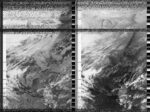
2025-02-17 10:46:00
Filip Shatlan and Diana Engelmann
Gainesville, Florida , United States
United States
NOAA-19
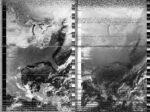
2025-02-15 09:54:38
Steve Engelmann
Santa Monica Pier, United States
United States
NOAA-19
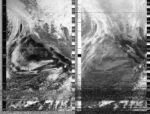
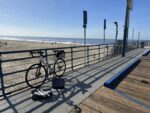
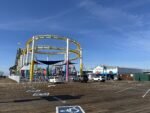
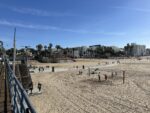
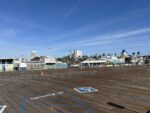
Mostly sunny skies and 16°C - pretty normal for a southern California February. After 8 months of no rain, the last 3 weeks has helped to finally put out the fires and bring the area out of fire danger.
2025-02-13 09:56:00
Filip Shatlan and Diana Engelmann
Gainesville, Florida , United States
United States
NOAA-19
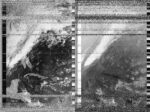
2025-02-12 21:29:00
Filip Shatlan and Diana Engelmann
Gainesville, Florida , United States
United States
NOAA-19

2025-01-31 10:45:00
Prajvi + Alex
Landaff Fields, Cardiff , UK
UK
NOAA-19
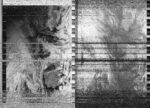
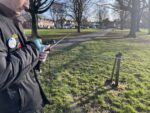
NOAA 19
clear sunny blue sky with 7pmh winds. Keeping the antenna close to our bodies helps to receive a clearer signal. Standing in the sun with our eyes closed and listening to the sound is meditative. Fascinating to see the image and imagine ourselves as a body in a green field, but also a global body in this vast sky
2025-02-11 10:21:00
Filip Shatlan and Diana Engelmann
Gainesville, Florida , United States
United States
NOAA-19
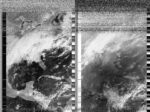
2025-02-10 10:35:00
Filip Shatlan and Diana Engelmann
Gainesville, Florida , United States
United States
NOAA-19
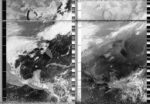
2025-02-09 11:32:13
Michele Boulogne and Judith Ramitha Gunaratne
Amsterdam, Nieuwe West area, The Netherlands
The Netherlands
NOAA-19

Heavy winter over the Netherlands, it's been weeks around zero; the dry air can get through anything. From above, NOAA19 beams through a wide mantle of clouds, they seem settled and a attached to the European continent- yet I've rarely see them swirling so fast, hiding then revealing our sun every hour.
2025-02-05 09:56:00
Filip Shatlan and Diana Engelmann
Gainesville, Florida , United States
United States
NOAA-19

2025-02-03 10:21:00
Filip Shatlan and Diana Engelmann
Gainesville, Florida , United States
United States
NOAA-19

2025-02-02 10:21:25
Sasha Engelmann
Hackney Downs, London, United Kingdom
United Kingdom
NOAA-19
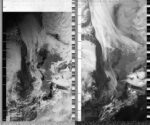
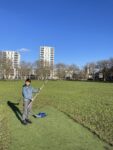
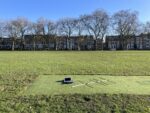
"Has your aerial gotten bigger?" a woman chasing a brown curly haired dog asked me. "Maybe its just how you're holding it!" she added. We laughed as her dog ran away. I tried to remember where I had met her before. After a somewhat stormy week, the air is crisp and the sky is a clear blue. The pressure is around 1023 hPa, suggesting clear weather for the rest of the day. I notice that bulbs are already poking up through the grass on the edge of the park. A 2022 study at Cambridge showed that flowers in the UK are blooming an average of one month earlier than they used to, and this is putting them out of sync with the insects that they need to reproduce, and that need them for food.
As of yesterday, the Palisades fire in Los Angeles is 100% contained. Checking the Calfire maps every day, often multiple times per day, since Tuesday January 7th was a ritual that I hope I will never have to repeat.
2025-02-02 10:34:00
Filip Shatlan and Diana Engelmann
Gainesville, Florida , United States
United States
NOAA-19
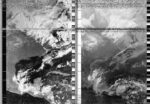
2025-01-28 09:57:00
Filip Shatlan and Diana Engelmann
Gainesville, Florida , United States
United States
NOAA-19
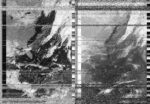
2025-01-25 10:53:10
Prajvi
Ferranti Park, London
London
NOAA-19
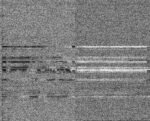

Clear sunny day at Ferrenti Park next to my flat. I am struggling with getting a clear signal with my di-pole antenna. There is a glimpse of an image between all the noise. The signal was very sratchy and noisy but clear for a bit when I kept the antenna near my stomach
2025-01-25 09:25:34
Arthur Almeida
Complexo da Maré, Rio de Janeiro, Brasil
Brasil
NOAA-19
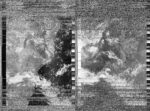


Na imagem, vemos a vinda de nuvens que aparentam ter uma grande densidade em direção à América do Sul, maior parte indo ao sul e sudeste do Brasil.
2025-01-26 10:21:00
Filip Shatlan and Diana Engelmann
Gainesville, Florida , United States
United States
NOAA-19

2025-01-23 11:00:00
Marius Sturza
Alba Iulia, Romania
Romania
NOAA-19
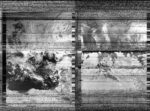
This is my first time using a home made V dipole antenna. Although the quality doesn't seem to be that good. This may be because of the weather or because I somehow didn't build the antenna correctly. Keep in mind that I still use a Baofeng Uv5r and a phone to record. The weather wasn't great, with a little shower pouring down on my location, lot of fog and the average temp. was 4 degrees Celsius. Quite impressed by the range of the transmission being able to see a little of the NNE part of Africa and up to the Baltic Sea.
2025-01-23 10:07:23
Soph Dyer
Augarten, Wien, Austria
Austria
NOAA-19
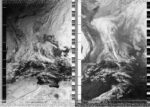
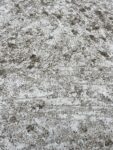
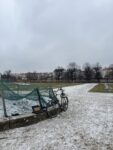
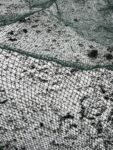
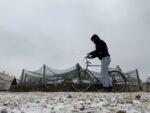
I began to think in "un-"s after reading Naomi Klein's proposal for "unselfing" in resistance to a politics of self-preservation and algorithm-fuelled ego. Around the same time, I realised that adding "un-" to German words is a shortcut to expanding my limited vocabulary. This is how I came across the German word for severe weather, "Unwetter". "Unwetter" is the opposite of "Wetter" and literally translates as un-weather.
This week, the transatlantic weather of Trump's inauguration and the explosive fire weather of Los Angeles has been so severe, it has felt like both an Unwetter and an un-doing. That is to say, I can see in the people around me how the events of this week have undone certain beliefs about the past or expectations of the future.
At the same time, five days into the ceasefire in Gaza, Palestinians are reckoning with a new un-peace or Unfrieden.
2025-01-19 10:14:00
Marius
Alba Iulia, Romania
Romania
NOAA-19
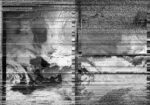
2025-01-18 10:09:00
Automatic Ground Station 12 London
London, United Kingdom
United Kingdom
NOAA-19
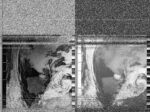
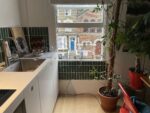
2025-01-13 04:36:00
Cosmos Astronomy Club
Pune, India
India
NOAA-19

2025-01-12 16:02:00
Cosmos Astronomy Club
Pune, India
India
NOAA-19

2025-01-12 10:44:13
Soph Dyer
Diepoldpark, Wien, Austria
Austria
NOAA-19

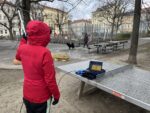
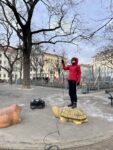
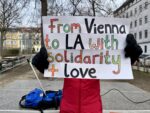
I stood in a flurry of snowflakes that would not settle. Large, restless and white-grey, they took on the appearance of ashes.
From Vienna to LA, with solidarity and love.
This is my first satellite image capture of the year.
2025-01-11 10:08:00
Filip Shatlan and Diana Engelmann
Gainesville, Florida , United States
United States
NOAA-19

2025-01-10 10:21:00
Filip Shatlan and Diana Engelmann
Gainesville, Florida , United States
United States
NOAA-19
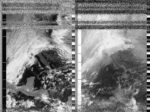
2025-01-08 20:25:10
Sasha Engelmann
Hackney Downs, London, United Kingdom
United Kingdom
NOAA-19
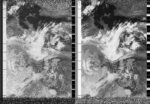




For the Los Angeles fires:
Blame it on the wind: blame it on the ‘devil’s wind’ that gusts over Los Angeles at 60+ mph, ‘fanning the flame’ of five ongoing, devastating wildfires, as yet ‘uncontained’.
Blame it on the wind, an unpredictable, invisible, seemingly chaotic, uncontrollable force: the easiest scapegoat.
Whose wind is this? Who remembers its names or its cultures? Who is willing to counter the ‘blame’ with the knowledge that a wind like the ‘Santa Ana’ has a cultural history more than 5,000 years old in the lifeways of the Tongva, Tataviam, Serrano, Kizh, and Chumash Peoples, on whose land Los Angeles was settled and built?
The Santa Ana winds may be arid and dry, originating from the desert of the Great Basin. These winds may increase static electricity, topple trees, and produce ‘strange luminosities’ in the sky. Yet being affected by a dry, desert wind is not the same thing as codifying it with sensationalist and ‘demonic’ fears. In demonising the wind, whose demonic actions go unnoticed? Which demons are free to roam?
As we blame the wind, how can we have a conversation about the extractive legacies of water stealing, draining and rerouting? Or fire suppression tactics that make the world more flammable? Or centuries of encroachment on more and more arid land?
How do we talk about the fact that the logic that pumps money into LAPD and enlists hundreds of incarcerated peoples to fight an uncontainable fire for $4 per day is the very same logic that sends arms to Israel as it burns entire cities and perpetuates another prison?
How do we resist sensationalist narratives of neighbourhoods where “millionaires are getting a taste of the apocalyptic movies they have produced and acted in” to be able to see the marginalised, differently abled, and elderly existing side by side, whose narratives of ‘escape’, or simply survival, are far less appealing to a media elite?
I pray for the sake of my family home (if it still exists) that the wind relents. But this disaster is not about the wind.
(images are screenshots from videos by Steve Engelmann, maps by CalFire, words by me)
2025-01-09 10:33:00
Filip Shatlan and Diana Engelmann
Gainesville, Florida , United States
United States
NOAA-19
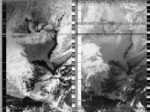
2025-01-07 09:39:57
Steve Engelmann
Pacific Palisades, California, United States
United States
NOAA-19
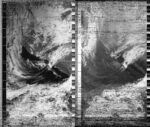
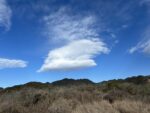
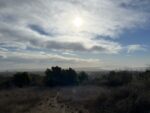
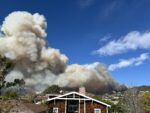
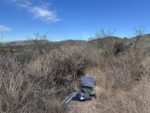
Today is a blustery day in Los Angeles. The National Weather Service predicts a "life-threatening and destructive" windstorm, with gusts of wind up to 160 kph. Over the last 8 months, southern California hasn't received a rainfall event with more than a few millimeters of precipitation. The landscape is dry and the humidity is expected to drop (currently 20%). A spark from a power line can ignite the extremely flammable brush and then carry embers great distances. "Fire season" used to refer to late August, September and October. In recent years, some of the worst fires in California history happened in November, December and January. With a changing climate there is a need to update our terminology.
While some people might think this is an excuse to hunker down and ride out the storm, I thought this is a reason to break out the antenna. I went up into the hills of the Santa Monica Mountains and captured a pass.
While writing this weather note, I started hearing sirens. A neighbor sent me a text. I hopped on my roof and watched flames come over a ridge (see image 3). Ended up evacuating due to air quality.
2025-01-07 20:36:34
Pauline Woolley
The Urban Garden, Nottingham,
NOAA-19
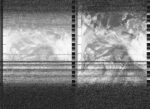
A clear cold night. The winter constellations hang overhead in all their beautiful glory. Orion, Pleiades, Auriga and Taurus drawing out the maps of ancient skies. The lawn is crispy underfoot. The UK is clear on the map except for some small parallel clouds across the counties of Cheshire and the cities of Liverpool and Chester.
1 degree Celsius
90% humidity
1001 mb
2025-01-06 20:50:07
Pauline Woolley
The Urban Garden, Nottingham, UK
UK
NOAA-19
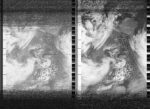
It's cold. It's been cold all day. I am stood watching Mars and Jupiter fade in out of the clouds along with a quarter Moon. There are layers of cloud tonight. Lower ones are moving fast and in small wispy shapes. The higher clouds glow an orange colour from the light pollution and as I pad around on the lawn during the pass I hear the splashing of water against my boots and I notice that the lawn is water logged in places. There was so much rain last night and another down pouring of sleet and snow today. Airports were shut, roads and rail lines flooded. More to come.
3.1 degrees Celsius
99% humidity
990mb
2025-01-04 09:56:00
Filip Shatlan and Diana Engelmann
Gainesville, Florida , United States
United States
NOAA-19
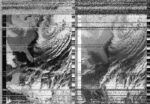
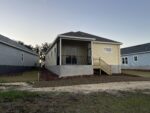
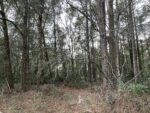
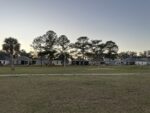
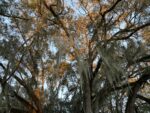
The ‘Cheshire Cat’ moon hung ponderously over the old golf course at West End in Newberry. The sky was a spectrum starting at the palest yellow to blue and violet. In the tract housing that surrounds a good part of the field, I noticed paper taped to windows with the writing facing out, like a label of completeness, while in other windows Christmas tree lights shone out. On this last of many walks in this park, I felt an eerie sense of quiet.
2025-01-03 16:14:00
Cosmos Astronomy Club
Pune, India
India
NOAA-19

2025-01-03 10:07:00
Filip Shatlan and Diana Engelmann
Gainesville, Florida , United States
United States
NOAA-19
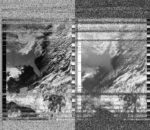
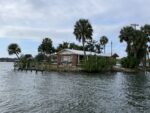
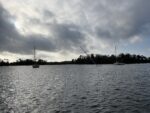
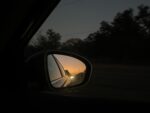
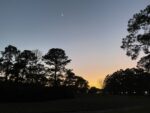
Hurricane Idalia has haunted several conversations with locals on the west coast of Florida. In Crystal River, a sleepy seaside town known for its warm springs and manatees, the severity of Idalia was attributed to “a trifecta: king tide, full moon, west wind”. This phrase stayed with me as the New Year passed and the holidays drew to a close. Before spending time in Florida, I had little knowledge of the diversity of hurricanes and which local conditions affected their impact. Hurricane Helene apparently was a “muddy one” as it dragged up tons of mud into houses, streets and dry surfaces, and so repair was even more laborious. I heard the same person from Crystal River say that “because hurricanes tend to hit at night, you never know what’s around you”. They were pointing to Christmas Island, a small patch of land in the middle of the mouth of the river that had been the site of a single house before Idalia- after the storm hit, locals could only make out the Christmas lights strung up around the darkened house, hence its name. It was bought and rebuilt in 2024, right before Helene hit, and now stands crumbling and empty. We also passed a line up of sail boats in the rivermouth, two of which had sunk during Helene, their sailing masts pointing out of the water crookedly. “They didn’t tie up properly for the hurricane” we learned. Yet dozens of other boats were peacefully anchored adjacent and around the sunken ones. Their owners had stayed on their boats during the storm.
2025-01-02 21:39:00
Filip Shatlan and Diana Engelmann
Gainesville, Florida , United States
United States
NOAA-19
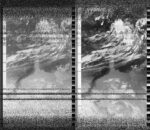
2025-01-02 10:19:52
Steve Engelmann
Newberry, Florida, United States
United States
NOAA-19
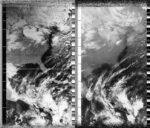
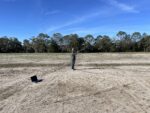
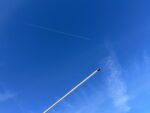
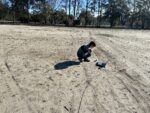
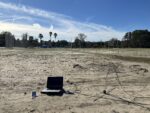
Went out to capture a satellite pass with a super high elevation (87°). Found an abandoned golf course in the process of being repurposed with a relatively clear skyline. The skies were mostly clear with some cirrus clouds toning down the sunlight. It was a crisp 10°C at 10AM, which seems a bit unexpected for someone not from Florida. Just at the satellite was at it's highest point, an airplane left a contrail, as if to mark the spot.
2025-01-02 10:20:00
Filip Shatlan and Diana Engelmann
Gainesville, Florida , United States
United States
NOAA-19
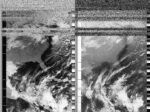
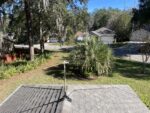
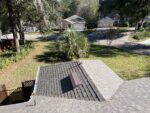
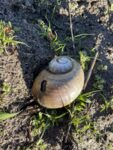
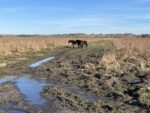
Migrating sandhill cranes, common apple snails and wild Spanish horses emerged from the tall grass and reeds of Paynes Prairie on a hike yesterday afternoon. The air was much cooler and crisper than previous days, and the humidity dropped from 90% to 50%. We came across an impression in the mud, the outline and texture of which looked strikingly like the sideways body of a pig. There were even tiny lines that looked like fur, and hoof prints where it got up after rolling around. The Paynes Prairie visitor centre had boasted a large poster of a wild boar with very black fur and gleaming eyes, and the title on top of the image said, in bold letters, 'Alien invaders'. Another section of the educational exhibit had information on the history of the prairie, and featured a wall sized display about Seminole and Potano Indigenous communities. Amidst information on Seminole pottery, hunting tools and agriculture, one sentence acknowledged that: "Seminole populations declined in the 18th and 19th centuries due to war, disease and land dispossession". But which wars? Which diseases? Land dispossession by who? These questions and answers were absent.
2025-01-02 10:06:55
Pauline Woolley
The Urban Garden, Nottingham, UK
UK
NOAA-19
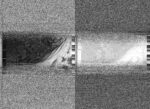
A bright and crisp morning. Blue skies and frost underfoot. There is a stillness to the day and though it's already the 2nd January the new year feels like it's still slowly unfurling. Blue Tits and Robins interject with pips and chirps that are bumped off the musical score by the prehistoric caws and croaks of the corvids.
The British Isles are clear. A rare sight indeed.
2 degrees celsius
82% humidity
air pressure 1011 hPa/mb
2025-01-01 10:33:00
Sasha Engelmann
Steve Engelmann
Gainesville, Florida , United States
United States
NOAA-19

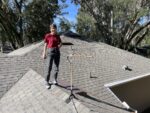
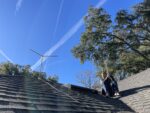
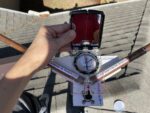
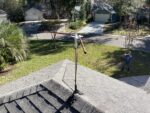
Today marks the official permanent installation of the Gainesville Automatic Satellite Ground Station on the roof! We did one more test of two AGS's (15 and 12) running in parallel and receiving the same satellite shortly after 10:30am from the roof. Both received stunningly clear images, even though the pass was only around 65 degrees at max elevation. One V-dipole was mounted on the permanent installation site, and Steve held the second. The former received an image with less interference, which made sense, given it had nothing around it to possibly affect the antenna's radiation pattern. After drilling a pilot hole through the PVC that holds the antenna to the (now waterproof) wooden mast, we used a wood screw to solidly connect the two. We stretched out the RG8X coaxial cable throughout the backyard to make sure there were no kinks, and screwed one end into the base of the antenna on the roof, using zip ties to hold the cable against the mast. Following one edge of the roof, we bolted the cable down with small cable brackets, and looped it under the garage door overhang, following the edge of the moulding around the door to the floor, where we hooked it under a piece of wood. Steve drilled away some of the wood on the inside part of the garage door corner, where we passed the cable through to the inside, testing the garage door could open and close without causing any friction. We then bracketed the cable to the moulding along the bottom of the garage wall to the corner where there is a work desk and a power plug. We had a good metre and a half of cable left, and gently looped this around twice. After the cable was stretched out and secured, we returned to the roof, where we oriented the V-dipole to 'true north' using a professional compass, which meant we had to apply a 6 degree West declination (based on the difference between magnetic North and true North from our position in Florida). One of us oriented the antenna with the compass while the other screwed the wooden mast tightly into the steel mount with two screws. We also wrapped the UHF connector at the end of the coaxial cable with some vinyl electrical tape to protect it from UV radiation and water damage. Back inside, we cleaned up the wood shavings, glue, and spare screws. As we didn't have any extra 3D print casings for the Florida AGS, we DIY-ed a small cardboard box, and hooked up AGS 15 in its corner. It lit up, and let us know that it was going to collect a NOAA-15 pass shortly before 7pm this evening!
2024-12-29 20:52:41
Pauline Woolley
The Urban Garden, Nottingham, UK
UK
NOAA-19

A night time pass. It's 8 degrees Celsius. Cloud whispers across the sky. Jupiter is a small smoky dot that battles for attention. There is a slight breeze and it feels much colder than the temperature states.
90% humidity
1018 air pressure
2024-12-31 09:15:30
AxiomVk
GREECE, Northern Greece
Northern Greece
NOAA-19


NOAA 19 from Greece at 09:15 AM local time (07:15 UTC)
2024-12-28 04:35:00
Cosmos Astronomy Club
Pune, India
India
NOAA-19

2024-12-27 09:56:00
Sasha Engelmann
Steve Engelmann
Gainesville, Florida , United States
United States
NOAA-19

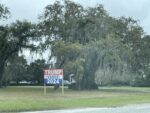
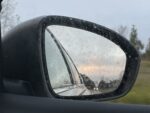

We joked that Orlando kept getting farther away as we drove south on 75, east through Ocala National Forest, over the waters of Lake Monroe, and alongside cattle pastures and skeleton scarecrows. Rain splattered intermittently on the windshield. Billboards declared that ‘at 18 days since conception, a baby’s heart is already beating’, or ‘man up: your child needs you.’ An entire single story house rolled down the highway taking up two lanes, flanked by pickup trucks. A corner ‘yard art’ shop burst with bronze eagles, brown bears, American flags and an original Bob’s Big Boy sculpture, complete with a checkered red and white outfit and a sculptural hamburger on a plate.
2024-12-26 10:09:05
Filip Shatlan
Gainesville, FL, United States of America
United States of America
NOAA-19
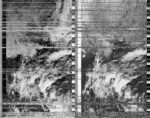
This was my first time picking up a satellite signal! Very intriguing process. It was chilly (compared to typical Florida weather) and very cloudy, but not windy. There's a bit of South America in the lower part of the image, such as the Panama Canal, as well as most of the East Coast. We can see some tougher, perhaps stormy clouds moving in from the bottom.
2024-12-26 16:13:00
Cosmos Astronomy Club
Pune, India
India
NOAA-19

2024-12-26 10:08:00
Sasha Engelmann
Steve Engelmann
Gainesville, Florida , United States
United States
NOAA-19

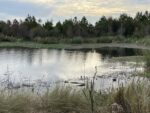
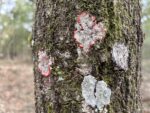
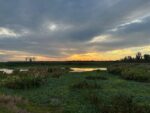
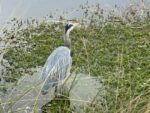
Florida balances over one big aquifer: a hidden cavernous water system fed by rainfall that stretches beneath the everglades, wetlands and an ecological system known as 'moist sandy pine / hardwood woodlands'. Walking through the Sweetwater Wetlands south of Gainesville yesterday, we met some of the water on its way into the depths. Today, at Rainbow Springs, an hour further south, we saw some of it come out, bubbling up through pale white-gray sand, so abundantly that it creates the Rainbow River, a wide, flat river sustaining alligators, turtles, catfish, frogs, coral snakes and other wildlife. Rainbow Springs exists because of the thinner karst rock separating the aquifer from the surface, while elsewhere in the state, the rock-shield is much thicker. The upwelling makes the water below feel very close, even reachable, but we learned that the water in the Floridan Aquifer is between 17,000 and 26,000 years old. The springs seemed otherworldly in their crystal clear shallows, ferns and mossy trees, and two impressive waterfalls cascaded over towering rocks. One of the waterfalls was named 'Seminole Falls', after local Indigenous peoples who never ceded their land. We speculated that the two tall waterfalls might have been built up as the upwelling spring water deposited minerals over thousands of years. Later a park ranger informed us that the waterfalls were entirely man-made in the 1930s, created with sediment dredged from the bottom of the springs, and that water has been power-pumped to the top of the rocks for decades, just so visitors can watch it fall.
2024-12-25 16:26:00
Cosmos Astronomy Club
Pune, India
India
NOAA-19

2024-12-25 10:22:00
Sasha Engelmann
Steve Engelmann
Gainesville, Florida , United States
United States
NOAA-19

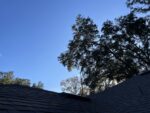

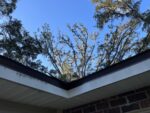
"What is this obsession with 'manned' or 'unmanned'?!" jokes Bowen Yang, playing 'A Drone' on Saturday Night Live. "For the record" Bowen continues "I can get a man whenever I want!". The skit plays on political divisions haunting thousands if not millions of American Christmas Eve dinners this year. I had not heard about the reported drone sightings prior to arriving in Florida, but they have been raised by local family members at every opportunity. "What is the government really doing?" "Remember the media explosion about that one Chinese balloon?! Now there are hundreds of drones and no one is talking about it!" Or, "I just worry about what could happen in New York on New Years Eve". Earlier in the week, when Steve and I set up the turnstile antenna on the roof of my Mom's house, a family member walked over and asked if we could listen to the drones. I decided to preserve a bit of mystery: "this is for satellites, but both satellites and drones communicate via radio waves".
2024-12-24 10:34:00
Automatic Ground Station 12 Florida
Gainesville, Florida , United States
United States
NOAA-19

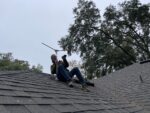
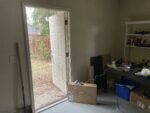
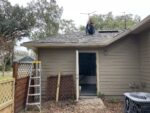
We ran two AGS at the same time to test the difference between a weatherised V-dipole and a static mounted Turnstile on the top of the roof. The pass was around 68 degrees in maximum elevation- so not ideal, but good enough for a comparison. Steve reclined on the roof and used a spare curtain rod to hold the V-dipole in a static position for eleven minutes. We ran a spare radio cable from the V-dipole through the garage door to AGS 12, while AGS 3 stayed connected to the turnstile. Comparing the images is interesting: AGS 12 / V-dipole picked up the satellite signal a little earlier, but more bands of interference run through the start of the image. In contrast, AGS 3 / Turnstile pick up the signal later, but the middle part of the image is generally clearer. The antennas lose the signal at about the same time to the South.
2024-12-24 10:34:00
Sasha Engelmann
Steve Engelmann
Gainesville, Florida , United States
United States
NOAA-19

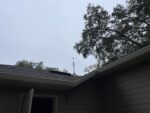
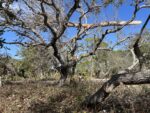
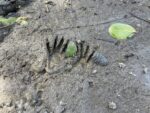
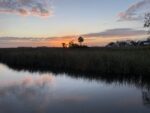
After a few hours at Florida's coast, one begins to see beyond the obvious signs of damage from Hurricane Helene to houses and infrastructure, and other more subtle signals become visible. At the edge of the marshes in Suwannee, a town at the mouth of the Suwanneee river, the land had subsided significantly. We spotted a red life jacket caught in top of a stand of high reeds near the waterline. Near the Cedar Keys museum, a bleached log had been lifted into the upper branches of a Cedar or Juniper. "Have a good time on the island- or what's left of it" said a Cedar Keys resident named Tom as we left the community garden he had set up and repaired from storm damage. We noticed how local mud clams grow in clumps, clustering on each other, rather than on rocks, like the clams and mussels of California and the UK. In the mud, the footsteps of boots traced a path to a dense outcrop of clams, presumably for a local clam harvest. Raccoon feet looked like tiny hands sunk deep in the mud. "When I was young we all used to go clam stomping" said a woman we spoke to in Cedar Keys. "You would stand in the mud and stomp your feet down over the clam. They were huge" she made a sign with her hands, fingers arranged in a large diamond shape, "nothing like what we eat today", she added.
2024-12-23 10:47:00
Sasha Engelmann
Steve Engelmann
Gainesville, Florida , United States
United States
NOAA-19

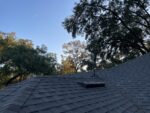
2024-12-22 11:29:00
Sasha Engelmann
Steve Engelmann
Patio Homes, Newberry , United States
United States
NOAA-19


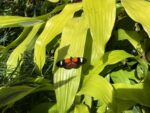

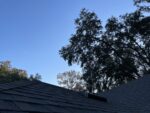
Day 1 of the Florida Automatic Ground Station testing phase. A turnstile antenna is taped to a tripod sitting on the angle of the roof. An RF cable runs through a crack in the garage window to the AGS on a worktable inside.
2024-11-22 08:21:11
Georgia Rhodes
Southern Ocean,
NOAA-19
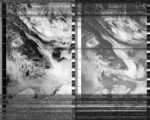
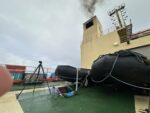
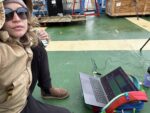
Another day, another storm in the Southern Ocean. I thought about removing the tip of my finger from my photo of my station, tucked in with the Zodiac boats and surrounded by coring equipment, but it shows a signal of how difficult it can be to operate anything that isn't tied down. The rolling of the ship and the strength of the mind make any one-handed task just on the edge of impossible. I don't expect to experience weather like this again in my lifetime, but I also don't hold a lot of expectations that anything will remain as expected.
2024-12-18 10:07:46
Sasha Engelmann
Patio Homes, Newberry , United States
United States
NOAA-19
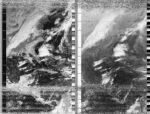
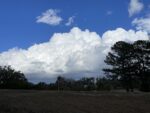
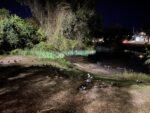
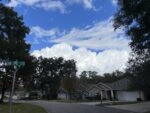
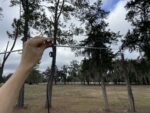
Cumulus clouds tower to the east of "Patio Homes" in Newberry, so sharp and iridescent, they look like they have crystalline facets. It is muggy today, but I stubbornly wear my Mom's flannel-lined denim jacket on my walk to the local golf-course-turned-park - I am needing protection. The political 'climate' of Florida has been on my mind today. An organisation called Safehome ranks Florida the second most unsafe state in the USA for LGBTQIA+ people based on current legislation and records of hate crimes. Governor Ron De Santis' GOP-led 'Don't Say Gay' law, passed in 2022, barred instruction on sexual orientation and gender identity in kindergarten through the third grade on its inception, and was later expanded to all grades. It had a chilling effect across the state, caused queer teachers to hide photos of partners and take down rainbow flags, queer festivals to be cancelled, and books featuring queer characters to be removed from curriculums. It also inspired a series of other similar laws in states like Arkansas, Alabama, Indiana and North Carolina. A 2024 'settlement' clarified that LGBTQIA+ discussion can happen in classrooms "as long as it is not part of official instruction", and that the law doesn't apply to books with incidental references to LGBTQ+ characters or same-sex couples, "as they are not instruction on sexual orientation or gender identity any more than a math problem asking students to add bushels of apples is instruction on apple farming". Though it is a relief to know that some books are being allowed back 'in', it is frightening to think they were removed from teaching in the first place, and the comparison between queer characters and 'bushels of apples' feels particularly wrong. Ron De Santis called the 'settlement' a 'huge win'. In August 2024, all of the webpages on the Florida state tourism website related to LGBTQIA+ resources and travel advice were quietly removed. On my walk back to 7th street, I notice two American flags raised high on a dedicated pole in the front yard of an olive green house.
2024-12-17 10:20:29
Sasha Engelmann
Old golf course next to W Newberry Road, Gainesville, USA
USA
NOAA-19
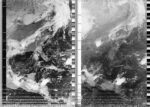
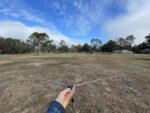
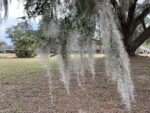
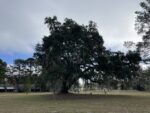
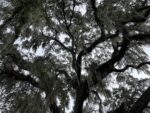
The unusual humidity and warmth woke me up from a dream in a shadowy landscape, and it took me more than a few seconds to realise I was in Florida. Peaking out the window I saw a suburban street framed by massive palm trees, southern live oak, bald cyprus and lots of ferns. Spanish moss trailed down from the southern live oaks, sometimes so thick it seemed to cover the entire tree. On a morning walk I discovered what seems to be an old golf course turned into a neighbourhood park, and I climbed the only hill (a very small mound) to see further across. As the landscape is so flat, I could see further than expected. On the other side of the cul-de-sac where I slept, there appeared to be a quarry full of excavation machinery and a bright turquoise pond, a bit too turquoise to be non-toxic. As I listened to NOAA-19, a group of men in high viz outfits drove up and down the golf course in small open door vehicles that appeared to be cutting the dry, light brown grass. I watched them run over and over the same spots, and wondered what the purpose of this was- a seemingly futile looking attempt at edge-maintenance, kicking up small clouds of dust.
2024-12-08 21:12:27
Soph Dyer
A hotel, Eindhoven, The Netherlands
The Netherlands
NOAA-19


I lean out of the hotel window to catch a noisy signal. The signal and noise come in waves: signal rising, noise rising, signal rising, rising, rising, rising. "Assad’s gone." "I told you," my closest Syrian friend writes from Hong Kong. "How are you celebrating?" I ask. He sends a photo of him looking sharp, wearing a Mercedes cap, with a keffiyeh draped over his shoulders, holding a slice of red velvet cake.
"U have no idea how ecstatic I am," he writes.
No one I know believed that this day would come. And, at what cost? "I'd written off a future without Assad," WhatApps a former human rights colleague who, in 2016 interviewed survivors of Saydnaya Prison. I recall her saying that the investigation had almost folded as they could not find enough interviewees because so few people left the prison alive.
I watch on Al Jazeera as a stream of men and women walk up a dirt path between mine fields, into the open gates of Saydnaya.
2024-12-15 09:26:13
Steve Engelmann
Pacific Palisades, California, United States
United States
NOAA-19

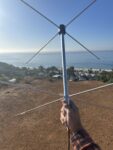
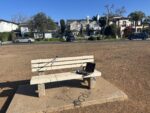
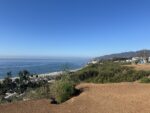
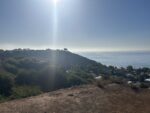
The view from the bluffs was a sunny and calm Pacific Ocean with only a distant layer of low clouds hugging the horizon. A fifteen minute drive north along the coast would take you to Malibu where roads are closed due to the Franklin fire. A week earlier a fire erupted late at night. 8 homes were burned as Santa Ana winds gusted to 100 kph and humidity levels dropped to 5%. Pepperdine University was completely surrounded. The fire stands at 43% containment, but dry winds are expected to return in a few days. In November of 2018, the Woolsey fire burned 97,000 acres in just a few days. The term "fire season" has little meaning at this point. Insurance companies have been refusing to write new policies due to the increased risk of loss due to the changing climate. This last week California agreed to allow insurance companies to increase their premiums in response to the new climate reality.
2024-12-13 17:53:00
Los Angeles AGS
Los Angeles, United States
United States
NOAA-19

2024-11-15 08:05:33
Georgia Rhodes
Southern Ocean, Antarctica
Antarctica
NOAA-19
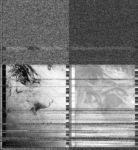
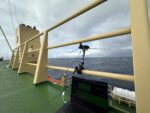
This is the farthest south towards Antarctica my body would go, although I didn't really put that together at the time I was receiving this image.
2024-11-14 08:20:04
Georgia Rhodes
Southern Ocean, Antarctica
Antarctica
NOAA-19
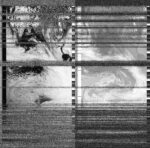

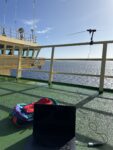
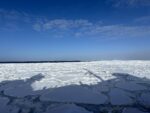
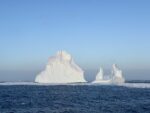
This day was sunny and clear, which was very rare to see during my trip through the Southern Ocean. The second mate has told be this is the grayest, stormiest research cruise he's ever been on. But this particular morning broke clear and bright and while it got a bit dark midday the afternoon was sunny again which offered a shadow of the ship onto the pancake ice. Later, at what would be considered night but is in fact still light, the people of the ship would all pour out onto the decks to see the last glorious iceberg patch we would end up having passed through. The remainder of the time at sea would be in open ocean.
2024-11-28 08:44:24
Georgia Rhodes
Southern Ocean, somewhere in the vicinity of 170°W, 57°S, Antartica
Antartica
NOAA-19
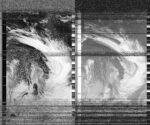
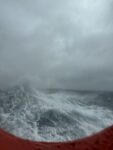
This is an image taken from the porthole next to my desk on the RVIB Nathaniel B. Palmer on the day I imaged the weather. Typically the weather decks on the ship are closed during storms like this, but I was allowed outside to take my satellite reading. It was so windy I had to hold onto the antenna and my computer the entire time.
2024-12-10 11:35:24
Sasha Engelmann
Hackney Downs, London, United Kingdom
United Kingdom
NOAA-19
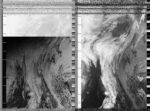
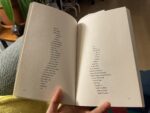
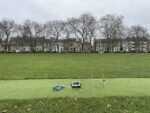
to / desire / the world / as it is / not as / it was / falling / feather / attaches / to new life
The third poem in CA Conrad's book 'Listen to the Golden Boomerang Return' makes me forget to breathe while I read it over coffee.
for a moment / when the hammer / approached we thought / is that thing coming this way
I think of the many 'hammers' still falling on Gaza, on Syria and Lebanon, and of the metaphor of a meteor strike as world ending event, when we already have so many-
we are the fractal / drop to hear / our own / harmonics / in the muffled / underground / hum of seeds
2024-12-09 10:07:04
Sasha Engelmann
Hackney Downs, London, United Kingdom
United Kingdom
NOAA-19
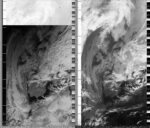
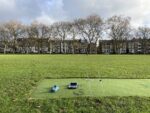
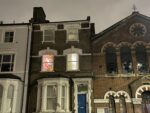
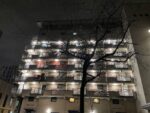
The sky was a thin, eggshell blue when T and I woke up this morning. Two cats, a ginger and a spotted black one, were playing hide and seek in the overgrown grass of the back garden. For a few hours, perhaps three or four, the sun shone in London, but the night came so quickly that every flat on the street had lamps turned on by three. I spent most of the day writing and thinking about projects sent to me by a network of friends and collaborators from whom I had solicited 'new and exciting work in the geohumanities beyond the US / UK'. My friend Cecilie sent me a link to a project called The Conference of the Birds, a transdisciplinary, socially engaged arts collaboration named after the 12th century epic poem by Persian poet Farid ud-Din Attar. Focused on the loss of birds in the High North, the project involves community based exhibitions and events in Norway, Finland, Denmark, Sweden, Iceland and North-Russia. Reading the conference programme, I learned that one of the participants is a twenty five year old person who left home at 17 to learn birdsong and learn to survive alone in the forest. Apparently they can now sing the songs of 130 different species of birds, and they continue to live outside of human dwellings. In their profile photo, they are pictured shoulder up, with bright blond hair in dredlocks, and a small black bird on their shoulder, to which their face is turned in affection.
News came over the weekend that the Assad regime has fallen in Syria. We see scenes of thousands of people celebrating in the streets, crying and cheering. On Democracy Now, an interviewee refuses to 'analyse' the political moment, saying that analysis needs to be suspended while the feeling of this moment resonates.
2024-12-08 10:19:14
Sasha Engelmann
Hackney Downs, London, United Kingdom
United Kingdom
NOAA-19
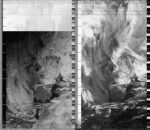
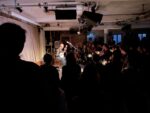
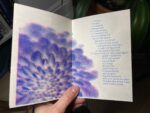
"You look like the old man from Back to the Future" T says to me as I head out to capture a satellite image in still-raging Storm Darragh. "You mean Christopher Lloyd?!" I ask and she smiles a yes. I wonder about the resemblance as I walk to the middle of the park and set up a makeshift shelter for my laptop with one of the umbrellas borrowed from the communal umbrella area near the entrance of our building. No matter which umbrella I chance to grasp, I always end up with a wire poking through torn Rayon, like a featherless wing. To keep the umbrella firmly over my laptop, and thus to protect it from random sprays of rain seeming to come from all directions and nowhere, I stood on the handle with one foot while shakily steering the antenna. When sharp unexpected gusts threatened to carry the umbrella away from my exposed keyboard I had to lean my entire weight on top. There were a surprising number of people in the park with their dogs, so these antics were in full view. A chocolate Labrador came bouncing over. Normally I am happy to play with dogs while holding my antenna, but this one threatened to collapse my entire delicate balance in the wind. "You nosey dog!"" I heard a woman's voice say before the wind drowned her out. When I finally got to the end of the pass and started packing up, my fingers were so icy cold they fumbled, and somehow I managed to get a slab of mud on my trackpad.
Later at Cafe Oto I saw the great poet, ritualist, mystic and queer icon CA Conrad read their poems. For almost fifty years, CA has travelled by car across the US, writing poems and inventing somatic rituals. One of their rituals involved leaving tear off paper notes on notice boards across Philadelphia inviting people to call a number and leave a message for Elvis. Several people would call each day, some multiple times. Another ritual involved them bathing their body in the sounds of extinct species. Later they started working with the sounds of coyotes, crows and foxes: "We've got to learn to love the world we have, not the one we lost" they said. I was moved by all of their poems, but one in a new pamphlet (created in collaboration with Jacken Elswyth, a queer banjo player) resonated especially well today. It ends: "I've got the wind I say / with both hands".
2024-12-07 20:23:00
Prototype Automatic Ground Station 10
London, UK
UK
NOAA-19
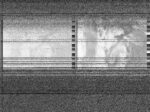
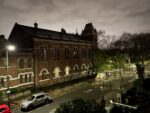
I woke at around 6am to winds buffeting the flat and a car alarm going off on the street. Can winds cause car alarms? I wondered as I drifted back to a light sleep. This morning, the needle of the barometer teetered far below 1000 hPa and pointed at the diagram of a storm. Indeed Storm Darragh was already swirling across the U.K., a storm so violent that the Met Office issued a red wind warning, alerting people of the threat to life – only the 19th since 2011.
2024-12-07 05:01:00
Los Angeles AGS
Los Angeles, United States
United States
NOAA-19

2024-12-05 17:52:00
Los Angeles AGS
Los Angeles, United States
United States
NOAA-19

2024-11-30 20:10:00
Sasha Engelmann
Hackney Downs, London, United Kingdom
United Kingdom
NOAA-19
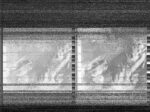
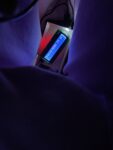
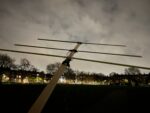
I've been testing open-weather Automatic Ground Stations all week, and as we are still seeing some unusual patterns and distortions in the images, I brave Hackney Downs long after sunset tonight with AGS 12 and my Yagi-Uda antenna. It is wet and cool but not freezing. Today the pressure on my home weather station (given to me by Soph on my birthday last weekend) reads 1024 hPa, and points toward the symbol at one pole of the barometer that says 'clear bright sky'. This feels at odds with the low-hanging cloud that I feel all around Hackney, but it is true that the weather is stable, and it doesn't feel like a storm is brewing, yet.
2024-12-01 10:07:00
Sasha Engelmann
Hackney Downs, London, United Kingdom
United Kingdom
NOAA-19
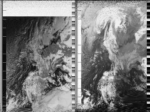
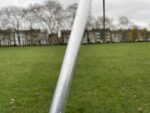
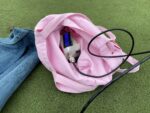
In a recent article on 'Clouding knowledge in the Anthropocene', Kate Lewis Hood proposes a "cumulative reading - where cumulative shares an etymological root with cumulus, a type of cloud (OED, 'cumulate') - that shifts from clear skies to fog, between atmospheric transparency and opacity" (2018: 83). Exploring poetry including The Weather by Lisa Robertson and Drift by Caroline Bergvall, Lewis Hood suggests that "such experimental practices enable a shift from asking whether to read or interpret in a certain way to engaging with the weather system of a text: its unpredictable changes and complex patterns" (2018: 185). If today's weather system in London was a text, it might read like this passage from Robertson's The Weather:
Our skies are inventions, durations, discoveries, quotas, forgeries, fine and grand. Fine and grand. Fresh and bright. Heavenly and bright. The day pours out space, a light red roominess, bright and fresh. Bright and oft. Bright and fresh. Sparkling and wet. Clamour and tint. (Robertson, 2001: 10)
2024-11-28 09:37:09
Steve Engelmann
Venice, California, United States
United States
NOAA-19
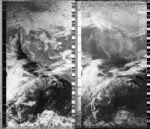
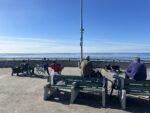
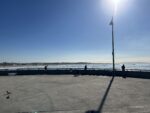
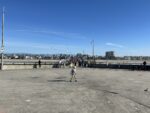
Went out to the Venice Pier to capture a satellite pass on Thanksgiving. From the image it looks like blue skies for the entire California coast. The pier was busy with sport fishermen. One approached me and asked me if I was looking for aliens. The aliens he was referring to, however, were not extraterrestrials. He was suggesting that immigrants were coming ashore via boats at night. We I explained that the NOAA-19 satellite was harmlessly taking our photo, he suggested we all give it the finger.
Sarah Josepha Hale had been campaigning for decades that the US celebrate Thanksgiving. In 1863 she finally convinced Abraham Lincoln to make the last Thursday in November a national holiday. In the midst of the Civil War, it was intended to find common ground and unify the country. Many Americans express anxiety at sitting down with relatives and navigating the inevitable awkward conversations. Sometimes I wonder if I am the "crazy uncle" at the table.
2024-11-24 09:58:41
Sasha Engelmann
Hackney Downs, London, United Kingdom
United Kingdom
NOAA-19

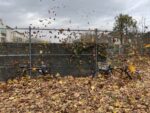
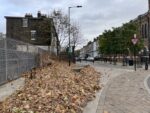
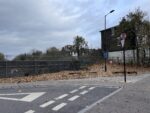
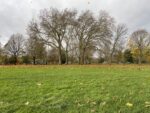
Storm Bert - the 'named storm' that was brewing on the Atlantic when I last contributed to the Archive on Thursday - is sweeping the UK this weekend. "More than 200 flood alerts put in place and three men die on roads as wild weather crosses country" reports the Guardian this morning. The flood alerts are due to the rapid melting of ice and snow across the north of England and Scotland, as the storm brought milder temperatures. Indeed today in London, it is shockingly warm, around 17 degrees- a huge jump from previous days. The Met Office has issued yellow warnings for rain and wind across large swathes of the country into Sunday, and this is felt in London, with gusts battering houses, trees and infrastructure. As I braved the park with my turnstile antenna, I noticed how a mountain of plane tree leaves had been pushed against the fence near the train tracks, drowning two bikes and the fence itself. In the middle of Hackney Downs, the force of the wind meant that people walked with their heads down, hoods pulled over their faces. My laptop flung wildly left and right as I tried to track the satellite pass. The turbulence reminded me of a day back in 2021 when Soph and I went out to Burgess Park to capture an image of Storm Eunice- against the advice of the Met Office- and I had to kneel on my laptop to keep it from flying away. The blustery conditions affected the satellite image I captured today, as I struggled to keep hold of the antenna. Oddly, although the Guardian headlines its reports with various numbers of injuries and deaths across England and Wales, reading further into the reporting, a phrase consistently repeats: 'It was not clear whether the incident was linked to the storm'.
2024-11-20 20:39:00
Sasha Engelmann
Hackney Downs, London, United Kingdom
United Kingdom
NOAA-19
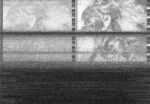
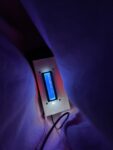
A freezing night in the park, with a clear, faintly star-lit sky. As I return to Hackney Downs long after sunset to test the open-weather Automatic Ground Stations, I am getting better at recognising night-time park activity. Though many people warned me of entering the park at night, I am growing to feel more safe. Perhaps its something about holding a tall pole with a metal object attached at the end. I've also realised that, while daytime park activity happens on the fields, with dogs galloping and racing around each other, night-time park life stays close to pathways and the deeper shadows of trees. I have rarely seen another person walk directly across the largest field, where I stood this evening.
As I watch the BBC weather report later in the evening, I learn that the beginnings of a 'possibly named storm' are brewing in the North Atlantic. I wonder and try to anticipate what the name of this storm will be.
2024-11-19 20:49:00
Sasha Engelmann
Hackney Downs, London, United Kingdom
United Kingdom
NOAA-19

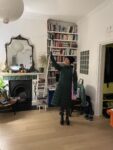
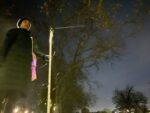
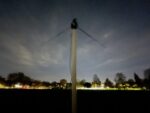
It has rained, it has snowed, and the crevices and corners of London are thoroughly drenched in semi-freezing moisture. This is testing the infrastructures of the city, a city that one might expect could have weathered many cold winters in its time. Yet, one of my best friends, K, who was over for a spontaneous Monday dinner last night, told me and T of her crumbling, disintegrating roof in Dalston. The roof has been leaking for months, and mould has been growing along the walls and in corners. She had stopped paying rent after her umpteenth attempt to ask the landlord for repairs, failed. Within weeks of her stopping payment, the landlord had workers visit the flat, and they claimed to have 'fixed' the issue. But yesterday, when she got home after dinner, she texted me photos and videos of the rain coming straight down onto her floor. A long curving crack in the ceiling gave me shivers- as if the whole roof was going to collapse. Luckily, K left to stay at her girlfriend's place. I couldn't help but think how many people in London are feeling similar exposures to the rain, the cold. How many walls are being eaten from the inside out, by the creep of humidity and the mould that thrives in it?
I tested the AGS in the park late at night today. I didn't want to 'expose' the AGS in the park, less because of weather, wind or rain, and more because a number of people have had phones stolen in the park recently. As the AGS is so conspicuous with its glowing light, I hid it in a tote bag. For the antenna, I wrapped the legs of an rtl-sdr v-diple around the top of a PVC pipe. Standing in the middle of the dark field, holding the pole to the sky, I felt a little like a fictional character enacting some magical ritual. The moon rose against the silhouetted plane trees and the outlines of bodies crossed under lamp posts. Most avoided the dark, open grass.
2024-11-14 10:19:00
Prototype Automatic Ground Station 13
London , United Kingdom
United Kingdom
NOAA-19

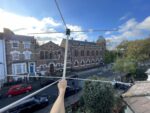
2024-11-11 09:49:13
Steve Engelmann
Pacific Palisades, United States
United States
NOAA-19
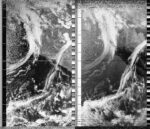
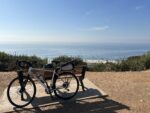
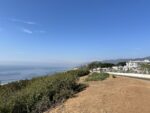
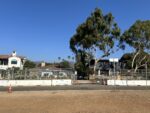
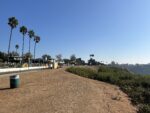
Looking out over the Pacific Ocean on another beautiful day. City crews are busy behind me trying to stabilize the bluffs from their relentless slide towards the ocean. Multimillion-dollar homeowners are in denial of the inevitable, attempting to resist the forces of nature. It has been nearly a week since the election. Trying to find my tribe. Spent most of my Saturday with Climate Strike LA. This morning it was a zoom meeting with Human Rights Watch. Concerned, but feeling the energy. We too shall resist.
2024-11-06 09:40:11
Sasha Engelmann
Miljacka River, Sarajevo, Bosnia and Herzegovina
Bosnia and Herzegovina
NOAA-19

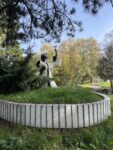
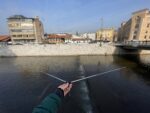
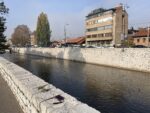
Thankfully it is morning now, and the sun is shining on the Maljicka River in Sarajevo. I woke around 1am last night in tears, thinking of all of the places I have seen so far on this trip in the Balkans, and the way my family history is so inscribed in this landscape, a landscape that has felt so much pain. I thought about the memories the landscape holds, that monuments to anti-fascist resistance or tombs of fallen fighters, or memorials to the more recent Yugoslav Wars of the 1990s, only manage to represent partially. Upon properly waking, the news of the US election was shocking, but somehow dulled by the intensity of the last few days. I almost found it darkly humorous, that in the week I am spending engaging with my family’s history, and the very concrete, serious struggle of anti-fascism, a movement for which my great grandfather risked everything, a fascist has been elected to power in my birth country. As the news sunk in later in the day, the dark humour faded and despair set in.
I kept the despair at bay by throwing myself head first into the story of Sarajevo womens’ resistance to authoritarian power, and their role in the communist movement. T and I drove to see a monument to Sarajevo victims of the national liberation war at Vraća Park, on the west of the city. The park itself is not well maintained, with trash and graffiti everywhere, and much of the original stone architecture crumbling. However, at the far end of the park, stands a monument to ‘Women Fighters’ by Sarajevo sculptor Alija Kučukalić. The sculpture is a 2-3 metre tall figure of a woman, from the torso up, wearing a sharp jacket, and gazing to the sky, arms open in a cactus shape and fists clenched. She has a long braid that flows down her back, and her face turns upward. An early sketch for the sculpture that I found online shows a female figure with an agonising face - indeed the original title of the work was “Stratišta” (Executions). While the sculpture is meant to be representative of all fallen women victims and fighters, many believe the sculpture depicts Radojka Lakić, a female leader of the Sarajevo underground communist resistance who was executed at Vraća in September 1941. The sculpture is in poor condition, emblematised by the fact that the right arm has been sawed off. Yet, even with only one arm raised, the figure is striking - a reminder of the immense strength of resistance, and the cost of truly fighting fascism.
2012-12-12 12:12:12
test 2
tes 2,
NOAA-19
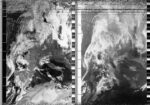
2012-12-12 12:12:12
test 1
test 1,
NOAA-19
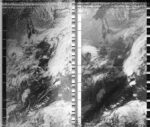
2000-01-01 00:00:00
test,
NOAA-19
2024-10-31 09:50:53
Sasha Engelmann
Hackney Downs, London, United Kingdom
United Kingdom
NOAA-19
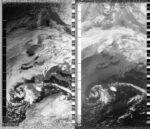
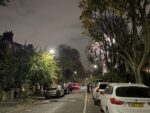
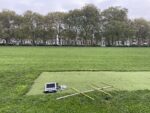
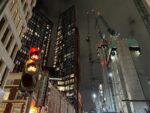
The humidity is 100% today. When T and I wake up, we see condensation on the living room and kitchen windows- as if the flat is sweating. Yet it is not warm, it is strangely cold. Later in the morning, I find myself getting anxious at the amount of assessments I have to review for an external examiner appointment at another university, and for which I need to synthesise feedback to the whole department by the end of tomorrow. To calm down, I spend twelve minutes on the couch after lunch meditating with the help of an app. This meditation is called 'Sense' and at several points, the guiding voices says 'There's no need to go out looking for sounds. Just like a satellite dish, we can simply receive what's coming'. I find myself puzzling at this metaphor while the meditation continues, so much so that I realise I am not following the instructions anymore. Does a satellite dish 'simply receive what's coming'? And is the body anything like a satellite dish? I remember the meditation Soph invented for their students in Eindhoven, called 'Your body is an antenna'. I have always loved this meditation, and find that it makes sense- an antenna can just exist, and it can pick up a wide ranging but also environmentally limited amount of information around. A satellite dish, on the other hand, feels intent on capture, on picking up a television signal. Later in the day, after I have made some headway through the external examining, my body antenna feels less tense, more open. Outside I can hear the beginnings of Halloween, as mobs of small children spill out of houses and make small shrieks of excitement on their way down the street.
2024-10-30 10:05:00
Prototype Automatic Ground Station 11
London, United Kingdom
United Kingdom
NOAA-19

Today is humid, over 80%, and this creates blurry lines and fuzzy borders. The sky hangs low over London. In the evening, news of the flash flooding in Spain comes online, and T and I watch with horror as Channel 4 news shows images of people being airlifted from flooded homes, holding tightly to their pets, and cars having been pushed across streets and cities - piled up, water logged.
2024-10-29 10:17:00
Prototype Automatic Ground Station 11
London, United Kingdom
United Kingdom
NOAA-19

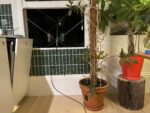
As I leave for a workshop with a PhD student in Bloomsbury, early this morning, I set up my turnstile on the kitchen windowsill. Making sure its 'reflector' spokes are inside the window, and the cable is taped to the window ledge, I leave the flat. Upon returning many hours later - after cycling over 1.5 hours in total across London, through streets heavy with mist, smog and traffic - the antenna is still there, poised to receive. I wondered, as no one was in the flat when it recorded, whether the plants sensed what was happening. I wondered if the simultaneous recording of Automatic Ground Station 11 on the kitchen table, connected via a thick coiled cable to the turnstile antenna on the window, together with two other Automatic Ground Stations in T's studio (not connected to antennas) changed the conditions of the flat in some way. I enjoyed thinking of the three stations lighting up on cue, all attempting to track and receive radio waves from NOAA-19.
2024-10-27 10:35:55
Steve Engelmann
Pacific Palisades, California, United States
United States
NOAA-19
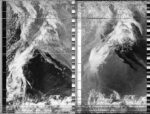
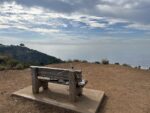
In a late morning pass overlooking the Pacific from some neighborhood bluffs. A thin layer of stratocumulus clouds add a calming effect to the Fall and a little more than a week before the US election. Hardly a mention of the climate crisis amid fictitious tales about Haitian immigrants and praise of Nazi generals. Crossing my fingers for a favorable forecast.
2024-10-22 11:14:35
Sasha Engelmann
London Bridge, London , United Kingdom
United Kingdom
NOAA-19
2024-10-23 10:50:16
Sasha Engelmann
Eastfield Grass Pitch, Royal Holloway University of London , United Kingdom
United Kingdom
NOAA-19
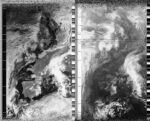
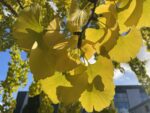

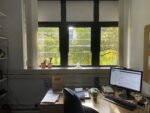
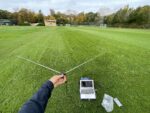
The department is hosting an 'authors meets critics' session with Henry Wai-Chun Yeung, an eminent economic and human geographer from Singapore, and I am on a panel of respondents. Henry's book is called Theory and Explanation in Geography, and it synthesises vast literatures in the discipline informed by theories such as non-representational theory, actor network theory, assemblage and feminist and postcolonial theories. As I need to formulate something to say, I spend the morning and most of the afternoon buried in this book, thinking about Henry's proposals for theorising. In one chapter, Henry proposes that 'relational' theories in geography need more concreteness, focus on causation, and specificity, so that they can better explain the world. He advocates for what he calls relational ‘geometries’ or ‘relational specificity’ or ‘relational complementarity’. An example of relational geometries is regional union networks and their ways of complementing each other, to gain power and resources. The response I decide to give reflects on what a specific focus on the geometry of relation might do - how does it operate? What does it explain?
I have recently been puzzling over the geometry of relations in a paper on the ‘aerial turn’ in geography - I have been observing how, for quite a while now, geographers participating in the ‘aerial turn’ are writing about air in three key modes: i) as something that flows or can be traced, most often on a line ii) as a collection of particles iii) and as a volume. Although these three ‘orientations’ to air are persuasive, and in many ways helpfully explanatory for all kinds of aerial processes, from atmospheric warfare to the relations between breathing bodies and spaces, they produce versions of air and atmosphere that are linear, particular, and volumetric, and they distance other ‘versions’ of air that are more difficult to draw into geometric forms or shapes. I have been wondering how the ‘aerial turn’ is thus reproducing spatial geometries that say more about disciplinary formalism and perhaps modernist aesthetics than anything about air itself.
Geographies of air are indeed a very small part of the discipline, but in my hesitation around the ‘relational geometries’ in Henry's book, I wonder if there is something else going on here. I wondered if the proposal to adopt ‘geometries’ felt at odds with the ‘relational irresolutions’ ‘topologies’ and disorientations being developed and theorised for studies of infrastructure by people like Jerry Zee and Aya Nassar. I think also about the outpouring of work on quantum field theory and quantum mechanics in black studies and geographies, for example in new work by Pat Noxolo, and I think it is important to take seriously what a turn to the quantum does in this work, that geometry simply can’t. As important as it is to be specific and practical about spatial relations and how our theories of relation can explain causal effects, I feel that these and other movements in the discipline suggest plural, capacious, perhaps less immediately geometric forms of relation, and yet they are doing so without the vagueness or flattening that might have characterised relational theories of ten-twenty years ago.
For the seminar, the room is packed- geographers from across the department are present, as well as people from other departments. Henry gives a presentation on the book and I am impressed with the way he manages to make theory sound exciting and approachable. After me and three of my colleagues have offered responses, we discuss what it means for goegraphers to 'do theory', what kind of theory that might be, and whether the issue is rather than geography is both a social science and a humanities discipline- theory works differently and does not necessarily need to 'explain' in the humanities, as it might do in the social sciences. After the event, the atmosphere of the department is animated. A PhD student comes to my office and speaks for thirty minutes about how excited she was by the seminar. From time to time, I catch a glimpse of the ginko trees outside the window of my office. The golden leaves are glowing in the afternoon sunlight, so that they seem to be projecting light in all directions.
2024-10-21 11:15:17
Sasha Engelmann
Canada Copse, Royal Holloway University of London, United Kingdom
United Kingdom
NOAA-19
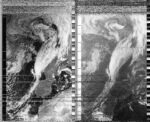
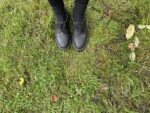
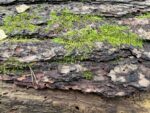
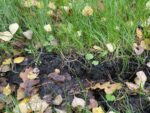
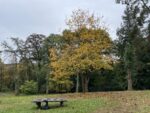
"Late nights in black silk in East London / Church bells in the distance / Free bleeding in the autumn rain / Fall in love again and again" sings Caroline Polachek in a somewhat cheesy but also beautiful remix of the Charli XCX song 'Everything is romantic'. The song has been circling around in my head for several days, and I hear it when I leave my flat in the dark at 6:30am this morning, spotting the waning moon in a fuzzy glow above. A tank truck rolls slowly along the edge of the park. A man in a high viz jumpsuit is walking ahead of it, using a pressurised hose to blast aside the golden leaves that paper the asphalt in wet layers. In the early morning moonlight, they look like a chimera - half machine, half person. Though Storm Ashley has not affected the southeast of England, the world feels soaked with water- a ubiquitous saturation.
2024-10-13 17:06:00
Los Angeles AGS
Los Angeles, United States
United States
NOAA-19
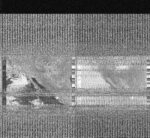
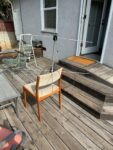
2024-10-13 11:14:35
Sasha Engelmann
Hackney Downs, London, United Kingdom
United Kingdom
NOAA-19
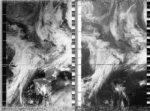
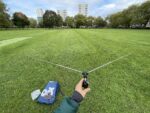
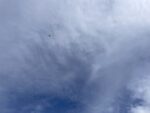
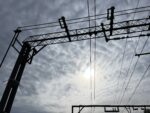
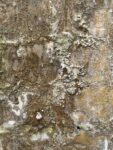
As I ride the 35 south from Liverpool Street the sun begins to pierce through the matted, slightly hazy sky. A current of ‘Arctic Air’ has flowed across the U.K. this weekend and lowered temperatures at least six degrees. At a performance yesterday afternoon in a roofless Anglican Church in Nunhead Cemetary, the cold entered deep into my lungs and bones. After an evening at the pub, T and I ran to the overground station and realised we had fifteen minutes to wait for the train - it felt like an interminable time in that level of cold. As we entered Tesco to warm up before the train, an older man sitting on the pavement near the streetcorner lost his paper cup in the wind and it spun into the traffic. After I retrieved it for him, he asked if I could buy him a chocolate milkshake. He drank the cold drink in big gulps as me and T ran back to the station for our train.
2024-10-11 08:57:00
Prototype Automatic Ground Station 2
Vienna, Austria
Austria
NOAA-19
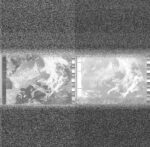
Remoteness is a position. The prototype Automatic Ground Station has freed-up my time to write more contemplative, spelling error free Weather Notes, but this has come at a cost. I no longer need to go outside in all weathers at inconvenient times of the day (when I should be in a meeting, eating dinner or just doing something unrelated to satellites and weather). For several weeks, I have not had to checked satellite orbits, hold an antenna or manually decode sound and process files. As a result, I look at today's satellite image with a sense of detachment. I treat the image more like a 'data product' than an hard-won 'weather observation'. This abstraction makes the tropical storm systems just beyond the image's frame feel remote and the weather outside my window feel comfortingly local. What's more, I have allowed a 'safe' distance to open up between me and other geopolitical heavy weather. When I manually captured longer satellite images, I often looked for Black Sea or coastlines of North Africa, the Gaza Strip, Israel and Lebanon to orientate myself. Put differently, I have put the 'remote' back into remote sensing and it has become easier for me to deny shared atmospheres and storm systems, interdependencies and breath.
2024-10-08 19:24:00
Prototype Automatic Ground Station 2
Vienna, Austria
Austria
NOAA-19
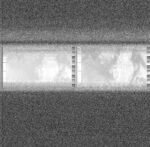
"When the sand settles," said my sister on the phone earlier. I think that she meant to say "when the dust settles" but misspoke and created a one line poem.
2024-10-07 19:36:00
Prototype Automatic Ground Station 2
Vienna, Austria
Austria
NOAA-19
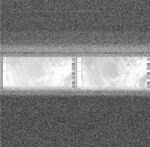
On my way to work, I see a posy of flowers and candles arranged around a group of 'stumbling stones' (Stolpersteine) for Jewish Holocaust victims. The care and thought contained in the small act of memorialising such unfathomable violence moves me. Yet, I also feel disquiet at the possible mnemonic "fusing" of the October 7 attacks with the Holocaust. In a Guardian article, 'How Israel has made trauma a weapon of war', Naomi Klein asks what are the dangers (and motivations) of making such parallels? Klein's arguments have resonances beyond Gaza to other contexts where work is being done to remember the violence and victims of war. Sasha, I am thinking of your 'pilot' research into your family's Balkan ancestry, knowledge of wind and other more-than-meteorological weathers. I am thinking too about how half a decade ago I tried and mostly failed to write about the flawed efforts of Western NGOs to record and so mark the deaths and injuries of civilians in the wake of US-led aerial bombing campaign against the so-called 'Islamic State' in Iraq and Syria. The questions that recur, for me, are about how the memorialisation of "traumatic histories can be done in ways that encourage collective healing and a sense of solidarity across divides" (Klein 2024). And, how when this is not the case, throughout history the transmission of trauma has been used to stir revenge and justify punitive campaigns of violence. Conversely, too, how when public or collective acts of remembrance are forbidden, mourning becomes an act of resistance. Remembering or "zochrot" in Hebrew, writes Klein, "in its truest sense is about putting the shattered and severed pieces of the self together (re-member-ing) in the hopes of becoming whole" (Klein 2024).
2024-10-06 11:02:38
Sasha Engelmann
London Bridge, London, United Kingdom
United Kingdom
NOAA-19

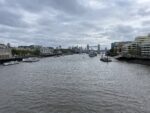
On London Bridge, loosely knit groups of people wander by. I notice two families in which the Dad is pointing across the Thames to skyscrapers and offering some words of information or wisdom to his children. They don’t look interested. It’s the kids instead who are interested in me, asking ‘but what is she doing ??’ in voices that implore an answer. A tall man passes very close to my left shoulder and says in passing ‘watch out with that thing’ even though I am standing well to the edge of the bridge and there is tons of empty space to walk. The pass is a bit staticy at times but I have come to expect this from most of London’s bridges - too much happening by land, river and air.
2024-10-04 20:18:00
Prototype Automatic Ground Station 10
London, UK
UK
NOAA-19

The satellite image collected by Automatic Ground Station 10 is framed with the noise and obstructions of a London street at night, a full story of building behind and four story buildings across the street. Yet in the window of signal there is a glimmer of movement, a curve and swirl of cloud that, in the infrared channel, speaks of something moving far away. I am still in awe of the fact that this is possible with an antenna held out of a window.
2024-10-04 08:44:00
Prototype Automatic Ground Station 2
Vienna, Austria
Austria
NOAA-19
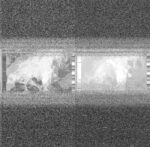
The temperature is hovering around 11 centigrade. Not quite the "baltic" but still bone chilling. It's wet and soggy. Yesterday, I learned the German word for "drizzle" is "Nieselregen". Today, Nieselregen has turned into "it's chucking it down" or depending on your mindset, "lovely weather for ducks!" My favourite word for especially grey wet weather is the Scottish, "dreich". To my ears, it sounds perfectly bleak.
2024-09-29 19:35:00
Prototype Automatic Ground Station 2
Vienna, Austria
Austria
NOAA-19
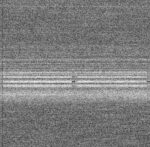
2024-10-03 20:28:00
Prototype Automatic Ground Station 10
London, UK
UK
NOAA-19
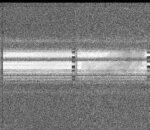
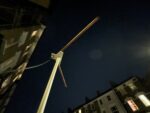
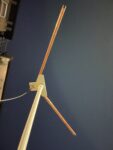
2024-09-29 10:46:38
Sasha Engelmann
Hackney Downs, London, United Kingdom
United Kingdom
NOAA-19
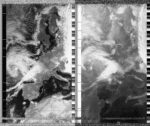
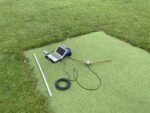
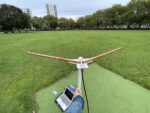
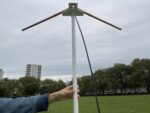
Today we put on the heating in our flat for the first time this autumn. The air temperature has dropped significantly over the last week, and there is an 'edge' or 'bite' to the weather outside. At dinner on Friday night with a very good friend, we all agreed to change our duvets to the heavier 'winter' version. This collective decision made me think of squirrels and other forest creatures adding leaves and twigs to their nests for warmth. I tested a new antenna in the frosty park this morning - a copper, weatherised V-dipole made by a radio amateur supplier in Florida. I used a PVC pipe given to me by Martin Collett (for another tape measure Yagi) to elevate the antenna above ground level, as if on a small mast. A woman walking two chihuahuas smiled at me. A small cyclone of clouds emerged, swirling over the UK, but hopefully leaving some space for bursts of sun over the rest of the day.
2024-09-27 10:22:22
Alabama, United States
United States
NOAA-19
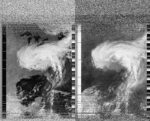
2024-09-21 19:34:00
Prototype Automatic Ground Station 2
Vienna, Austria
Austria
NOAA-19
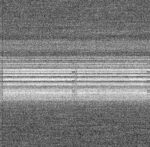
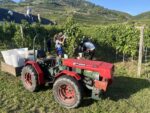
I stretch the blue plastic gloves over my hands. Harvesting grapes reminds me of Marina Abramovic's performance "Counting the Rice" in which participants count and separate grains of rice for a minimum of six hours. At first, it's a novelty to be outside cutting, sorting, and plopping the grapes into the bucket at my feet. Then the repetition becomes annoying. I even feel a little anger. But I have committed to be here so cannot stop and by the morning break of coffee, Käsebrot and gherkins, I have found peace. My experience is more solitary than that of the other volunteers whose German language chatter I struggle to follow, espcially when it slips into Viennese dialect. The grapes are small weather globes (Wetterkugeln). We remove the brown, mushy ones smelling of vinegar that did not survive Storm Boris's record rains, dumped on the Wachau region only a week ago. We leave the purple-brown ones that smell sweet and have a fuzz of 'good mould' (Edelschimmel). Their sugars index a summer of sun and heat-stress – Europe's warmest summer since records began (Copernicus 2024). Lastly, we pick out the grapes with small black bruises left by hail early in the growing season. These are mostly on the South-facing vines that I am picking. They will not be sweet, the winemaker tells us.
2024-09-20 11:07:14
Melody Matin
Toronto (High Park), Canada
Canada
NOAA-19
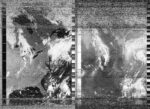

2024-09-19 11:19:56
Melody Matin
Toronto (High Park), Canada
Canada
NOAA-19
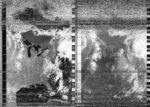
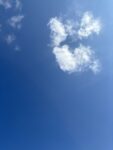
2024-06-14 21:53:37
Soph Dyer
Tiere Viere, Dordolla, Italy
Italy
NOAA-19

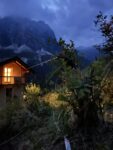
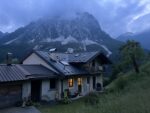
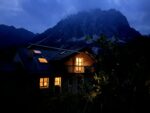
The sky is meeting the mountain. Fair weather, finally. Rain was forecast but did not come. The air smells good. It is a crisp, clear night.
2024-09-17 10:58:00
Soph Dyer
On a train and in my bed, Between Czechia and Austria
Between Czechia and Austria
NOAA-19

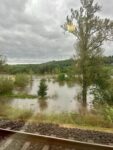
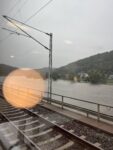
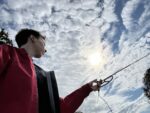
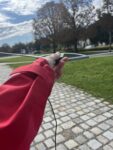
I wake groggy from the late arrival of my flood delayed train. Out of habit, I open my phone. Brown water fills the screen, punctured by branches, buildings and the fluorescent jackets of emergency workers. I read a quote from the climate scientist, Sonia Seneviratne, saying that "most of the water vapour came from the Black Sea and Mediterranean Sea, both of which have grown hotter as a result of human-induced climate breakdown". I share the article in our Signal group. Our intern, LJ, replies that this is a "vivid image". I agree, picturing the Mediterranean falling onto Vienna, in an inversion of sky and sea. It is a literal image of our world turning upside down.
2024-09-17 08:54:00
Prototype Automatic Ground Station 2
Vienna, Austria
Austria
NOAA-19
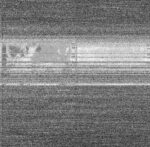
2024-09-16 09:06:00
Prototype Automatic Ground Station 2
Berlin, Germany
Germany
NOAA-19
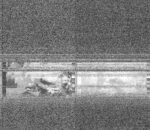
2024-09-11 11:08:41
Sasha Engelmann
Burgess Park, London, United Kingdom
United Kingdom
NOAA-19
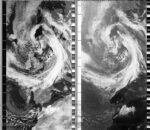
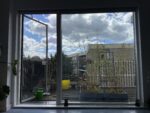
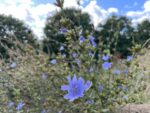
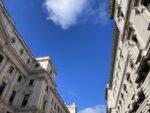
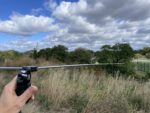
Grazie! Grazie! T and I pronounced our happiness at the blue sky when we woke up this morning. The blue is a deep cerulean and small cottonball clouds dotted the horizon. As we ate breakfast we watched the debate between Kamala Harris and Donald Trump that had aired last night in the US, and within minutes my heart raced and my stomach spiralled. Phrases like ‘illegal transgender aliens’ and ‘killing babies at the seventh, eighth and ninth month’ and ‘immigrants eating dogs’ were spat out of Trump’s mouth. I was reminded of a scene in Leslie Marmon Silko’s book Ceremony that depicts a group of evil ‘witches’ from different Native American tribes at a witch ‘conference’ in a cave. Most witches in the room show their power by donning animal skins and making terrifying performances, but one witch claims their power lies in telling a story, and that as they tell it, the story will already begin happening. They begin telling a tale about dark forces releasing energies into the world and this energy arriving in North America in the form of white people who bring weapons, diseases and greed. In other words, white Europeans are figured as the shapes or shadows of the darker evil at work, but in the story they do wreak havoc. The other witches complement the storytelling witch on their power but say they would prefer this story to not unfold - they ask to call the story back. But the witch says it can’t be done, it is already unravelling. As I listened to some of Trump’s language - the crude and demonic shapes he was conjuring - I couldn’t help think of the power of stories, even if they are neither true or realistic. Something is released when these figures or shapes are vocalised. I do not want to give Trump the credit afforded to the storytelling witch in Silko's novel. I do want to think more about the power of plot, story, and fiction in creating the 'capitalist sorcery' (to use a Stengerian phrase) that we are experiencing in great intensity before the current election.
2024-09-10 11:33:04
Melody Matin
Toronto (High Park), Canada
Canada
NOAA-19


2024-09-09 11:33:25
Sasha Engelmann
Hackney Downs, London, United Kingdom
United Kingdom
NOAA-19
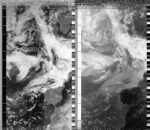
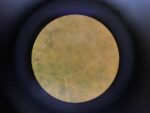
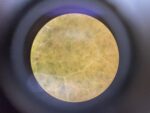
A low-hanging layer of clouds obscures the sky today, and very little light illuminates the streets and gardens of our neighbourhood. I think about a passage in the recently published 'State of the Climate' report by the American Meteorological Society. It explains that, in 2023, there was more water vapour in the atmosphere than many years past, but also, "Despite this increased moisture aloft, 2023 had the lowest cloud area fraction since records began in 1980 with skies clearer globally. Consequently, the clouds reflected away to space a record small amount of shortwave radiation, but also blocked a record small amount of longwave radiation from leaving Earth. The overall effect was the weakest cooling effect of clouds on record". The report goes on to explain a global 'darkening' due to reduced sea ice and other ice-covered areas - here 'darkening' refers to the increased proportion of earth's surfaces that absorb light, rather than reflect it. At the same time, in the UK and across northern Europe, the changing and 'wobbling' route of the jet stream is bringing cloudier, stormier, wetter weather. As I peer up at the thick grey cloud, the term 'darkening' seems to register with many meteorological and more-than-meteorological affects. I manage to coax enough light from a table lamp into the microscope to see the veins of a fallen, yellow Plane tree leaf.
2024-09-06 19:19:00
Prototype Automatic Ground Station 2
Vienna, Austria
Austria
NOAA-19
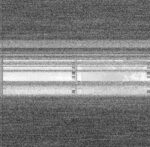
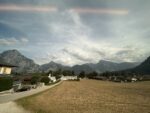
It is one month since the operation and being engulfed by the 'closest weather' of my body. Last night I dreamt that I was standing in a brackish pool near the coast, bare foot with a fine mud between my toes. N and S are nearby. The coastline could be West Scotland. N asks if I’ve stood in the pool before. I know that I have, but for reasons I cannot explain, I lie and say that I haven't. Stripy leaches appear from the mud and attach their mouths to my feet. In horror, I freeze, unable to move for fear of stirring up more leaches. N reaches over and helps me jump out of the pool. I wake distressed and go to the next room where N is sleeping. I fall asleep again, only to dream that I am at a surreal hospital check-up.
2024-09-06 10:29:48
Sasha Engelmann
Hackney Downs, London, United Kingdom
United Kingdom
NOAA-19
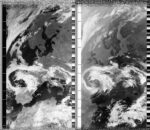
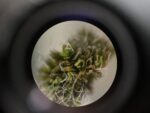
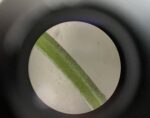
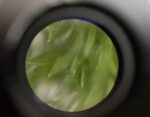
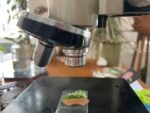
For the second day, the weather is damp, grey and dark, with intermittent rain. The park was wet and puddled, but plenty of people were out walking, having coffee and running with dogs. I breifly cuddled with Moonpie as Dave arrived at the park: 'you're one of the only people he runs up to like that, and also lets pet him' Dave said. By the time that sentence was finished, Moonpie was off again, racing to the other corner of the park. I collected some specimens - a leaf of clover, common yarrow and a tiny bump of moss found on the damp brick of the wall outside the house - to explore with the microscope. The 'weather worlds' of these small plants came alive under the lens - the moss danced with long whitish filaments that I learned could be sporophytes, and its stems and leaves bristled below. The yarrow was difficult to bring into focus because of its three dimensionality, but slowly the tips of leaves came into view, and I saw that it was covered in micro droplets. The stem of the clover almost shimmered, and I wondered if this was water coursing within the tissue, or just a quality of the surface.
2024-09-05 19:31:00
Prototype Automatic Ground Station 2
Vienna, Austria
Austria
NOAA-19
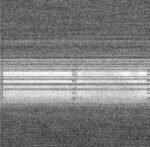
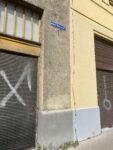
Despite the daytime heat, the nights are cooler. Only the mosquitoes continue to be a pest. There must have been a mass hatching event as there are so many, espcially in the studio. I think that I am now able to tell part the larger black and white striped ‘common’ mosquito from the smaller brown ‘tiger’ mosquito.
With some encouragement, the last of my five scabs 'fell' came off. I pulled at the plastic surgical threads still protruding my my belly button but they wouldn’t budge and later my tummy ached. Once all the wounds are seal, I can swim again. These days, I can mostly move without pain but I am still cautious about twisting or turning too suddenly. I wonder if the doctor will find adhesions when I have my check-up in two weeks. The thin red scars look small on the surface but feel bulbous beneath the skin. In the evening, S from the hospital, WhatsApp'ed me to say that her endometriosis had already returned. The news is disturbing. She already has a new cyst! So, soon? “No one could have known,” she writes.
2024-09-04 10:55:07
Sasha Engelmann
Hackney Downs, London, United Kingdom
United Kingdom
NOAA-19
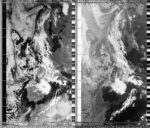
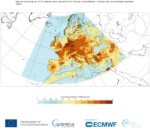
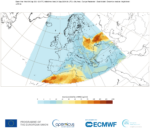
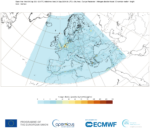
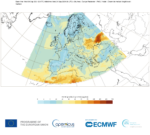
"We need to understand weather to understand where and how toxic air is held closer to peoples' lungs" - this is a statement that I wrote years ago as part of a grant application. Today I wondered: how much do I understand about the inter-implicancies of weather and air pollution, at least in the region where I live? I deep-dived into the Copernicus Programme's Atmosphere Monitoring Service (CAMS) and the freely available air quality forecast plots available at the link below. Out of the four plots I studied most closely - for Dust, PM10, NO2 and Ammonia - I was most surprised by the Ammonia plot, which shows the vast majority of continental Europe covered in what looks like a toxic orange cloud. Ammonia is less publicised as an air pollutant in the media- we more often hear about 'Saharan Dust' or 'Nitrogen dioxide' or 'Ozone'. Yet I learned that ammonia leaks from agricultural practices, livestock waste, and the use of synthetic fertilisers. Moreover it combines in the atmosphere with sulphates and nitrates to form secondary fine particulate matter (PM2.5) which can enter the bloodstream of breathing bodies due to its very small size. Ammonia and PM2.5 are clearly too small or fine to 'show up' in satellite images like those of NOAA-19, but I learned that newly launched satellites, like NASA's PACE satellite, are intended to fill in the gap in knowledge around what aerosols actually do in the atmosphere. For example, according to climate scientist and modeller Gavin Schmidt we don't yet understand how a change in regulatory policy affecting ship fuel (mandating a move away from sulfur-based fuels toward 'cleaner' options) might have had on the climate in 2023. Sulfur can combine with other molecules in the atmosphere to reflect light and change the density of clouds, therefore possibly having a cooling effect, so moving away from such fuel sources is speculated to have had warming effects. The implications of such vast changes in fuel use for the types of aerosols in the atmosphere are immense, and yet it is hard to scale up from particulate to cloud or weather. I studied the satellite image I captured today and wondered about whether dust, perhaps, was blurring the borders of land and sea...
Source: https://tinyurl.com/4xcpkaxx
2024-09-04 11:07:28
Melody Matin
Toronto (High Park), Canada
Canada
NOAA-19


I'm having a harder time these days tracking the satellites as they pass overhead. With one small movement I can lose a good signal. But I try to stay positive as I redirect the antenna to find the signal again.
2024-09-03 11:19:32
Melody Matin
Toronto, Canada
Canada
NOAA-19

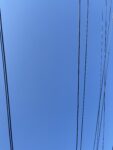
It's one of those September days where the air is cool in the shade and hot in the sun. After a few days of struggling to get good signal, it was encouraging when I heard those very clear ticks and beeps. I did this capture in my backyard with just a short view of the sky.
2024-09-03 11:08:44
Sasha Engelmann
Hackney Downs, London, United Kingdom
United Kingdom
NOAA-19
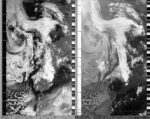
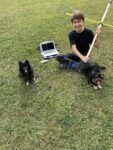
"Muffin man!" "Moonpie!" I heard in the distance as a black ball of fur careened into the side of my body and I was greeted by the happy face of a small pomeranian mix who promptly sat down against my leg. The wobble of my radio antenna probably registered in the satellite image I was capturing but the company was more than worth it! Muffin Man followed Moonpie, as well as another dog called Star, and I was soon surrounded by small joyful dog energy. I learned that Star was being fostered after having been rescued from perilous conditions, and would soon be given to a family for care and a home. Our conversation attracted another dog owner who came over to get information on a recent incident where an off-collar dog attacked another dog in the park. For some minutes, rumours circulated about who the attacking dog belonged to and what had happened, with speculation that the owner might even have been sent to prison. The moral of the encounter seemed to be that dogs are capable of anything, no matter how cute and lovable they are- yet no matter how hard I looked at Moonpie, I just couldn't imagine him being scary. In the swirl of activity, dog-cuddling and conversation, the satellite passed overhead and crested the southern horizon, and I packed without so much attention to the semi-clouded sky.
2024-09-02 21:03:00
Prototype Automatic Ground Station 2
Vienna, Austria
Austria
NOAA-19
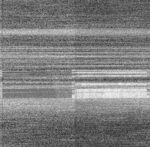
There are so many mosquitos in the studio! They bite you even when you are wearing buy spray.
2024-07-02 21:32:41
Soph Dyer
Sarajevo, Bosnia and Herzegovina
Bosnia and Herzegovina
NOAA-19

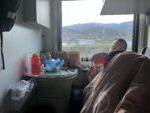
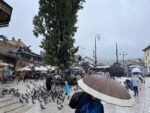
It's been raining. I wait for the weather to clear and capture the satellite's transmission in the dark next to Kovači Cemetery. The low stone wall I am sitting on is cold and damp. The cobbled road near me is empty but at its end, where it opens onto a broader street, people gather at the entrance to a mosque. Uneasy about the location, chosen without knowledge of the city because of it is the closest open space to where we are staying, I attempt blend with the night.
2024-07-09 10:12:00
Soph Dyer
Duboka, Vis, Croatia
Croatia
NOAA-19

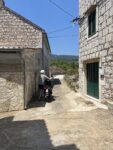
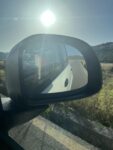
Woke surprised by hot the apartment already was. As I set up my antenna on the track leading into the village, an older man and woman came out of their house to offer me local produce. Sweating, declined in stilted English. Perhaps I sounded Spanish as the conversation turned into an exchange of "Mucho calor!"
2024-07-04 21:05:37
Soph Dyer
Miholjače, Bosnia and Herzegovina
Bosnia and Herzegovina
NOAA-19
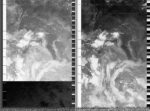
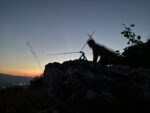
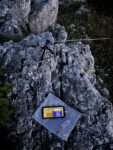
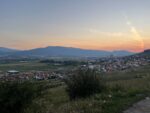
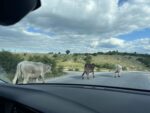
Two fire flies flash. I watch the coal mine and power plant on the plateaux, my radio antenna balanced on a rock above the road. A hazy red sunset bleeds out into darkness. On a walk this afternoon, the owner of the guest house pointed to the where an underground river was being rerouted to accommodate industry. His tone seemed to express a mixture of depression and despair. He did not mention the coal power station, which is not visible from the house. Now I see it, I imagine it thirstily drinking the river.
2024-07-03 21:19:36
Soph Dyer
Sarajevo, Bosnia and Herzegovina
Bosnia and Herzegovina
NOAA-19

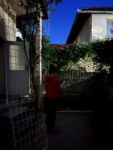
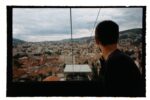
I am stood in the backyard of our host's house. Deep greens and reds of a flowering vine frame the midnight blue sky. Today, N and I visited the Museum of Crimes Against Humanity and Genocide, and then rode a cable car built for the 1984 Winter Olympics to a hilltop overlooking the city. In the evening, we walking along the Miljacka River to the book store 'Buybook Sarajevo' we stumbled on the opening of the BOOKSTAN literature festival. Before we realise that there is a festival, the crowd gathered out side felt familiar. Enjoying the atmosphere, we purchased two white wines and sat on a park bench. As N is at the bar buying a second round, I complement the small dog of an elegant older woman. She tells me that she is a translator of an English language book about the siege written by an author living in the United States. She is here to meet the author, she tells me, and will not stay for the festival as she is already looking forward to returning to her home in the countryside. When I later search for the festival programme online, I find its tagline: “A literary festival where there is neither East nor West, but just humans and their stories”. This evening my memories of working on war crimes investigations in Syria, Iraq and Ukraine, mingle with the stories of survivors from the museum displays. As we were entering the last room of the museum, I thought I could hear a video. There was no video, instead an older woman and man speaking in Bosnian. They looked distressed, I think the woman was crying. The couple were being interviewed by a small film crew. The walls of the yard block my view of the Sarajevo below, yet I know that the city I arrived in three days looks different.
2024-07-10 11:46:31
Soph Dyer
Duboka, Vis, Croatia
Croatia
NOAA-19

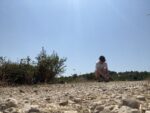
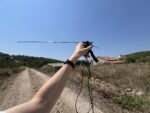
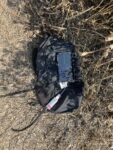
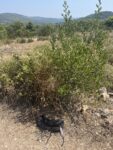
Intense heat stops me thinking. I sweat into my teeshirt and instantly regret exposing myself to the unforgiving sun. "Tomorrow", I note to myself, "wait until nightfall".
2024-08-29 10:37:08
Melody Matin
Toronto (High Park), Canada
Canada
NOAA-19
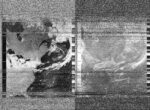
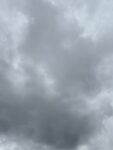
2024-08-28 10:53:24
Melody Matin
Toronto (High Park), Canada
Canada
NOAA-19

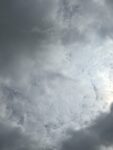
2024-08-29 10:31:59
Sasha Engelmann
Hackney Downs, London, United Kingdom
United Kingdom
NOAA-19
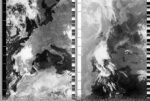
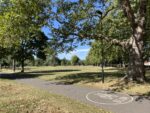
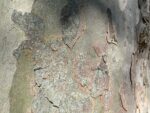
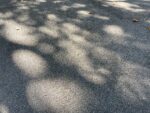
Today I am presenting in a panel on 'Open Geographies' at the Royal Geographical Society annual conference. I plan to speak briefly about the 'openness' in open-weather. For me, in addition to 'un black-boxing technology' or 'visceralising data' (d'Ignazio and Klein, 2020), the openness in open-weather may be about different dimensions of the ‘commons’. The late queer theorist Lauren Berlant describes a world that is, “intimately touching from near and far and therefore changing what proximity does” (Berlant, 2022: 99). I want to suggest that ‘the common of contact’ between a ground station operator and a satellite is both ‘intimate’ and ‘changing what proximity does’. Figuring this ‘common of contact’ leads to alternative and perhaps more thoroughly open readings of environment-sensing infrastructures and commons. It demonstrates how the effort of holding an antenna to the sky is built on a form of sociality and even desire, manifested in the collecting and caring-for of images otherwise considered faulty. Yet, lest I create a romantic picture of desiring bodies and machines - there is ample boredom, frustration and ambivalence too. Through repeated, modest, noisy contact with the technologies of earth observation, open-weather helps me envision a progressive politics of openness, one built on, in the words of Berlant, “affective infrastructures that admit the work of desire and the work of ambivalence as tactics of communing” (Berlant, 2022: 116).
2024-08-28 10:46:50
Sasha Engelmann
Hackney Downs, London, United Kingdom
United Kingdom
NOAA-19

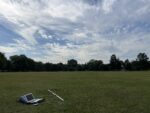
Today the air is still - not so much as a small gust as I orient my Yagi antenna from north to south, tracking NOAA-19. The sky is veiled with light cloud and contrails, and things feel grounded, heavy but not placid. Indeed I feel so unusually calm that I don't leave the house until the satellite pass is actually starting, meaning I am six minutes late to press 'record'. A man is driving around the park with a large tank of water on the back of a truck, watering trees. This feels like such a benevolent and kind thing to do, though I am sure water must be rationed as the trees are turning yellow-brown far too early. As he drives by me, he smiles and gives me a thumbs up from the car window.
2024-08-23 11:04:44
Sasha Engelmann
Belvedere Trabucco in Lignano Sabbiadoro, Italy
Italy
NOAA-19
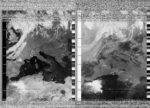
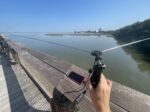
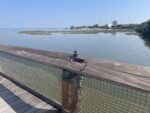
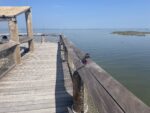
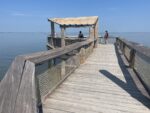
When I arrived at the Belvedere Trabucco - a wooden pier facing the lagoon north of Ligano Sabbiadoro - I discovered it was full of fishing poles. Some older men and a few teenagers were monitoring the poles and their long, taught fishing lines. One young person re-attached the lure on their line - it looked like a spider or dragonfly. Fixing my radio antenna to the edge of the wooden railing, I fished for signals. The sound of NOAA-19 emerged soon after, and gained in strength quickly, as there was almost nothing between me and the Northern horizon except the lagoon and a thin line of land in the distance. In the greenish water below I could see the characteristic clumps of material called 'mucilagine' in Italy. Though mucilagine has been known for hundreds of years and is caused by a non-toxic microalgae, Gonyaulax, it has increased in quantity with rising Adriatic sea temperatures and it poses a growing problem to small fishing boats and businesses. Apparently, some hotels along the Italian coastline are even sending 'mucilagine weather reports' to tourists and travellers who want updated, semi real-time information on the spread of mucilagine in seawater before arriving at the beach.
2024-08-21 22:03:26
Melody Matin
Toronto (High Park), Canada
Canada
NOAA-19
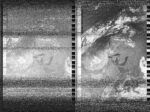
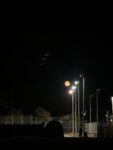

Went for an evening capture today. I was different and super fun! The park was very quiet, and only lit with street lamps. The air was chilly and the sky was clear, I could see some stars and the moon was huge.
2024-08-17 10:39:33
Sasha Engelmann
Zaraće, village of Gdinj, island Hvar, Croatia
Croatia
NOAA-19

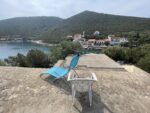
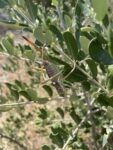
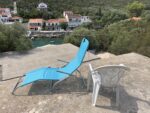
A thin veil hung over the bay this morning, making the sunlight a little bit weaker and more silvery. Me and T had slept in after a hot and sweaty night during which both of us sat up awake at 3am. I squeezed between the bunk beds and tiptoed outside with my radio antenna before any coffee was brewed. As I suspected, leaving out the extension cable meant that I could receive the pass easily and clearly from the rooftop terrace. I hooked the antenna tripod on the edge of a plastic beach chair and held the android phone on my lap, watching the patterns of the mid-morning current in the bay. By the time I was done, I could see the grills starting to smoke to the left and across the water, preparation for a fish lunch.
2024-08-18 21:56:16
Soph Dyer
Lacknergasse, Wien, Austria
Austria
NOAA-19

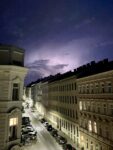
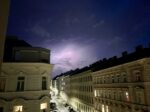
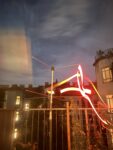
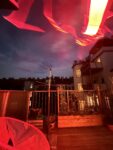
There was a big electrical storm this evening. Bolts of lightening flashed between clouds for hours. As I have spent most of my time indoors over the last two weeks, so to witness this weather event, even from the window, was exhilarating. My recovery from the surgery has been uneven and absolutely nonlinear. I have moments of pure joy, such as when I woke from a nap feeling completely rested, my mind loose but still. But by the afternoon, I miss physical exercise and social contact. I know that I need to ride out this turbulence. Or rather ride with it.
NOTE: I received the satellite image after the storm had passed and the stars were out.
2024-07-18 21:38:15
Soph Dyer
Diepoldplatz, Wien, Austria
Austria
NOAA-19
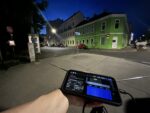
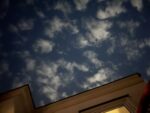
A soupy night. Warm and still. Older men on park benches smoke and watched as I point my antenna. My phone crashes multiple times. I focus on the long beans handing from the tree in front of me. The last kids of the day shouted in the park, two whizz around on scooters with LED lights in their wheels. I try to ignore the men’s gaze and relax into the warmth of the night.
2024-07-17 21:51:08
Soph Dyer
Lacknergasse, Wien, Austria
Austria
NOAA-19
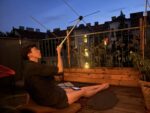
Mottled cloud mellowed the sun and a breeze prevented the air from feeling too close. On the balcony it is dark, grasshoppers sing. The tomatoes are recovering from a lack of water while N and I were on holiday. The crop is about on third ripe. Despite the stress of returning to medical admin and heavy weather between me and N, it’s been a good first day back at work. Sasha and I spoke for more than three hours. The feeling of pressure on my chest is easing. I will make the most of the cool night and sleep early.
2024-08-12 21:29:05
Sasha Engelmann
Zaraće, village of Gdinj, island Hvar, Croatia
Croatia
NOAA-19

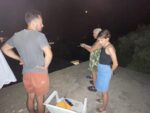
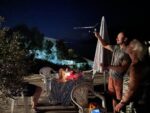
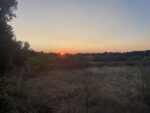
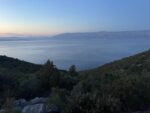
As I set up my ground station on the edge of the concrete terrace at my Mom’s house in Zaraće (a small bay in the village of Gdinj, island Hvar, Croatia) I could feel the concrete emanating heat accumulated over the day. The prior evening a small group of us (friends and family) had ventured out to the warm rocks at night to watch for the Perseids - and we saw several meteors, sometimes so numerous they seemed to speak to each other in the sky. One very powerful meteor passed from 90 degrees above us in a long orange streak to the horizon. Gdinj (and Zaraće) is an origin point for my family - one that stretches back for generations on my mother’s side, through the Čurin family who settled in Gdinj, grew lavendar, cultivated olive trees for oil, and fished in the sea. I remember my Deda (grandfather) waking up at dawn to collect the fish of the day from nets that had been laid out by hand the evening before. It wasn't so long ago that the only way to travel from Gdinj, on the top of the island, to Zaraće at the sea, was by mule or donkey along a narrow dirt path. It wasn't so long ago (only last summer) that I came to Gdinj for my Baba Albina's funeral, an event that drew the whole village, and with people driving from as far away as Belgrade. In the local cemetary, mom and I each read a small passage, and my Mom also read a poem by Vesna Parun. It is always intense for me to be (back) here. I want to forget about the practicalities of life - how to get clean water (the water 'cisterns' aren't always the safest to drink from), how to get food, who to go for ‘kavu’ (coffee) with. I want to just lie without a towel or goggles or rock-shoes on the pale, jagged, karst rocks and stare at the sea. Indeed I have spent so many of my summers doing exactly this, I wonder if my small bones are laced with limestone, seawater, algae, olive, lavender.
2024-07-15 22:12:09
Soph Dyer
Perković Railway Station, Croatia
Croatia
NOAA-19
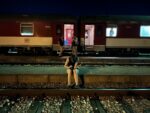
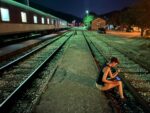
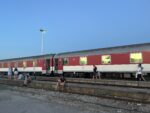
"I wonder if climate change can be measured in hot tracks?" you reply in response to my photo. N and I are waiting with perhaps a hundred other passengers at a small railway station outside Split. The reason, we are told by a cheery Austrian train guard, is that the railway tracks are too hot for the train to proceed. We must wait for them to cool. It is more of a novelty than an inconvenience to be stranded in the warm night with strangers. Assured by the guard that the train will not leave anytime soon, I made a dash to a local store to buy extra water and two ice creams. The small shop is filled with fellow passengers. The atmosphere is convivial if a little restless as we wait for the shop attendant to finish slicing ham for a local customer. I return feeling victorious, carrying the ice creams, the train has not left and will not leave another two hours.
2024-08-19 11:01:31
Melody Matin
Toronto (High Park), Canada
Canada
NOAA-19
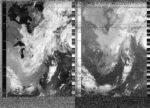
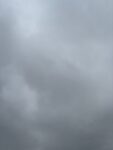
temperatures dropped today, the air was mild but the wind was super chilly.
2024-08-18 11:14:47
Melody Matin
Toronto (High Park), Canada
Canada
NOAA-19
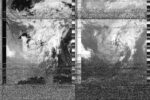
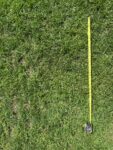
It was a really sticky and humid morning in Toronto. My partner (Rory) and I cycled to High Park to capture two back to back satellites. I suspect I am getting disoriented halfway through my captures so we marked north and south with a tape measure so I could follow it without having to check my phone's compass. Fuelled on just coffee this morning, we enjoyed the sunshine in between satellite passes.
2024-08-14 21:07:30
Marcin Jasiukowicz
Iława, Poland
Poland
NOAA-19

2024-08-06 19:00:00
Prototype Automatic Ground Station 2
Vienna, Austria
Austria
NOAA-19

There was no satellite recording today because N was still troubleshooting the prototype ground station, so a bending of time, this recording is from tomorrow, the day of my operation. As I write this, I am waiting for the 'big day'. It’s raining, I can hear but not see the water cascade onto the hard facade the 1970s hospital building as the long curtains in my room are closed. Possibly for privacy or, I speculate, because the my roommate left for the operating theatre this morning when it was still dark. Either way the yellow glow of the artificial lights makes me groggy before anyone has even laid a finger on my body. A nurse searches for the word in English, “I will tie the bandage tight so as to stop a …. hema-toma." "Your vein opened too wide," she explains. "God", I say, "that sounds bad!" She reassures me, then sticks a cannula above my wrist where there seems too little flesh between skin and bone to cushion its intrusion. It stings. I watch my blood back flow into the two plastic tiny tubes. “I think that I’m going to throw up,” I say as a nurse announces lunch. I am given a cardboard bowl to throw up in and a tray with a clear soup, asparagus, rice, lettuce leaves, and a yogurt. I skip the yogurt and throwing up, and decide that I need sunlight. Opening the long curtains brings into view a drab but solid looking Altbau opposite. The rest of the day passes with time suspended between boredom, anxiety and grief, the sources of which I guess but chose not to give shape to with words.
Satellite not known.
2024-05-31 10:32:35
Sasha Engelmann
Burgess Park, London, United Kingdom
United Kingdom
NOAA-19

Today I am striking in solidarity with Palestine together with other UK-based practitioners and organisations. The strike is organised by Mosaic Rooms and Migrants in Culture, specifically calling for groups and individuals engaged in cultural work to withold labour today, May 31st. My academic work as a cultural geographer is part of the cultural milieu in the UK, as I publish open access articles related to artworks, artistic collaborations and networks. Though open-weather is a fragmentary, precariously funded cultural project, it does participate in the cultural sphere. In lieu of a long-winded 'weather note' or working on a new academic article, I am spending the day doing the following:
- Building an open access resource library on Palestine Geographies
- Emailing my union on moving forward a public statement on Palestine
- Engaging with and applying resources on university action by University and College Workers for Palestine
2024-07-26 19:58:20
Marlene Wagner and Soph Dyer
Seestadt, Wien, Austria
Austria
NOAA-19

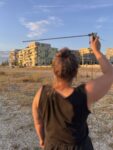
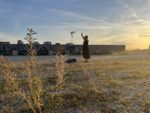
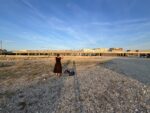
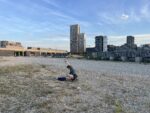
Warm wind, residual heat. U-Bahn, aeroplanes, kids on the beach, gravel under our feet. Long shadows where the city meets the landscape.
2024-07-26 10:48:57
Sasha Engelmann
Hackney Downs, London, United Kingdom
United Kingdom
NOAA-19
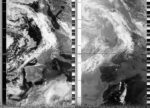
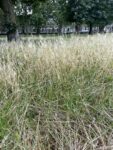
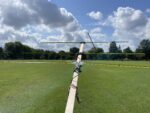
After another colder, misty and rainy day yesterday, and intermittent dark and gloomy clouds this week, it is a relief once again to feel some sun. The air is relatively calm, and a high altitude cirrus or haze makes the light a bit silvery. The ground is still moist in places, though elsewhere the grass has dried and turned a light beige. As I walked down the steps of my and T's house, a man on a bike, whose name I later learned is Duane, did a double take, then stopped and said he had seen me many times in Hackney Downs, and wanted to know about my Yagi antenna. We chatted briefly and, though he had to go toward Clapton, he said the next time he saw me in the Downs, he would come over and see what I was doing. We shook hands twice before parting. As I was leaving the Downs after the pass about twenty minutes later, an older man called out to me. He said he lived close to Hackney Downs and had seen me many times with the antenna, and now wanted an explanation. I showed the satellite image I had just live-decoded and he mentioned his own work as an artist. As his hands were trembling, he asked me to type in the open-weather website to the Notes on his phone.
2024-07-24 10:38:20
Soph Dyer
Danube Canal, Wien, Austria
Austria
NOAA-19
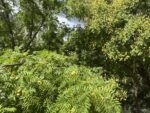
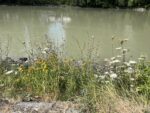
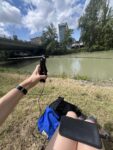
The sun went in and out flooding the lush foliage in a dramatic yellow light. I had run out of time to reach the park, so carried my bike down a flight of steps to the bank of the Danube Canal. To my right two, trees that I did not recognise bore seeds and globe shaped fruit. The uncut grass next to the water's edge was flush with wild flowers. Up stream, almost under a road bridge, a woman wearing a hippy paisley print vest was collecting something from the bank, slowly filling two plastic shopping bags. I assembled the antenna unhurried with the knowledge that in my sunken position the satellite would take need to be almost overhead before I could receive it. It's transmission arrived earlier than I expected but my phone crashed, corrupting the file and forcing me to restart the recording. Once done, I sat on the bank, listening to the satellite's rhythmic presence and enjoying the cool winds and waters of the Danube.
2024-07-22 11:37:21
Sasha Engelmann
Hackney Downs, London, United Kingdom
United Kingdom
NOAA-19

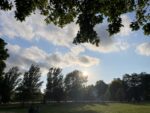
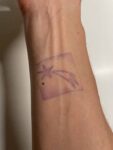
It is very windy today - the kind of surprising wind that gusts and blows in corridors. It was a struggle with my Yagi antenna, as it catches the air so easily, and at several points almost took me sideways with it. The tape measure joints swung at odd angles from the wood stick. An older woman and a small, white, curly haired dog were meandering nearby and I waved to say hi. We ended up speaking for most of the satellite pass. After considering my antenna for a few minutes she said: "the satisfaction... it gives satisfaction" and then "it's contact". I completely agreed.
2024-07-20 21:11:38
Soph Dyer
Postsportverein, Wien, Austria
Austria
NOAA-19
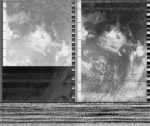
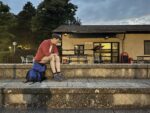
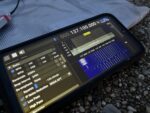
A welcome overcast day with light rain. Inexplicably, I heard air traffic control on the same frequency as the satellite NOAA-19. I was sitting on the concrete bleachers of the local sports ground, beneath a GSM mast for mobile (cellular) phones, but I cannot think think that could have had an effect. The transmission seemed too strong to be a harmonic. Decreasing the bandwidth to exclude the noise worked well. I feel lethargic.
2024-07-17 10:58:28
Sasha Engelmann
Founder's Field, Royal Holloway University of London, United Kingdom
United Kingdom
NOAA-19
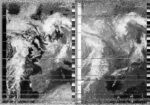
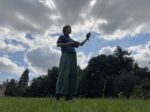
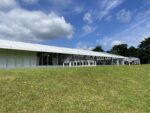
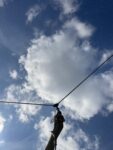
In the field that has been turned in to a parking lot for university graduation services, I link up my v-dipole, dongle and android. A maintenance man or security guard sitting in a blue van looks on with a bemused expression, but mostly he ignores me and talks on the phone. The air is warm for the first time in weeks and it is such a relief from the cold, rainy, at times torrential rain we have had in the U.K. Later in the afternoon I show my satellite image to SB, a physical geographer who specialises in studying past climates through tephra (volcanic ash). He points to the wavy line of the increasingly wobbly jet stream and explains how, with the poles warming faster than the equator, the difference in temperature and pressure that stabilises weather and holds the jet stream north is decreasing, causing the jet stream to curve and bend south more and more, bringing moisture laden air from the Atlantic to Northern Europe - this describes our recent weather experiences. Now that I’ve seen the curve of the jet stream with SB’s help I want to look back to all of the past imagery and try to spot it. Meanwhile, he says, ‘anywhere below 40 degrees (latitude) is burning’. Soph is just back from holiday and describes a level of heat in Croatia over the last week that was at the limit of their physical health. It doesn’t take much for heat to stress London- on my tube journey home, the air is so stifling that people are visibly haggard, some using makeshift fans and others flushed read and eyes closed, waiting for their train.
2024-07-12 10:20:14
Sasha Engelmann
Hackney Downs Funfair, London, United Kingdom
United Kingdom
NOAA-19
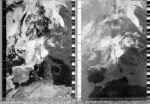
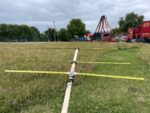
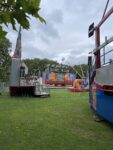
Low-pressing grey again. A feeling of melancholy. I'm missing Soph's presence on zoom calls and text channels. I go searching for the funfair in the northwest corner of the park. It has not yet been activated, but I can see people walking around inside, checking and testing things. I capture a satellite image with my Yagi antenna and Android phone, kneeling in the yellow grass. After the pass, I circle the perimeter of the fair, and notice that there is a line of trailer vans and mobile homes on the far side, facing the overground train tracks. Laundry is flung on the metal fence that divides the funfair from the park, or on small drying racks set up outside semi-ajar car doors. I hear a man speaking at an elevated volume on the phone. He says something like 'I thought I had 2 points! where are my points!' I realise, then, that the funfair is an entirely mobile operation: all the big machines are transported on two very large, glossy red trucks, but the real 'infrastructure' are the staff who likely follow in their vans and mobile homes. I wonder how many places they go. As I walk back to Downs Road I pass a couple walking their greyhound. As I pass I can hear the woman say to her partner 'Oh yes that's the lady with the...'
2024-07-10 12:25:14
Sasha Engelmann
Hackney Downs, London, United Kingdom
United Kingdom
NOAA-19
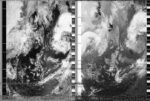
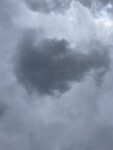
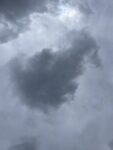
It is a grey, energy-less, dark-clouded day. My thoughts, however, are with the pale blue skies, swift winds and coastal swamplands of Buenos Aires as I re-read my field notes written during the month of fieldwork I carried out there last spring. As I make my way through my fast cursive handwriting, sometimes having to puzzle at words, I remember how breathlessly I wrote these notes, trying to record and remember everything. It mostly works. As I close-read, I am transported visually and sensually to Villa Inflamable, the community close to the centre of Buenos Aires that is the site of the research I am doing with a team of collaborators in Argentina. My colleague / friend Joaquin had taken me to VI after a morning spent on the rooftop of my other collaborator, Debora, eating pancakes and experimenting with radio antennas. There was not a speck or glimmer of cloud in the sky- and it was a wide open horizon. It took Joaquin and I only 12 minutes to drive from Debora's house to VI. My field notes read: "We arrived in the midst of heavy vehicle traffic - large tank trucks, mostly with Shell on them, entering and leaving the petrochemical facility. We passed to the right of a large sand dune - a sand production facility- there were thick clouds of dust in the air". From the open clarity of Debora's rooftop, it was a different experience being on the ground in VI. We walked around the neighbourhood with Claudio Espinola, a long-term activist and organiser in the community who also helps to ration water to families (the 'running' water is undrinkable, so families get a number of bottles of water per week). VI, like much of Buenos Aires, is on marshland, and we passed many pools of water and algae-covered ponds. The streets had been recently paved, but this had caused water-runoff problems and a man in a car told us he would prefer the dirt road if the sewage would not flood the streets. Later, as Joaquin and I left Claudia and made our way to an air quality monitoring station not far from the community, "We passed a plant that Joaquin suspects is where they began burning medical waste during the pandemic. It looked very old and dilapidated. Joaquin suspects that environmental regulations were relaxed during the pandemic to enable the repurposing of these kinds of incinerators. We also passed a smaller river - maybe 20m wide - that looked like slow-moving cement. There was on oil slick on top. Claudia had compared the river to cement too". I thought about who made the decision to start burning medical waste in an out-of-order incinerator in an already impoverished and environmentally stressed community like VI. I thought about what it takes to turn a river into cement. I also thought about the divergences in the experiences of people in this community and those only a few blocks away, somewhat sheltered from the 'weather' of the petrochemical facility. I thought about the 'weather' of Villa Inflamable, the weather of flammable. In a recent article on perceptions of air in Mumbai, two scholars write: "For the state, flammability is the result of the residents themselves. It is them, and their forms of work, that create fire risks, and so it is they who need to be removed. Residents, on the other hand, attribute causality to the gases that the garbage ecology itself produces. They are acutely aware of how the state has aligned blame in an opportunistic way with them rather than the material hazards of place, poverty and labor" (Tripathy and McFarlane, 2022: 12). From my fieldnotes alone (and without any experience of living in VI) the causality of the environmental toxicity in the neighbourhood is shockingly clear, yet my colleague Debora has written extensively of the 'labour of confusion' produced when residents of VI are told their environment isn't so toxic, or that nothing can be done about it. This is about perception indeed, and it is about whose perceptions are taken to mean 'truth' or 'causality' and whose are seen to trouble the order of things. I spend most of the day co-writing a draft chapter with Debora, returning in my memory to VI, trying to articulate in words the causalities and breathing relations at work there.
2024-07-08 12:50:43
Sasha Engelmann
Ferry from Ryde to Portsmouth, The Solent Channel, United Kingdom
United Kingdom
NOAA-19

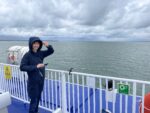
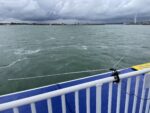
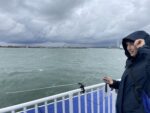
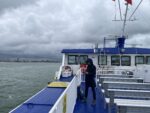
We made the 12:45 ferry to Portsmouth with one minute to spare, and opted for the 'sun deck' despite the total absence of sunlight. The deck felt more inviting than the humid, dark interior of the boat with airplane-like seats and sullen-looking people. We ate cheese and pickle sandwiches that neither of us liked very much. A NOAA-19 pass began just three minutes after the boat's departure. Though the maximum elevation was only 18 degrees to the west, I decided to try anyway, having never received a satellite image while moving in water! It worked far better than anticipated- I curled the legs of the V dipole antenna tripod around the metal railing, and a few minutes later the signal was ringing-in clearly. I wondered how my trajectory on the boat was affecting the image reception, if at all. A young man who had also come up to the deck asked if he could take a photo of me with his analogue film camera. He had travelled to the Isle of Wight for the weekend to 'see the stars'. Yet he also admitted to being 'very out of it' and having had 'little sleep'. He lamented the rise of Starlink and the other ways we are 'ruining the planet', and didn't say much more. When we approached the port, the clearly audible signal of NOAA-19 cut out sharply for a few seconds, so much so that I briefly wondered whether the satellite had stopped transmitting or glitched for these seconds. My experience of noise is normally a little 'softer', more like a gradient than a cut.
2024-07-04 10:18:03
Sasha Engelmann
Hackney Downs, London, United Kingdom
United Kingdom
NOAA-19
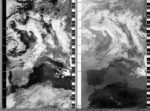
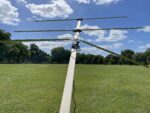
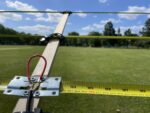
Finally the grey has passed and a crisp wind has blown away most of the low-hanging, misty clouds. The air has a sharp chill, but one that will fade soon, I suspect. I am reminded of Derek Jarman's weather note on June 4th 1989 (from his diaristic book Modern Nature) which, though clearly of another time, place and month, describes today's weather perfectly: "The billowing white flowers along the shore are gone; but the mountainous white clouds in the blue sky and the horses breaking across a silvery sea cheer their memory to the echo. Today wind and sunlight fill the landscape with laughter. An old window opened in the wind and sent the cobwebs flying. The grasses are clapping - even the seagulls loop the loop".
2024-07-03 10:29:29
Sasha Engelmann
Hackney Downs, London, United Kingdom
United Kingdom
NOAA-19
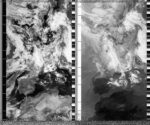
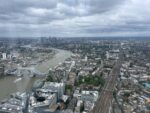
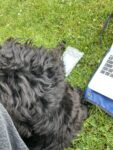
It is another grey, misty and cold-ish day in London. I spend the morning working and take a brief break to capture a satellite image. A curly haired black dog tackles me and rolls around on my laptop as I am mid-pass. His owner looks mortified but as soon as I say it's not a big deal he becomes interested in my antenna, and it turns out he used to be an engineer, working with Radar. We don't speak long. Later in the afternoon, I see the weather from the seventieth floor of the Shard (a sneaky birthday-week adventure with T, who has wanted to go to the top of the Shard for years but is always too anxious of the elevators). We rise sixty floors in what feels like five seconds, our ears popping. At the top, T and I carefully approach the knife-edge, holding on to the metal beams for reassurance. After a few minutes, though, we have our foreheads pressed against the glass gazing in every direction. A stranger offers to take photos of us. Though the view might be more stunning on a sunny day, the changeable clouds and shifting rain are spectacular, and we try to time how long a rainy cloud takes to pass over London. It sort of dissolves rather than making it the whole way. There are only a few other people, and so plenty of space to circle all edges and study all perspectives. Descending, we go on a hunt for an ivy-coloured wall on an old building at Kings College that we could see hidden a few blocks away from St Thomas' street. Once we find the wall, we spend a few minutes admiring the density of the ivy, its even spread and growth over red brick, nearly engulfing the entire building.
2024-07-02 10:41:06
Sasha Engelmann
Hackney Downs, London, United Kingdom
United Kingdom
NOAA-19
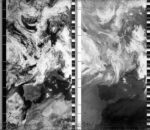
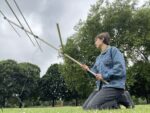
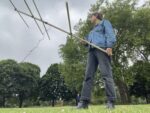
The day starts cold, gray and misty. During the satellite pass, I feel chilly in my Mom's flannel-lined denim jacket, jeans and boots. How is this the second of July, I think. In the slow-loading satellite image, the sun glints tantalisingly, catching its own reflection over the Mediterranean. I am wondering where Soph is at the moment, as they left for a two-week holiday on Sunday. I think somewhere in Croatia, soaking up sunrays and salty air. Thinking about it makes my heart hurt, both with happiness that Soph is there on holiday, but also with a feeling of deeply missing the Adriatic and especially the small bay called Zaraca, near the village Gdinj where my Baba grew up on a remote part of the island of Hvar. Is it possible to miss an atmosphere, or a weather pattern? Is it possible to be nostalgic for places, less through their material surfaces and more through their elements? Having spent so many long summers in Zaraca as a child, having climbed the windy road that goes from the bay to the sparsely populated village Gdinj, with its fig trees and olive groves, with its tunnel spiders catching impossible flecks of dew in the dry landscape and epic cumulonimbus clouds dancing over the Karst rock of the mainland, and wtih its slantwise sunlight that remains until the last drop (since the road climbs on a south-facing slope) I feel so entwined with this weather. It is perhaps easy to say on a day like this in London, as I shiver through my trousers in the first week of July. Yet I think there is something beyond the beauty of Hvar and the Adriatic Sea that I am missing so much. Maybe it's a direction I will always turn.
2024-07-01 10:57:13
Sasha Engelmann
Meadow near the Biological Sciences Bee Apiary, Royal Holloway University of London , United Kingdom
United Kingdom
NOAA-19

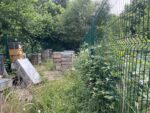
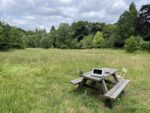
Bees, flies, ladybugs and other insects buzzed around my ground station, located near to the Biological Sciences bee apiary in a meadow on the campus of Royal Holloway. One long-winged fly, looking like a cross between a grasshopper and a moth, landed on my keyboard. Purple-pink cornflowers and daisies bloomed abundantly in the uncut grass. I remembered Jaime Sebastians' story that he had recorded the sound of a NOAA satellite together with the chirping of crickets or cicadas, and he could 'see' the chirrups in the resulting image. I resolved to return to the apiary one day and attempt a recording of both an orbiting satellite and honeybees.
2024-06-27 20:55:10
Soph Dyer
Sitting on the window ledge, Austria
Austria
NOAA-19

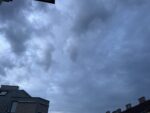
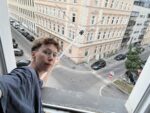
It's a warm evening and the street is loud. Starlings, children, adults shouting, car tyres screeching. The humidity has felt oppressive. As I recorded the image the sky was clouding over. The clouds are dramatic, they look high defintion and high contrast. They are moving quickly. I felt one large drop of rain on my way home, but that's it so far.
2024-06-22 11:03:52
Sasha Engelmann
Hackney Downs, London, United Kingdom
United Kingdom
NOAA-19
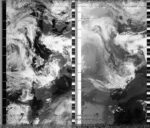
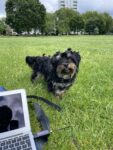
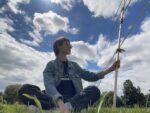
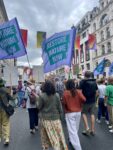
At the Restore Nature Now march in London today, signs read, 'To Bee or Not to Bee', 'Hey Kier OR Rishi! Bee Radical for Nature!', 'UK Arms Sales Destroy Life and Environment', 'Protect Essex Badgers!' 'I Just Really Like Bugs', 'SOIL not OIL', and 'No Justice, No Peas' (accompanied by a drawing of wailing peas). As the march wound South toward Piccadilly Circus, a burst of cheering led my partner and I to cross to the other side of the current of marching bodies, where we found a 'Dyke March' going in the opposite direction on the other side of the road. Their signs read 'Choose Butch. Choose Femme. Choose a Big Fucking Lesbian', 'Lesbianism is not a choice, it is a Blessing!', 'Dykes Against Occupation', 'Whose got a Wand and a Rabbit?', and 'Dykes For Trans Rights!'. Our allegiance to the XR march was seriously challenged! T said 'OMG, there's Stav B!', (legendary artist and performer who used to host underground nights for queer womxn in east London). We barely resisted jumping the street barrier and carried on in the Restore Nature Now crowd. An couple hours later, after meeting one of my old College friends in a pub near the Thames, we found ourselves on the southside of the river at Southbank Centre, where we stumbled upon a stage where people were gathering for a set of acts on the theme 'Queer C*ntry', part of Chaka Khan's curation of Meltdown Festival. There were just as many cowboy hats as dolly parton wigs. Two older men, dressed in matching pinstripe shirts and blue jeans, out-danced many of the gays. A day like this, of so many frequencies, actions, and parallel mobilisations, felt like a kind of litmus test of London, like pulling three colours out of a paintbox. On a day like this, we give our gratitude to this city.
2024-06-18 10:14:12
Sasha Engelmann
Hackney Downs, London, United Kingdom
United Kingdom
NOAA-19
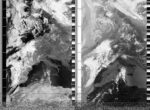
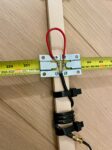
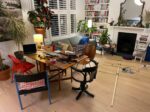
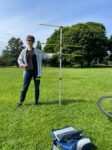
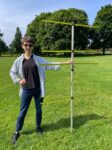
My first pass with a homemade, 'tape measure' Yagi antenna! I followed a design described in a YouTube video by India Rocket Girl, though I cross referenced India Rocket Girl's design with other sources for tape measure antennas and DIY dipoles. I also watched around seven YouTube video tutorials on how to solder wires to each other and to metal surfaces as my soldering skills are incredibly rusty. I lacked many of the components that India Rocket Girl uses, but made do with zip ties and metal brackets that I found at the local hardware store. Instead of PVC pipe, I used a long piece of wood that was intended for house moulding. The tape measure was an old heavy duty one that I had in my electronics box. Last night after dinner I started testing a few things, and before I knew it I was knew deep, spread all over the flat (T was away in Italy). I didn't think I had gotten it right, and I was convinced I would need to re-solder, but when I set up this morning, connected the antenna to my dongle and lifted the giant Yagi off the ground, pointing north, the signal was immediately strong! I tracked the satellite to a maximum elevation of 45 degrees to the East and then down to the Southern horizon. Toward the end of the pass a couple approached me from behind and were almost as excited as I was about the tape measure design and the image of the Mediterranean forming on my screen. Shortly after they left, Martin rode over on his bike and kindly took the photos of me shared here, very grateful for documentation of this DIY moment! More testing to follow soon...
2024-06-16 11:39:50
Sasha Engelmann
Intersection of Rue de Serbie and Rue du Croissant, Brussels, Belgium
Belgium
NOAA-19

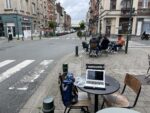
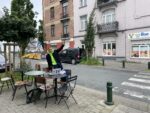
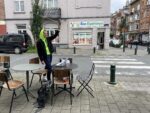
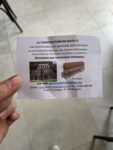
Camped out at a long table at a corner cafe, and feeling quite sleepy after a late night, five of us spoke for hours about our former lives, the legacy of communism in Bulgaria and the Balkans, developments in AI, and the politics of queer spaces. I set up my ground station at a cafe table on the streetcorner and was soon the subject of many looks and glances, though people were more hesitant to approach than the evening before. When Sofie arrived and began expressing enthusiasm about what I was doing and laughing at the situation, a small throng suddenly materialised around the ground station, including a man and a young boy, and an older man who gave me a small paper card that advertised 'La Constructorium Maya': "vise à construire une pyramide astronomique, un centre de démonstration des sciences et techniques, Précolombiennes à San Marcos (Lac Atitlan) au Guatamala". The man also insisted on showing us a photo of the Lake Atitlan, which was a pearl blue surrounded by deep green hills. Yet when I search for the website on the card I find what appears to be a french organisation that researches in the materials of building construction. Ten minutes through the pass, though we were still receiving a surprising signal given the five story surrounding buildings, rain began to cover my laptop and we went back inside. I placed my open laptop upside down on the brunch table so it could dry itself out. The following hours of the afternoon was a grey, dark, rainy mist until the sky suddenly cleared and sun poured out as Sofie and I left a bookshop where we had gone to a beautiful reading of a novel featuring vampires, a gay couple, a theatre festival and a skateboarding evangelist.
2024-06-10 10:09:56
Sasha Engelmann
Hackney Downs, London, United Kingdom
United Kingdom
NOAA-19
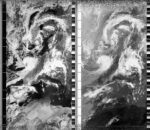
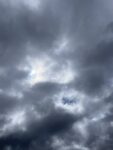
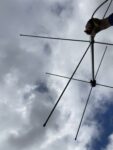
The sunlight comes sideways today. There are low-hanging, grey and dark blue clouds circling above, and I leave the flat for the park a few moments after rain has stopped, feeling daring with my uncovered laptop. A flash of sun comes from the horizon as a gap in the sky opens for a few seconds and closes again. I can tell the moment when the sun has come out for just long enough to lure a whole hoard of dog owners and dogs outside, yet as soon as they reach the field the darkness falls again. I am in the park just long enough to see Martin who rides over on his bike, and we briefly speak about his plans to build a satellite ground station. As I work at my desk for the rest of the day, I am surprised by the slantwise light, searching through the corners of our kitchen and living room, making the whole place seem a little off-kilter, making my admin tasks feel a little surreal. I find myself turning on and off the desk lamp and living room light, unable to find optimal emailing conditions. One clap of thunder booms across the city just after lunchtime, answered by a far away siren.
2024-06-09 12:04:33
Sasha Engelmann
Hackney Downs, London, United Kingdom
United Kingdom
NOAA-19
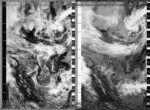
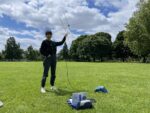
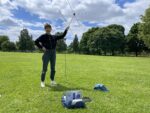
Pockets of deep cerulean blue shown through grey and white cloud this Sunday morning. I stole a few minutes to capture the satellite image before heading out to a local pub for a roast with my partner and one of her ex-partners who is staying with us for the weekend. As the pass was ending, a man named Paul rode over to me on his bike, and asked what I was tracking. He was suprised that the answer was satellites, as he had expected wildlife. After I asked Paul to take a photo of me (two of which are attached, thanks Paul!) he said he could show me a photo of him. The photo was of Paul next to a train with the lettering Dr Paul Stephenson on the side. 'In my dreams!' joked Paul. Later in the day I looked up the train, and found out that Dr Paul Stephenson is a well known civil rights campaigner in the UK who organised the 1960s Bristol bus boycott which overturned a ban on people from ethnic minorities working on buses in the city. Dr Stephenson's campaigns were instrumental in paving the way for the first Race Relations Act in 1965, and in 1992, he also helped set up the Bristol Black Archives Partnership, which protects and promotes the history of African-Caribbean people. Great Western Rail apparently has a programme called the 'Great Westerners' where people can be nominated to have trains named after them, as a mark of respect to contributions to UK society. I had not heard of this practice of dedicating trains, and this made me wonder whether airplanes or satellites are ever dedicated in this way. Soph and I had recently wrote a short text that includes a vignette of a woman who asks to have her name attached to a powerful storm, and it becomes Storm Babette. I had assumed that 'In my dreams' referred to the 'Dr' part of the name, but I realised maybe it was about having your name on infrastructure, or being recognised as a 'great westerner'...
2024-06-07 10:10:13
Soph Dyer
In the moist air of the park, Wien, Austria
Austria
NOAA-19

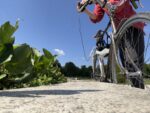
I miss the beginning of the satellite pass, but enjoy sitting in the humid, sun. It’s deceptively warm. The image crop is awkward but perfectly frames the Mediterranean Basin and Black Sea. In the ‘visible channel’ there are few clouds, however the infrared channel reveals of wispy veil of cloud over most of the continent. North Africa is cloudless.
2024-06-03 20:48:20
Soph Dyer
At home, Wien, Austria
Austria
NOAA-19

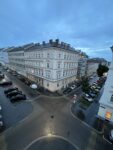
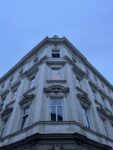
I have skipped two days of weather notes. It’s Monday. Thunder rolls as Sasha and I frequency shift from one open-weather Zoom call after another. First we heard from L and D in Scotland about how the satellite image decoder is up and running, and the redesign of the Public Archive is almost complete! We then spoke to G in Berlin who shared with us the code that he is writing for the automatic satellite ground stations. Together we started to speculate about how the 3D printed casing of the satellite ground stations could be. We imagine the ground station box resting on a bedroom bookshelf or mounted the wall of an art gallery. We tingled with excitement, encouraging each other in the game of visualising the work complete. In between, Sasha and I spoke with J, a curator in Barcelona who is planning an exhibition on the themes of navigation and orientation … let's see. I took some Ibuprofen to avert a migraine and then couldn't stop sneezing. Sasha giggle when, I turned of my camera instead of muting and loudly blew my running nose. As my work day ended, the thunder storm moved overhead. On a call with just Sasha , we draw on our remaining brain power and belief, I shared my proposal for a sounded-based transmission for the Year of Weather project. Inspired by the desire to 'meet people where they are' and by how past feminist alliances such as F.I.R.E. in Costa Rica and Pirate Radio Women in Ireland used radio to share with their community counter narratives and information, the transmission would share our weather notes intermingled with the realtime local weather updates of a meteorology service. A second important reference is the "VOLMET" radio broadcasts that are rolling weather forecasts for aircraft, read out often by highly gendered and increasingly automated female voices. Before hanging up, Sasha and I began to test the proposal and to think through different scenarios. I had planned to squeeze in a hours more work but my brother called and we spoke almost two hours. It rare that we speak for so long on the phone, so the call was special. Lightening seemed to knock of the signal so I move around the flat, searching for a more stable signal, plugging in my phone to different wall sockets.
2024-06-01 21:11:06
Soph Dyer
Sitting on the window ledge, Wien, Austria
Austria
NOAA-19

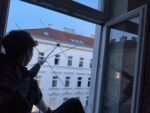
Today hasn’t been easy. The weather is sodden and my mood is low. I almost miss the satellite pass and make a last minute decision to try and receive the transmission from the flat. Sat on the window ledge, precariously positioned over the wet street three stories below, I receive an imperfect image. I am glad.
2024-05-27 20:32:49
Soph Dyer
Sitting on the window ledge, Wien, Austria
Austria
NOAA-19


Humid, blue, warm skies. Tired, achy, loose body. Humid and tried, blue and achy, warm and loose.
There is lightening interference from a storm to my West.
I read the news, not making it more than a few paragraphs. "The Israeli missiles struck tents in an area to the west of Rafah city that was supposed to be safe from attack". "[A]t least eight missiles struck the camp – a designated safe zone – on Sunday night at about 8.45pm local time (17:45 GMT). "Witnesses described charred bodies and flames. A doctor said the majority of the victims he saw were women and children". (The New York Times, 27 May 2024) “'We pulled out people who were in an unbearable state,' Mohammed Abuassa told the Associated Press. 'We pulled out children who were in pieces. We pulled out young and elderly people. The fire in the camp was unreal.'” (Associated Press via The Guardian 27 May 2024)
Judith Butler asks, “Whose lives are regarded as lives worth saving and defending, and whose are not?” They continue: “One way of posing the question of who “we” are in these times of war is by asking whose lives are considered valuable, whose lives are mourned, and whose lives are considered ungrievable… We can see the division of the globe into grievable and ungrievable lives from the perspective of those who wage war in order to defend the lives of certain communities, and to defend them against the lives of others—even if it means taking those latter lives.” (Butler, 2009)
2024-05-27 20:45:48
Soph Dyer
Leaning out of the window, Wien, Austria
Austria
NOAA-19

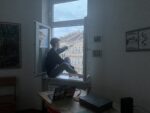
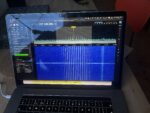
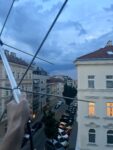
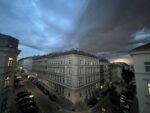
My image contains interference from lightening strikes. I have likely seen lightening interference before, but it a first for me to be able to confirm it. The sky above our house was blue but to the East I could see dark storm clouds. Each time the clouds flashed orange, even though they they were too far for thunder to be audible, I could 'hear' the strikes as bursts of radio noise. I have uploaded a photo of the waterfall display clearly showing a horizontal line of interference from a lightening strike. In the decoded imagery, the lightening is visible as broken lines, not more than a one to two pixels wide. Given the position of NOAA-19, the storm must have been between me and the it. I should note that that last photo of the storm clouds almost overhead was taken more than 10 minutes after I had finished recording and packed away my antenna. Under no circumstances is it wise to point an antenna in the proximity of a storm. I admit that the speed of the storm clouds surprised me. As they approached, a warm wind got up and shook trees on the street below, while I watched neighbours rush to closed windows on flapping curtains. The change in light levels was dramatic too. In less than half an hour, day turned to night.
2024-05-23 21:21:17
Soph Dyer
Friedhof Hernals (Hernals Cemetery), Wien, Austria
Austria
NOAA-19

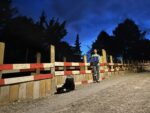
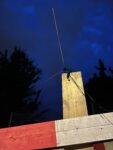
Again, my phone's weather app says that it will rain, but the day turns out fine. I doubt the algorithm's ability to account for the dramatic effect of the Alps on Vienna's weather. There can be huge thunderstorms only a couple hundred kilometres South, and Vienna will be basking in sunshine. My day, too, defies my expectations. I woke early, rough, the swelling in eye gone down but the pain in my side throbbing. Yet work was good and afterwards I cycle to an outdoor pool, then indulged in sushi at a neighbourhood restaurant with N. I received this image from a hilltop cemetery. In the silence afterwards, stood on a path between the flickering of red lamps of graves, I feel time thicken. I am reminded of how Libyan author Hisham Matar, when stood at a cemetery's edge, asks "What is it to remember the dead?" For Matar, "the scale is unfathomable". It is "[d]eath’s endless appetite", he writes. "The deceased outnumber the living by such a scale that the present suddenly seemed to me to be the golden rim of a cloth". (Matar 2019)
2024-05-21 10:58:24
Sasha Engelmann
Brunswick Square Gardens, London, United Kingdom
United Kingdom
NOAA-19

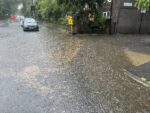
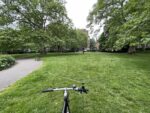
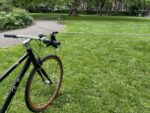
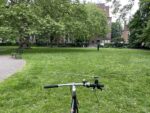
Brunswick Square Gardens was empty this morning except for a circle of exchange students trading stories about English habits of life, and a long-haired older man walking in circles, puffing on a joint and coughing vigorously. Despite the tall brick buildings around the square I was able to capture a relatively clear image of the UK and the middle of the continent. Yet I failed to recognise the impending rain that would baffle all predictions for the day's weather. Later in the afternoon, at a seminar where three of my PhD students were presenting their work while weather brewed above, ideas of the planetary were discussed in relation to sonic geographies. One of my students is building networks of 'live audio streams' as an investigative tool to listen to sites of extraction, and another is listening across great timespans and timelines through conservtion bioacoustics archives, through which scientists trace the changing compositions of species in landscapes, and observe how the memory of sound is intergenerational, held in the bodies of animals (even non vocal animals) in ways that far exceeds individual lifetimes. As I listened quietly, resisting the urge to speak as the rest of the research group asked probing questions, I reflected on the different modes of planetary 'stretching' and 'scaling' being enacted in their work, and the devices they were using, from DIY audio streamers to experimental notation systems. The climate crisis requires us to 'stretch' and 'scale' but sometimes our conceptual frameworks scale unevenly or in unexpected ways. By the time we had celebrated the seminar and had dinner, the brewing weather had arrived, and it was pouring (an event that had not been predicted on any platform I had checked which suggested 35 percent light rain). I cycled home for 40 minutes, at times coasting through rivers of water that came up to my standing knee. Of course I had also worn my nice white trousers. I felt thoroughly stuck in space-time, unable to stretch or extend, each peddle bringing me two metres closer to home.
2024-05-19 22:10:44
Soph Dyer
On the window sill, Hernals, Vienna, Austria
Austria
NOAA-19
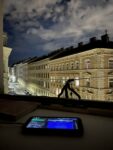
I willed myself to stay awake to capture the transmission, even if I knew that it would likely be more noise than image because of the low elevation of the satellite. I missed yesterday. Another absence in the archive due to another night's sleep lost to discomfort. The weather was better than expected today, so I dragged my body out of the house into the city and into contact with other bodies. I went to a beautifully queer refugee football tournament with M, where we sat in the sun and sweated; a solo swim in the cooling waters of Kongreßbad; to the Kino de France where I sat in the airless dark and watched GUAPO’Y by Peruvian director Sofía Paoli Thorne, my body tensing at the noise of a young guy in the row in front, munching popcorn; and lastly to the warmth of friend's flat for a takeaway curry with her adorable two-year-old. I am particularly excited about my first swim at Kongreßbad. It's incredible outdoor pool complex opened in 1928 during the 'Red Vienna' years, when the Social Democratic Workers' Party of Austria (SDAP) governed the city. Despite my sleeplessness, it has been a full day. I meditate on this and give my thanks as I receive NOAA-19.
2024-05-18 09:51:04
Sasha Engelmann
Hackney Downs, London, United Kingdom
United Kingdom
NOAA-19
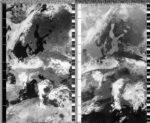
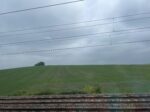
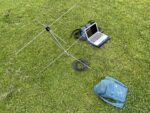
I knew I was out earlier than usual this morning as the fluorescent cones for the children's soccer practice had yet to be distributed across the field, and balls were piled in a corner. The air was grey, and though it wasn't exactly foggy, things felt muted, soft and indistinct. This made me think of Craig Martin's article on fog (one of the first articles I really engaged with in my studies of atmosphere as a young MRes student at Oxford). Fog, for Martin, "is located at the interstices of the incoming and the outgoing: lingering at this juncture, it could be said to determine the immanent connection between body and world" (2011: 456). In other words, fog makes us feel the air as something 'thickening', but in doing so, it demonstrates "a different absorption of time and space" (458), one that counters the 'invisible' and 'transparent' freedom we often associate with air. There is also something resonant between the experience of fog and that of heat. Martin quotes Taussig: "Heat... is a force like color, that sets aside the understanding in place of something less conscious and more overflowing, radiance instead of line, immanence instead of the famous bird's eye view" (Taussig, cited in Martin, 2011: 457). Later in the morning, on a train to Bristol, I decode the satellite image and the cloud-free lakes of Russia come into view once again. I think about the exactness of the image: today it feels full of lines, curves and arcs, land-shapes outlined against the darkness of ocean. Instead I try to feel the 'thickening' of air and fog, and the 'radiance' and 'immanence' of the too-warm land.
2024-05-17 10:03:25
Sasha Engelmann
Hackney Downs, London, United Kingdom
United Kingdom
NOAA-19
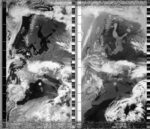
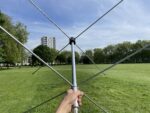
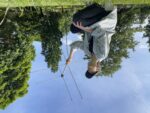
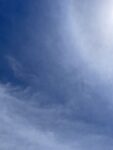

Water and dust: these are the two prominent features in the satellite image I collected today. In the North, Lake Onega and Lake Ladoga are dark prints in the land near the now ice-free Gulf of Bothnia. Northern Europe is unusually cloud-free and seeing these lakes so clearly makes me feel uneasy, as if these waters are 'laid bare' by the sun. Another notable 'body of water' in the satellite image is unmarked on Google maps, but searching further reveals this is the Rybinsk Reservoir built by Russia in 1935. It was the largest man-made body of water at the time of its construction. The reservoir caused 150,000 people to be displaced and over 600 villages were submerged. In contrast, further South, there are other geographies and histories of immersion and displacement. The borders of sea and land are obscured in places by a current of dust making a soft streak from Tunis to the Southern tip of Sicily. News media are alert to this dust in different ways: an online publication called Gloucestershire Live warns readers that a 'scorching' Saharan dust plume is about to 'hit' the UK, and goes so far as to offer advice for how to 'properly clean your car' (hint: 'brushing' is not enough!). In the Swindon Advertiser, Saharan dust will 'sweep' across the UK. Yet in the Metro, these alerts to dust are dismissed with evidence from the Met Office: "their forecasts have no suggestion of a Saharan plume heading our way – good news for our cars which would otherwise end up coated in dust". The car is, once again, the primary surface on which we 'see' dust in European news media, and the object that needs most protection from it. When there are half-hearted gestures to the way dust can affect breathing for 'vulnerable' and 'asthmatic' people, these are rarely gifted the same emotional fervor for protection. There, scattered across the windscreen or front hood, dust speckles and glitters, forming 'galaxies' (as described by Nicola via Soph in an earlier weather note) to be 'properly' and thoroughly removed in the wash.
2024-05-15 21:23:30
Soph Dyer
On the balcony, Wien, Austria
Austria
NOAA-19

Apparenly poets and shopping centre security guards can be assassins too. The media are reporting that there has been an assasination attempt on the incoming Prime Minister of Slovakia. The location is a few hundred kilometres from Vienna. News feeds identify the assassin not by name but by his profession: shopping centre security guard and poet. Poignantly, NOAA-19 passed between Vienna and Bratislava. I am certain that saw the satellite. I had set an alarm on my phone for the satellite pass but when it rang I had just drained a pan of boiled asparagus, so I gave into to hunger and ate dinner. After finishing, I ran outside to catch the second half of the pass. I used the new cable Sasha has sent me. It is a clear night and a gentle temperature. Earlier, I swam in the Danube. It was windy and spray forced my eyes shut. I had the water to myself, save for a swan and passing cyclists and whatever or whoever was lurking below. I dived in a couple of times before almost slipping on the plastic pontoon. Swimming is perhaps the most effective way I deal with pain. I hope today is the last day of my period-related pains and restless nights. My body is aching to begin the slow process of unknotting itself.
2024-05-15 10:29:49
Sasha Engelmann
Founder's Field, Royal Holloway University of London, United Kingdom
United Kingdom
NOAA-19

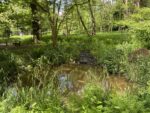
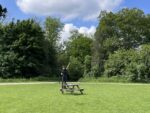
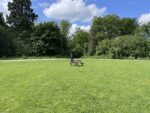
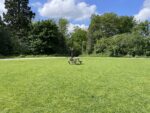
In a recent article on 'breathing climate crises', Blanche Verlie and Astrida Neimanis advocate for a move beyond strategies of bodily 'attunement' found widely in the environmental humanities and toward practices of 'conspiratorial witnessing' involving the use of 'proxy stories' as 'amplifiers and sensitisers' of our own attunements (2023: 126). For these authors, microscopes, qualitative interviews and poems might all be "mediating prostheses that open certain experiences for us" (2023: 126). As I stand on a picnic table on the west side of Founders Field at Royal Holloway, I think about the antenna I am holding as a prosethetic. This is not unfamiliar: together with other members of open-weather, Soph and I have written about the relationship of body to satellite (and DIY ground station) as a “subversive prosthetic” (Engelmann et al., 2022). In later writing (Engelmann, 2023), and in dialogue with Soph’s masters dissertation work on the material politics of radio (Dyer 2017), I have tried to understand the relationship of body to antenna (and satellite) not through the lens of the prosethetic but as a mutual 'agitation': an agitation of embodied and sensory weather knowledges, and, in turn, an agitation of the “scientific weather” made accessible through orbiting satellites. When we use technologies to tell 'proxy stories' of weather and climate, how much do we need to account for the way these stories come into friction, creating agitation and heat? How might this agitation, this heat, itself be a site of 'witnessing climate'? Midway through my satellite pass on Founder's Field I manage to ask a second-year undergraduate 'Financial and Business Economics' student to take some documentation photos of me waving the antenna at the sky. He politely keeps from looking amused or bewildered. Walking down from the field through the Royal Holloway woodland, I can't help but notice the swampy waters of the woodland pool and a green-feathered duck asleep at the bank. The woods are buzzing with green life, but they feel far too warm and languid for May. Later in the afternoon at a staff meeting, serious conversations about university finances cause various states of anxiety and worry, and bodies slope in their chairs. I think: how do we witness when things heat up? What is the 'heat' we witness?
2024-05-14 10:41:48
Sasha Engelmann
Mint Street Park, London, United Kingdom
United Kingdom
NOAA-19

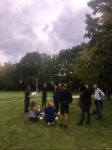
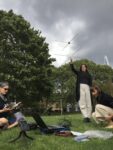
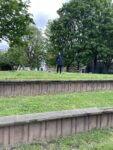
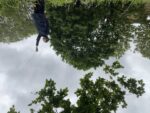
After an early morning appointment near London Bridge I paid homage to a site that hosted one of the first 'satellite seances' of open-weather in August 2019: Mint Street Park. As I set up my ground station next to a large flock of pigeons at the top of the park's terraced mound, I remembered the gathering of people who had participated in a satellite pass and poetry reading (by JR Carpenter) at the same location almost five years ago, as part of a series of gatherings and a reading group called 'Weather or not', led and curated by Arjuna Neumann. Soph and I contributed regularly to the reading group and discussion sessions for several months before open-weather was initiated. Today, the air is far colder and my laptop is speckled with rain. I ask a lone walker to take a photo and he takes fifteen. Later, I am meeting the author and scholar Jean-Thomas Tremblay for coffee in central London. They are visiting London for a conference and it is a rare chance to meet a North American scholar who I admire so much. Tremblay wrote the incredible book Breathing Aesthetics (Duke, 2022) that has circulated widely in the humanities and has inspired entire exhibitions in Canada, and I was asked to review it. The review came out last week. Over coffee, at the end of a conversation about book writing, air scholarship, environmental humanities and 'negative action' (another forthcoming book by Tremblay) I show them the satellite image and ask if they would like to contribute to this weather note. This is a half-typed, half paraphrased record of what Tremblay generously offered: "In the context of the Palestine solidarity movements I am thinking about the lack or absence of the possibility of gatherings for resistance [in London]. I am thinking a lot about denouncement... this has been a bit uncanny to see [here]. When I was in New York City a few weeks ago there was an omnipresence of the performance of politics (in the most generous sense of performance), and I've been looking for it here"
2024-05-10 11:31:05
Sasha Engelmann
Burgess Park, London, United Kingdom
United Kingdom
NOAA-19
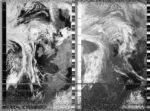
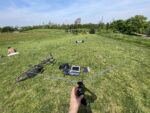
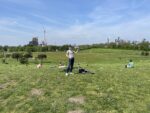
I have been thinking a lot about how atmosphere can gather like a force field around a person, an object, a space, a time. One of my favourite writers of atmosphere Kathleen Stewart, says: 'It was then that I began to think, along with others, that nameable clarities like family or friendship or love or collapse or laughing or telling stories or violence or place are all atmospherics. All forms of attending to what's happening, sensing out, accreting attachments and detachments, differences and indifferences, losses and proliferating possibilities' (2011: 448). This morning I cycled through the uncannily warm, dusty, petrol-infused air of London to Burgess Park, which used to be my local park and the place I captured many satellite images in the early days of open-weather. On the hill in the park I thought about its atmospherics, how my move to Hackney has changed my attachments and detachments to the park's hills, fields, communities and skyline. As if to interrupt my nostalgia, a couple men who had come to lie on the hill started speaking and then fighting. One started laughing at the other, clearly in a way to make him eveny more angry. I rushed to pack up my antenna and rolled down the hill on my bike, noticing that the other hilltop walkers had done the same.
2024-05-09 11:44:18
Sasha Engelmann
Founder's Field, Royal Holloway University of London, United Kingdom
United Kingdom
NOAA-19

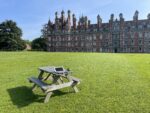
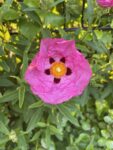
On my walk to the train station at 6:30am, the sun was already warming the park and highlighting its colours. I passed an orchid rockrose that looked eager to be seen, so I stopped and took its portrait. I learned later that rockrose flowers last one day. Later, at the university geography department where I work, I attended a seminar on 'plant humanities' in which someone suggested that plants 'scale time' in nonlinear ways. They hold hours, minutes, and seconds in recursive spirals, cycles and loops. This made me speculate about non-linear plant-weathers. In the orange rays slanting through windows on the train ride home, I wondered if the rockrose was finishing its rotation or defiantly resisting the dimming light, stretching time.
2024-05-08 10:16:19
Sasha Engelmann
Hackney Downs, London, United Kingdom
United Kingdom
NOAA-19
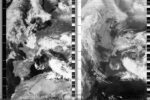
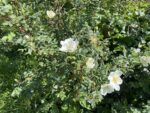
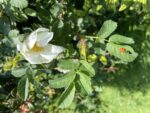
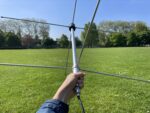
The sun has flooded London these last two days. I use the word 'flood' deliberately as the city feels like it is inundated with light, beyond its own capacity. In central London yesterday on an errand, I noticed people with their eyes closed, standing or lounging on streetcorners. The sun leaks into apartments and buildings through open doors and flung-wide windows. In the park today, I set up my ground station on the south side to feel even more of the sun's rays. Nearby a woman practiced throwing frisbees. A small terrier came running up to me with a growl, but soon softened as I said hello. 'You must be seeing a lot of weather today' the dog's owner said. I didn't know what he meant until he mentioned the thunderous rain on the bank holiday. As we spoke, the dog – who is named 'muffin man' due to an incident with some muffins – cuddled next to me on the grass. As I left I admired the burnet roses and the ladybugs asleep in their leaves.
2024-05-06 10:42:23
Sasha Engelmann
Downs Road, London, United Kingdom
United Kingdom
NOAA-19

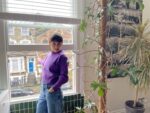
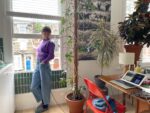
The Met Office have issued a 'thunder warning' and a 'wet washout' to the end of the Bank Holiday weekend. One forecaster commented, 'if you manage to avoid showers, then it will be nice in the sun'. The contrast in these comments struck me as I held my antenna out of the flat window to catch the signal of NOAA-19. If sun... then very nice sun! If rain... then thunder and floods.
2024-05-05 10:51:28
Sasha Engelmann
Hackney Downs, London, United Kingdom
United Kingdom
NOAA-19
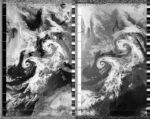
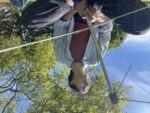
I returned home from Brighton very late last night after celebrating with a group of close friends, and memories of the beach, the sparklers we lit, the twilight and our group dances are fresh in my memory. The sun feels too bright for these memories! In the satellite image, two swirling cyclones curve over the Atlantic and northern Europe, and I am reminded of the von Kármán vortex streets, or repeated patterns of swirling vortices, described by Esther Leslie in her essay on 'Fog, Froth and Foam': 'stress factors on a curve, the agitation of the air, clouds, the wind...'
2024-05-04 21:54:40
Soph Dyer
On the balcony, Wien, Austria
Austria
NOAA-19

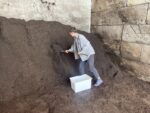
I think I saw NOAA-19! I was looking at the sky at exactly where I imagined NOAA-19 to be, 50 degrees above the horiszon to my West, and there was a faint white dot moving steady across the sky. It's a clear night but there visibility isn't exceptional and the stairwell lights of the neighbouring building kept turning on making it harder to see the stars. Yet, the position and velocity matched those of NOAA-19. I could only track the faint point of light for a few seconds before loosing it. Sasha and I have speculated about what it would be like to 'return the gaze'. I felt that I was locking eyes with an old but elusive friend. I need to think more about this moment and what it means to watch a satellite, watching earth. Watching you, watching me. I was so concentrated that I forgot to take any documentary photo. So, I've uploaded a photo from earlier in the day of me shoving free compost from the city's recycling centre.
2024-05-04 11:04:28
Sasha Engelmann
Hackney Downs, London, United Kingdom
United Kingdom
NOAA-19
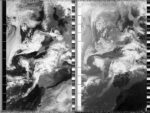
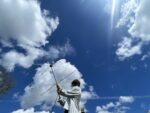
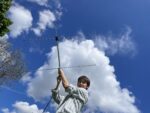
This week in London, there have been lightning storms in the middle of the night. My partner woke up one morning earlier in the week with a story of how the sky flashed brightly at 2am in quick successions of electricity with no thunder. I slept through the lightning. The sky today is a deep cerulean blue, so deep and bright it feels charged, amplified. I wondered about the residual effects of lightning: what happens to the electromagnetic pulses of energy, the sferics, that are emitted? How far do they travel around earth, and do they return?
2024-05-03 10:38:36
Soph Dyer
Schillerplatz, Institut für Kunst und Architektur (Institute for Art and Architecture), Akademie der bildenden Künste Wien, Austria
Austria
NOAA-19


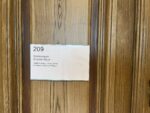
This image was received during a workshop with third year architecture students at the Akademie der bildenden Künste. It is raining heavily, however we got lucky with the weather and satellite orbits. During a dry moment between down pours and drizzle, we stood in Schillerplatz and pointed the turnstile antenna toward NOAA-19. For some reason the signal to noise ratio was poor. I will try to understand why, perhaps the dongle I was using has seen one too many workshops. We tried later in the day with v-dipoles and the students got clear images, so, it must have been my set-up. A noisy image can be intersting in a workshop. Overall we had a good day. During the WebSDR exercise the students heard lots of radio amateur chatter, including two men with heavy British accents talking about one of the men's father passing away. Another students heard a man in Germany describing how the Rhine River had flooded his cellar. All in all, it was a very radio active workshop.
2024-05-01 11:41:15
Sasha Engelmann
Hackney Downs, London, United Kingdom
United Kingdom
NOAA-19
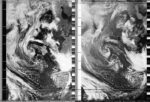
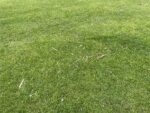
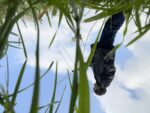
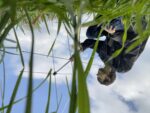
Warmer air has arrived in the UK over the last couple days, and I realised I was overdressed on my way to the park. The grass was still cool and damp to sit on. I wondered about the number of wood shards on the ground before realising how many dogs had been chewing sticks and branches. Two german shepherds chased a ball nearby, and one of them kept lying down not far from me, panting-heaving with his/her whole body. Yet when the ball was thrown again, she went for it. I later met the dog, Akira, when her owner came over to chat. My activities were approved with a 'good on you', and 'we need to know whats going on up there' (hand gesturing to the sky).
2024-04-29 21:16:51
Soph Dyer
Diepoldplatz, Wien, Austria
Austria
NOAA-19

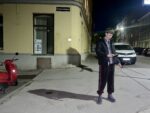
2024-04-25 10:36:33
Soph Dyer
On my balcony, Wien, Austria
Austria
NOAA-19

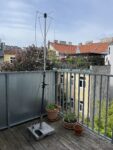
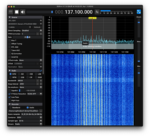

Sehr geehrte W, Ich habe im Januar dieses Jahres eine QFH-Antenne und zwei Zwischenkabel bei Ihnen bestellt.
Ich fürchte, dass ich einige Probleme hatte. Ich habe ein schlechtes SNR bei Verwendung des QFH und eines der Zwischenkabel ist kaputt.
Ich befürchte, dass ich möglicherweise die internen Lötverbindungen an der QFH-Antenne gebrochen habe, obwohl ich nicht glaube, dass sich die Buchsen im Kunststoffteil verdrehen. Haben Sie einen Rat? Wie kann man beispielsweise das Problem eingrenzen?
Sasha Engelmann und ich nutzen Ihre Antennen schon seit vielen Jahren und hatten vorher keine Probleme. Vielen Dank für jede Hilfe.
Mit freundlichen Grüßen, Sophie Dyer
2024-04-23 20:52:44
Soph Dyer
Lorenz-Bayer-Park, Wien, Austria
Austria
NOAA-19
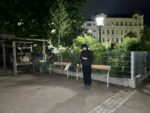
The software defined radio app I was running on my phone crashed as two teenage boys walked right up to N and I and got in our faces. I was a wary. "I'm from Tschetschenien (Chechnya)" one of the boys said. When I told them that I was from the UK, they proceeded to speak in awe about how "you know in London you get stabbed, just like that". When I said that we had lived in South East London they were unduly impressed. The boys willingness to come into our personal space made some sense when they told us that they were on drugs. I asked what and they said cocaine and then, as if to prove it, did a line in front of us on the picnic table. We chatted, I tried to restart the software defined radio and recorded this image (the first recording had corrupted), they offered us a cigarette. The satellite dipped below the horizon. We wished each other "Schön'n Abend", and N and I left the two boys in the darkness of the park.
2024-04-20 10:34:06
Sasha Engelmann
Hackney Downs, London, United Kingdom
United Kingdom
NOAA-19
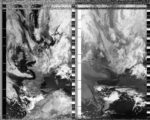
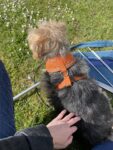
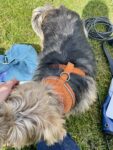
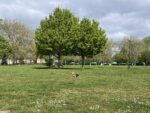
On the far side of the park close to the basketball courts I found myself surrounded by daisies. My head ached from a late night out with old friends, but I felt relaxed and happy to be in the air. The pass was a very social one- two joggers came over to me and inquired about what I was doing. They kept jogging in place for our whole conversation. Bill and Nutmeg appeared, and I learned about an app that notifies you whenever scientists detect gravitational waves- gravitational wave weather? A man on a bike, trailed by two kids, asked one question as he glided past. Finally I was visited by a small terrier who stared longingly at an older woman as she walked away over the field. She called to him but he would not follow her, and she kept going. Instead he came over to me and sat in the middle of my ground station for a couple minutes before bounding over to another dog.
2024-04-11 10:04:37
Soph Dyer
Resting on the grass, Augarten, Wien, Austria
Austria
NOAA-19
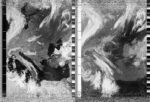
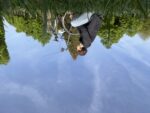
Israel-Palestine, Gulf of Suez, Cairo. Each image yeilds a different combination of landforms, coastlines, rivers and seas by which to orientate by. In land, light and dark patches index dry steppes and deserts, river basins thick with vegetation and cities. I did not capture an image yesterday because I was feeling worn down. In the morning, I had another emergency appointment to diagnose my chronic pain. To express my anger and dispair, I wrote a poem. I am submitting this word-image in place of yesterday's image: 'Try this' It's not an emergency the doctor concluded. / I become so submissive during medical appointments, it was / only when I left the hospital, and / lost another night's sleep to pain, that / I felt like crying and shouting. / Try living with this pain? / Try working after lying awake for multiple nights because / you cannot sleep because / the pain is gnawing at your insides. / Try living with this pain / for more than five years and being told by medical professionals (who you naively assumed would help) / that it is stress, / indigestion, / "your body is changing as you age", / "I have reassured Ms Dyer that the pain is nothing to worry about." / Try living with this pain and repeating those claims. / Screw your lack of emergency. / The discharge note I was sent home with yesterday said I had / blood in my "Douglas Pouch" and advised an operation / using a "DiVinci robot". / How fitting that my body part is named after a man / and the machine that will be used to to probe, cut, mince, remove the my offending flesh is named after a 'male genius'. / Try weathering this climate of sexism. / Try weathering a climate of sexism / in which women's health issues such as endometriosis are still so poorly researched and understood. / Try living with this pain, / then tell me that this not an emergency.
2024-04-10 11:00:03
Sasha Engelmann
Hackney Downs, London, United Kingdom
United Kingdom
NOAA-19

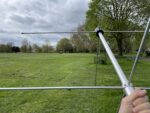
Today my heart is racing and my chest feels tense. I have been in a sprint toward several deadlines. I have several chapters and many thousands more words to review of collaborators' and students' writing today, and every minute counts. Sitting in the grass of the downs was a welcome respite, at first, until a dog fight broke out nearby. One dog owner tackled his dog to the ground, and began agressively yelling and hitting the dog in front of several other dogs and people. An older woman with a terrier tried to intervene to say he should stop hitting his dog, but he yelled at her and she walked off. In the aftermath, the owner of the dog who had been attacked remained, and said to the one who had been violent, 'I would have done the same... everyone knows you here, mate'.
2024-04-07 11:36:53
Sasha Engelmann
Hackney Downs, London, United Kingdom
United Kingdom
NOAA-19

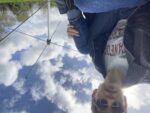
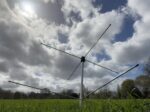
Writing of the atmospheres of the South Asian monsoon, Harshavardhan Bhat describes how the wind 'carries the ocean to the sky... transforming its air and everything in its temporal wake with the possibility of life' (2021: 6). Though monsoons do not occur in the North Atlantic, the aftermath of Storm Kathleen makes me think of the wind 'carrying the ocean to the sky'. The clouds feel like wave crests in fast-moving currents, spinning away from the weakening epicentre of the cyclone. In the park, as I was hurrying to set up under fast-moving clouds, a man and his dog asked what I was doing. After my reply, he said with more than a hint of humour, 'I wonder why I didn't wake up and think of doing that today'
2024-04-04 10:29:25
Sasha Engelmann
Hackney Downs, London, United Kingdom
United Kingdom
NOAA-19
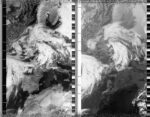
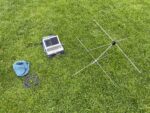
I felt happy to be back on the grass of Hackney Downs setting up my turnstile antenna this morning. After so many satellite passes in this location, I know the heights and depths of the park and its surrounding buildings like a favourite dreamscape. People in the park found me familiar, too. I man on a racing bike cycled over on the grass, and immediately recognised my Funcube Dongle, saying he had the same, as well as a full amateur radio license. We compared approaches to satellites and ADSB, I told him about open-weather, and he said this encounter had inspired him to break out his dongle again. A few minutes later, Bill and his dog Nutmeg came strolling over. Apparently Bill had been talking about me to his friends on the other side of the park, explaining what I was doing, and he approached to take a look at my image, while Nutmeg raced after a tennis ball. It was a good day to share the image, which was a long view of Europe and much of North Africa. Chott Melhrir lake is visible in Algeria, standing out as a dark spot against the lighter hues of Land. I read that this kind of lake, one characterised by Chott geology, is usually dry, but fills with water at certain times of the year. I want to keep a lookout for the lake in the coming months as it dries and most likely becomes crystelline and reflective with salt.
2024-04-03 10:42:32
Sasha Engelmann
London Bridge, over the River Thames, London, United Kingdom
United Kingdom
NOAA-19
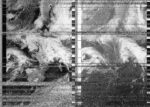
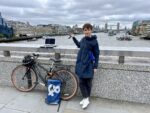
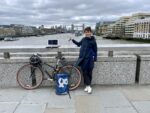
I found myself near London Bridge after an appointment at Guy's Hospital early this morning, a meeting with a specialist doctor which had me thinking a lot about the energy flows through and out of my body. Cycling out to the middle of London Bridge involved ducking and weaving through throngs of tourists and families who, despite the grey and blustery weather, were determinedly taking group photos and pointing at London landmarks. I had to hold my laptop with one hand and orient the antenna with the other, as gusts of wind wobbled both laptop and antenna dangerously close to the edge of the bridge's railing. Passing by my ground station and curiously observing my antenna, a young boy said 'Dad, what is she doing' and was answered with a flat 'dunno.. tracking something'.
2024-03-31 10:38:31
Sasha Engelmann
Via Giovanni da Udine, Latisana, Italy
Italy
NOAA-19

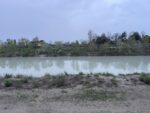
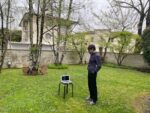
My satellite pass happened in the midst of preparations for 'pranzo di pasqua', and I could year the operations of the kitchen continuing as I set up my ground station and orientated myself in the garden. After driving directly into the saharan dust plume seen on my satellite image yesterday, and spending the night with family in Friuli, I wasn't surprised that the air was still hazy, and the clouds an obscure matte grey. There had been red spot patterns on vehicles and other stationary metal surfaces when we woke up this morning. Later in the day, while on a walk along the Tagliamento river, my throat and eyes felt the dust. As I got ready for bed, a 'tempesta' broke, causing a downfall of rain that my italian hosts called a water 'bomb', a new coloquial term for an extreme, unpredictable and heavy rain.
2024-03-29 10:06:28
Sasha Engelmann
Courmayeur, Aosta Valley, Italy
Italy
NOAA-19

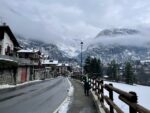
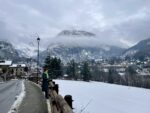
We awoke in Courmayeur, the famous Italian ski resort near Mont Blanc. The weather was a hot topic from our first conversation with the hotel manager at Stella Del Nord, who advised us that the most accurate weather info would not be in our smartphones but in the hands of the ski shop owners. The person we spoke to yesterday evening said definitively 'non e bello', but today the verdict is that the clouds are 'high' and snow won't fall. A strong wind that was rumoured to arrive yesterday, also didn't materialise. To our good fortune- we are headed to the slopes!
2024-03-28 20:06:43
Soph Dyer
Standing outside my flat, in the rain, Austria
Austria
NOAA-19
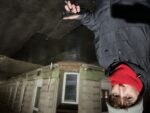
I rush home from the tram in the wind and rain, hoping to leave my things inside before the satellite arrives. I don't make it so stand buffeted by the wind on a street corner. Cars pass me, headlights on. Despite the tall apartment buildings, I catch a strong signal and am feeling happy until, for reasons I don't understand (perhaps the wet) my phone crashes, ending the recording. The experience does not help my sense of being off kilter or out of sync.
2024-03-27 09:26:58
Sasha Engelmann
Hackney Downs, London, United Kingdom
United Kingdom
NOAA-19
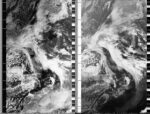
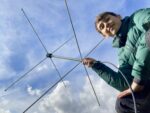
The last twenty four hours have been rainy in a nonstop, relentless kind of way. Today, shadows chase each other across the grass of the park as clouds give way to bright sun. My observations of shadows were interrupted by a squeeling bundle of dogs leaping by. One of the owners got upset that his dog had nipped another. For the next few minutes the park echoed with loud cry: 'Bruce!! that's THREE dogs today!!!'
2024-03-26 19:32:35
Sasha Engelmann
Downs Road, London, United Kingdom
United Kingdom
NOAA-19
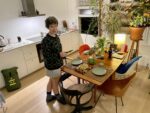
The sound of the satellite, low and noisy over the nighttime horizon, mixed with the sizzling of a frittata and the slicing of salad leaves.
2024-03-22 19:38:12
Soph Dyer
Leaning out of the window at home, Wien, Austria
Austria
NOAA-19
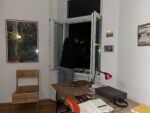
2024-03-20 09:12:20
Sasha Engelmann
Hackney Downs, London, United Kingdom
United Kingdom
NOAA-19

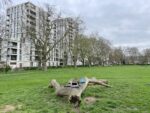
I perched my ground station on a forked tree trunk that lies on the grass in Hackney Downs. The bark and most of the trunk is wet but, unlike fallen trees that I've seen in forests, it doesn't feel like its decomposing. I wondered whether this tree has been preserved in some way, or whether its decomposition is slowed by the relative bareness of its surroundings.
2024-03-19 09:23:53
Sasha Engelmann
Hackney Downs, London, United Kingdom
United Kingdom
NOAA-19
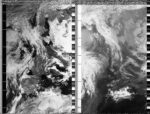
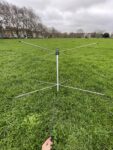
In today's satellite image, the the rivers Garonne and Dardogne are very prominent, carving a dark line into the west coast of France and joining into a delta meeting the Atlantic. In the High North, Lake Onega is a pale white, suggesting it is entirely frozen.
2024-03-18 09:35:45
Sasha Engelmann
, United Kingdom
United Kingdom
NOAA-19
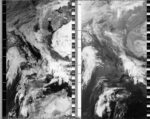
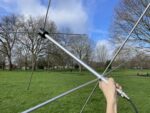
Last night, while sitting in the corner of the park on a bench under a streetlamp, an older, long-beareded man on a bike stopped, circled around, and told me I was 'too far into the park'. He advised me to go to the edge of Downs road to be safe, and added 'you are my daughter too'. This encounter stayed with me as I went back to the park this morning for a satellite pass, and looked at the distance between the bench and the streetcorner – a matter of metres – but in the dark, perhaps much more than that.
2024-03-15 09:32:12
Soph Dyer
Augarten, Wien, Austria
Austria
NOAA-19
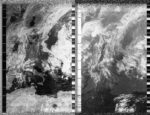
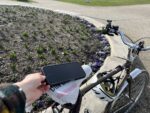
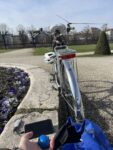
This is the first weather note I write in almost a month. The pansies have been planted out in Augarten. I rested my bike on the stone of circular flowerbed and used a mobile phone and my v-dipole antenna to receive a long image. I took with me a cooked painted egg, which I dropped in the gravel when peeling and had to throw away. It is a clear, sunny day.
2024-03-15 09:32:12
Soph Dyer
Augarten, Wien, Austria
Austria
NOAA-19
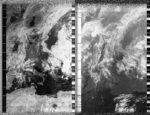
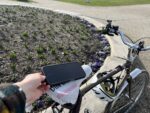
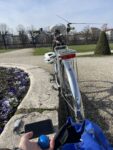
This is the first weather note I write in almost a month. The pansies have been planted out in Augarten. I rested my bike on the stone of a circular flowerbed and used a mobile phone and my v-dipole antenna to receive a long image. I take with me a painted cooked egg, which I drop in the gravel when peeling and have to throw away. It is a clear, sunny day.
2024-03-13 09:00:48
Sasha Engelmann
Royal Holloway University of London, United Kingdom
United Kingdom
NOAA-19
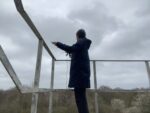
I went for a very low pass today – only around thirty degrees over the horizon – but thought I could get something from the top of the fire escape at the back of Queens Building where the Geography Department is situated. Unfortunately there wasn't much of a signal, and for several minutes at the height of the pass, bursts of interference blocked any chance of clear reception. Still, standing at the top of the fire escape gave me an amazing view of the residential neighbourhoods to the East of the university campus, and I could clearly see airplanes taking off and landing at Heathrow Airport, just over the reservoirs.
2024-03-07 10:11:22
Sasha Engelmann
Hackney Downs, London, United Kingdom
United Kingdom
NOAA-19
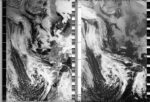
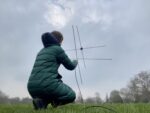
A cold mist is hovering over Hackney today. Fewer people seemed to be out with their dogs, though it could also have been the timing of the satellite pass. However a group of people had gathered on the far side of the open field near Downs Road, bikes fallen sideways on the grass. They were stood in a wide circle doing slow movements with their arms and legs. As they were mostly dressed in long puffer coats and thick scarves, and because of the blurring fog, they looked like people made of cushions or marshmallows, moving slowly in coordination.
2024-03-06 19:34:04
Soph Dyer
At home, Wien, Austria
Austria
NOAA-19
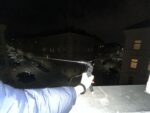
2024-03-06 10:25:49
Sasha Engelmann
Founders Field, Royal Holloway University, United Kingdom
United Kingdom
NOAA-19

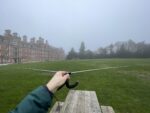
The university campus is coated and swathed in fog today. I set up my ground station on the near-end of Founders Field and could barely make out a group of students smoking (or just breathing in the cold) on the picnic table on the other side of the field. I met some colleagues in the local cafe afterward and they mentioned the fog to me too: 'it must be nice to see out of the fog today'...
2024-03-03 11:00:47
Sasha Engelmann
Hackney Downs, London, United Kingdom
United Kingdom
NOAA-19

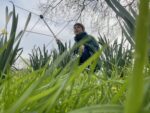
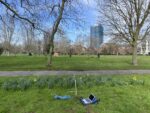
The bulbs and magnolias in Hackney Downs have been blooming in wild and 'spontaneous' groups. Across the UK, magnolias and camellias are blooming four weeks earlier than last year. As if in counterpoint to the conversations I had yesterday, today two older women and their dogs came up to me as I was kneeling by the daffodil beds in the park. One of their dogs, a terrier with huge whiskers, had come over to check out my antenna. The women were both wearing dark sunglasses and wool coats, and apologised for being 'nosey' before asking what I was doing. One of them remarked, 'there must be a whole group of people like you out here, I have seen them around'. I replied I didn't know who this group was, but that perhaps she was seeing me, as I had been in the park with my antenna almost every day (though the possibility of a secret Hackney Downs satellite group stayed with me). A younger woman then ran up to us, apparently having gotten confidence from the older women, and asked more questions with a lot of excitement- she had assumed I was tracking 'geotagged' animals, like birds.
2024-02-29 09:57:27
Sasha Engelmann
Hackney Downs, London, United Kingdom
United Kingdom
NOAA-19

There weren't clear signs of rain when I left my house to go to the park, but as I arrived in the open I could feel a sideways blowing mist of very fine droplets. Once my laptop was out for a matter of minutes it was complete coated in water. I debated the risks of completing the pass vs laptop damage, and decided to keep going, though huddled over the computer with my body. I imagine I looked quite strange to passerby- a hooded person bent over a small screen, trying to hold an antenna with one oustretched arm.
2024-02-28 10:08:55
Sasha Engelmann
West Field, Royal Holloway University, United Kingdom
United Kingdom
NOAA-19

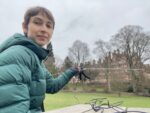
I was aware today that a meadow has its own weather. As I captured the satellite pass, I was conscious of the way the air in 'West Field' at Royal Holloway, surrounded by oak and plane trees, seemed denser than it had felt on my walk up the hill to campus. The open sky over the meadow seemed closer than it had when I woke up in London.
2024-02-10 10:26:48
Sasha Engelmann
Hackney Downs, London, United Kingdom
United Kingdom
NOAA-19
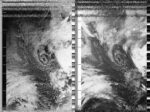


My ground station merged with the wet grass and mud of Hackney Downs field this morning. Mud was everywhere- attaching itself to my antenna bag, on the RF cables, the antenna dipoles, my coat and shoes. Nearby a young boys' soccer team was playing a morning match, egged on by a very loud coach who kept yelling at players by name and asking them 'who are you playing for?!'. I had forgotten my phone so I took photos of my ground station with my laptop camera. They were dark and gloomy but they somehow captured the atmosphere of the field, the game and the intermittent storm clouds.
2024-02-07 09:22:06
Sasha Engelmann
Founders Green, Royal Holloway University of London, United Kingdom
United Kingdom
NOAA-19
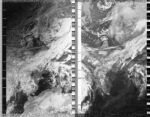
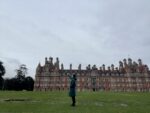
Today is wet, cold, soggy and muddy. A storm swept through London last night, and pattered the windows of my flat for most of the night. Most commuters early this morning had an air of being half-asleep and were hunched down into their scarves and woolly hats, like sea urchins. Founder's field, where I collected the satellite pass, was empty except for me with my V-Dipole antenna and laptop.
2024-02-06 09:35:09
Sasha Engelmann
Russell Square, London, United Kingdom
United Kingdom
NOAA-19

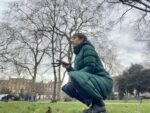
The westerly wind was so strong this morning that, on my bike ride from East London to Bloomsbury, I felt at times that the strength of my body wouldn't manage to move my bike forward, and I regretted my choice to cycle in the first place. I was sweating so profusely inside my green puffer jacket that, once I arrived in the square, I risked the cold air and took off my coat to try to air myself out. I coudl tell that passerby were wondering what a person in nothing but a thin shirt and blazer was doing holding a metal object to the sky at half past nine, but no one approached me. On my cycle home in the evening, the wind, as I hoped it would, practically carried me forward, so that the roads felt glossy and smooth.
2024-02-05 20:36:24
Soph Dyer
At home, on the window ledge., Austria
Austria
NOAA-19

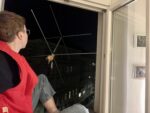
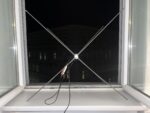
Turbulence: outside, between me and my partner, in my body. I saw on a forecast map that the jet stream is between me and Sasha. The winds leaving London appear to arrive in Vienna. I like this thought, that we are asynchronously sharing the same air. I imagine messages, aeroplankton (Luftplankton), and water vapour moving between us.
2024-02-04 19:08:31
Soph Dyer
In a field by the motorway, somewhere outside Klagenfurt, Austria
Austria
NOAA-19
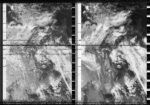
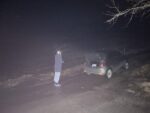
Today I swam in an alpine pool next to melting ice. I am recieving this image a dark hill, by a motorway, under the stars.
2024-02-02 10:28:19
Sasha Engelmann
Downs Road, London, United Kingdom
United Kingdom
NOAA-19


London is gray and cold today, with a haze that feels like a soft blanket. On my way to buy bread this morning, the air made street corners, cars and shops look a little fuzzy. Being inside a bakery, and back in my flat with a warm loaf of bread and a coffee, was deeply comforting. It feels like good weather to be tidying up the house, changing sheets and watering plants.
2024-01-29 20:20:46
Soph Dyer
Entrance of Augarden, Wien, Austria
Austria
NOAA-19

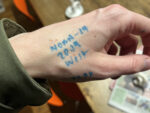
It's clear and cold again, when I left for work this morning the rooftops were frosted white. Frost always takes me back to childhood. When there was a heavy or hoarfrost, I would go out before school to slide down the field opposite our house on a tray. Sledging on frost felt more risky, edgy, than on snow – the frozen ground could easily inflict bruises. It was also a sport no one else seemed interested in, so I had the field to myself – bold and alone.
2024-01-28 20:35:07
Soph Dyer
Inside with the antenna strapped to a curtain rail, tied to my balcony in Wien, Austria
Austria
NOAA-19

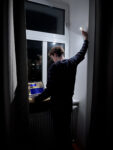
Beautifully sunny. The woods are free of snow and ice, and full of walkers. I went on a solo hike in the Wienerwald, stopping for lunch at Toiflhütte, and breathing plenty of Waldluft. The birds continue to sing. I heard blackbirds, crows, wood peckers, a jay, and small song birds. The temperature is a frosty 5 degrees centigrade, with no wind.
2024-01-26 10:10:04
Sasha Engelmann
Hackney Downs, London, United Kingdom
United Kingdom
NOAA-19

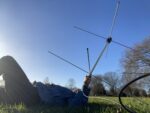
The sky is a deep cerulean blue today – cloudless, and slightly purple in hue. I spent part of the satellite pass lying on my back looking up. The grass was so wet and cold that I didn't stay on the ground long, but the feeling of being engulfed in a January blue has stayed with me.
2024-01-25 10:21:30
Sasha Engelmann
Hackney Downs, London, United Kingdom
United Kingdom
NOAA-19
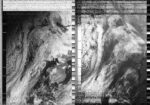
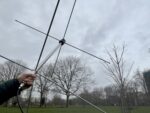
Today the park was spontaneously drizzly and I hunched over my laptop to keep it dry for the ten minutes of the pass. As I was crouched so low to the ground for most of the time, I experienced the weather of the park at the height of a small child or animal.
2024-01-22 20:08:39
Soph Dyer
Leaning out of the Northeast facing window of my flat, Wien, Austria
Austria
NOAA-19

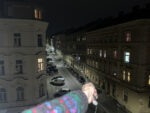
I have been inside most of today. The weather inside is stuffy.
2024-01-21 20:19:49
Soph Dyer
The balcony of my flat, Wien, Austria
Austria
NOAA-19

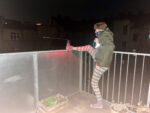
Frosty, slowly defrosting. This morning, I woke to a blackbird singing. There is still snow on the ground in the woods. Sasha and I have been receiving NOAA satellite imagery everyday for one month!
2024-01-20 20:32:35
Soph Dyer
Inside my bedroom! Wien, Austria
Austria
NOAA-19


It's clear but cold. I'm still feeling unwell (again!) that I think it feels colder to me than it actually is. I stayed inside during the satellite pass.
2024-01-18 08:13:21
Soph Dyer
The balcony of my flat, Wien, Austria
Austria
NOAA-19
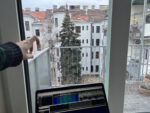
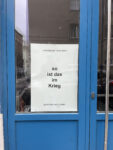
So icy underfoot! My body felt sluggish this morning from a lack of sunlight and and my period. I ventured outside only to grip the v-dipole antenna to the balcony railing and then stayed inside for the duration of the satellite pass.
2024-01-18 09:26:57
Soph Dyer
The balcony of my flat, Wien, Austria
Austria
NOAA-19

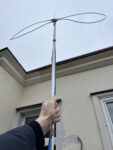
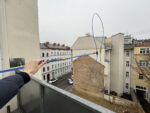
I tried the loop antenna again, this time squashing it into a folded dipole. The result was not good. Despite the near overhead position of the satellite, I could barely hear its transmission. I experimented with orientating the antenna vertically and horizontally.
The temperature feels a warm 2–5 degrees this morning. It is raining lightly.
Over WhatsApp, my brother sent a photo of the sun rise off the coast of Cornwall. In return, my mum shared a photo of her frosty garden. In both photos, the sky was clear. Yet an hour later my sister’s partner sent a video of large snow flakes falling in Truro. The weather in the UK is so much more changeable than in Austria. Here we have steady, continental weather. British weather is sea weather.
2024-01-17 09:39:48
Soph Dyer
The balcony of my flat, Wien, Austria
Austria
NOAA-19

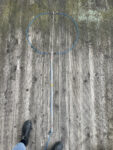
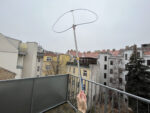
Cold, small, icy snow flakes. I had to keep my laptop inside. I used the loop antenna, elevated by a curtain pole to 1.5 metres. The antenna was highly directional, and so was challenging to keep tuned to the satellite.
There is still pockets of snow on the rooftops. It feels around –3C outside. It wasn't forecast to snow today but the clouds are a pale white-grey and city has the deadened acoustic quality of a snow day. The light level is low.
2024-01-14 20:03:14
Soph Dyer
Wien, Austria
Austria
NOAA-19

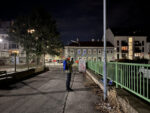
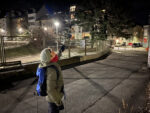
I wore too many wooly layers! It was milder than I expected, around zero Celsius. My ground station was between the bins and the Austrian Post Academie. A few stars were visible between the clouds and light pollution. People hurried past: a dog walker, a parent and child, a runner. I have felt restless today. I asked Nicola about the weather: he says people are ice skating on the nearby pond in Türkenschanzpark.
2024-01-11 09:51:05
Sasha Engelmann
Hackney Downs, London, United Kingdom
United Kingdom
NOAA-19
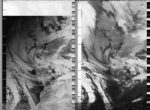
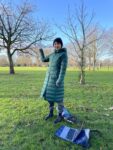
I wanted to catch the satellite pass in my back garden, but the gate was so cold the lock had frozen or stuck, and I couldn't open it. I hurried to Hackney Downs and found a spot very close to the entrance in the long shadows of the plane trees. As I was listening to the satellite a woman with bright pink gloves came up behind me and asked what I was doing. When I told her about the satellite and my radio antenna, she immediately asked – are you a creative? This is the second time a person in Hackney Downs has asked me whether I am a 'creative' while I am holding my antenna. She kindly took the photo I uploaded.
2024-01-11 10:46:05
Soph Dyer
Eline Vere Park, Den Haag, The Netherlands
The Netherlands
NOAA-19
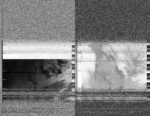

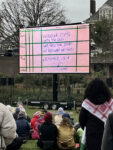
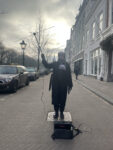
"GLOBAL SOLIDARITY CALL WITH SOUTH AFRICA. JUSTICE FOR GAZA, MANIFESTATION AND LIVESTREAM OF COURT HEARING. Bring banners and signs with text: 'No genocide, No ethnic cleansing, Anywhere', 'Justice for the Palestinians', IsraelOnTrial for its #GazaGenocide'" @free.palestine.nl
Today, I am unable to organise my experience of the weather into the coherent report.
At lunch, I stood in the park behind the ICJ and watched a live stream of South Africa's lawyers argue that Israel is intended to commit genocide.
Outside it is still below freezing.
A street away, the students are build antennas:
Ice-tennas,
Tree branch-tennas,
Finger-tennas.
2024-01-10 20:50:30
Carmen
Zuiderstrand Den Haag, Netherlands
Netherlands
NOAA-19

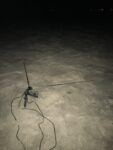
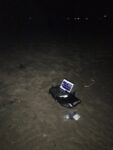

It was a super cold night. Around that time polar jet streams brought cold air onto mainland euorpe as the polar vortex at the north pole was discrupted beginning of this year. The beach was surprisingly calm. No wind interferred with the recording and the sound of the satellite came in clearly.
2024-01-10 10:02:11
Sasha Engelmann
Hackney Downs, London, United Kingdom
United Kingdom
NOAA-19
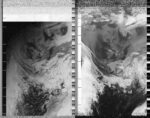
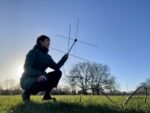
The grass crunched with frost this morning, and the air was so cold that my hands felt clumsy while assembling the antenna. Midway through the pass, a beautiful Italian greyhound in a pink sweater came over to investigate.
2024-01-06 20:00:00
Soph Dyer
Wien, Austria
Austria
NOAA-19

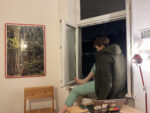
Cold. It's been raining all day. I held my antenna out of the window.
2024-01-05 20:16:07
Soph Dyer
Wien, Austria
Austria
NOAA-19

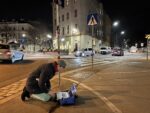
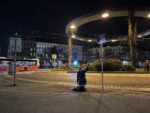
Chilly and noisy (cars, mopeds, buses)
2024-01-05 09:59:43
Sasha Engelmann
Heather Village, Fox Hills, California, USA
USA
NOAA-19

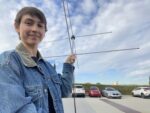
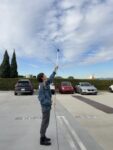
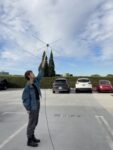
Standing in an elevated parking lot attached to the Heather Village condominium complex in Culver City, Los Angeles, I could hear engines starting and wheels tentatively moving as commuters started their day. The nearby 405 Freeway made a constant whoosh-hum, and airplanes took off and landed at LAX.
2024-01-04 08:26:26
Sasha Engelmann
Yucca Valley, California, USA
USA
NOAA-19
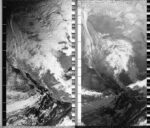
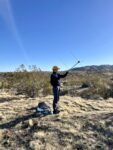
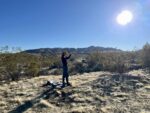
A pack of coyotes howled in the distance as I captured this satellite image. I was on the edge of Yucca Valley bordering Joshua Tree National Park, and while the air was cold, the sun was very strong, reaching into the crevices of the hills and boulders. The wind whistled among the Joshua Trees and Cholla Cacti. I felt very 'close' to the satellite too- there was so little radio noise, the moment I picked up my antenna, the satellite signal came through clearly, even though it had barely crested the northern horizon. I didn't need to look at the compass on my phone because the north star had shone so brightly the previous evening and it was easy to remember where 'north' was.
2024-01-03 20:34:37
Soph Dyer
Fondamente Nove, Venice, Italy
Italy
NOAA-19
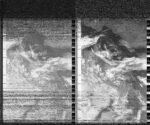
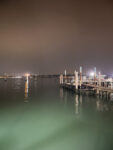

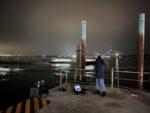
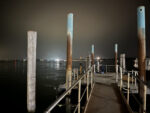
It is a beautifully still night on the Venice lagoon; overcast, but with good visibility. I captured the image from a floating pontoon on the Fondamente Nove. As the satellite passed overhead, the pontoon was rocked by passing Vaporetti. I made a sound recording of water and radio waves mixing with the and clinking metal of the pontoon and a man singing.
2023-12-30 09:32:43
Sasha Engelmann
Fox Hills, Culver City, California, USA
USA
NOAA-19

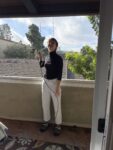
On my way to LAX airport to drop off my brother this morning, the air was so misty and wet, and the rain was so "strong", that people were driving at almost half the normal speed limit- a sign that the rain is affecting how people feel in LA. I didn't think the same would be true of people or drivers in the Pacific Northwest or Europe. By the time I caught the satellite pass, the clouds had parted and the sun was hot on the balcony.
2023-12-29 09:43:41
Sasha Engelmann
Fox Hills, Culver City, California, USA
USA
NOAA-19

The air has been warm but the visibility is low- a light fog has settled over the Los Angeles basin. Throughout the day the fog became more dense, and was likely trapped by the marine layer of cold air coming in from the Pacific.
2023-12-28 09:58:30
Sasha Engelmann
Heather Village, Culver City, California, USA
USA
NOAA-19


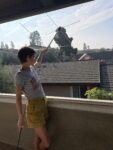
A very warm, bright balcony
2023-12-25 09:20:08
Soph Dyer
Wien, Austria
Austria
NOAA-19

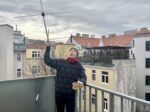
Grey and so warm. It's Christmas (and my birthday). The horrors being reported from Gaza seem to be worsening: Heavy weather, lethal weather. Clouds maps are always moving. Clouds make visible our shared breath.
2023-12-24 09:29:15
Soph Dyer
Wien, Austria
Austria
NOAA-19

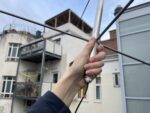
windy, mild, a small amount of blue sky, it's Christmas eve!
2023-12-23 09:12:47
Sasha Engelmann
Culver City, California, USA
USA
NOAA-19
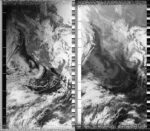
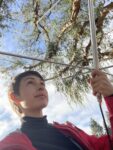
Today the light is a pale yellow and the air shimmers with leftover water evaporating from puddles and storm drains in LA. The city smells more intensely, as if all the materials on concrete surfaces, roads and sprawling buildings have sublimated. Throughout the satellite pass, the roar of airplanes taking off from runways at nearby LAX was palpable, though the misty clouds meant none of the planes could be seen.
2023-12-22 09:25:50
Sasha Engelmann
Culver City, California, USA
USA
NOAA-19
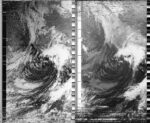
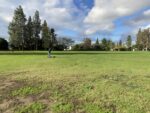
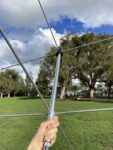
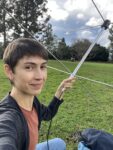
There were flood risks in Southern California over the last few days as the region received storm cell bursts. I recorded my image during a clear break in the rain, though the air, ground, trees and sidewalks were still soggy. A woman was throwing a branch to her Australian Shepherd in the park while I was recording the image. The dog was kicking up so much mud its multicoloured fur was completely mud-coloured after a few minutes. As I returned inside after the satellite pass, another burst of rain began pounding the roof of my Mom's condo.
2023-12-22 09:53:21
Soph Dyer
Wien, Austria
Austria
NOAA-19

clear skies after a storm, solstice sun, strong warm wind, wet wood of the balcony
2023-06-01 10:46:06
Rectangle
Mount Florida, Glasgow, Scotland
Scotland
NOAA-19


Warm and cloudy
2023-05-18 10:25:53
Ankit Sharma
West Lafayette, Indiana, USA, United States
United States
NOAA-19
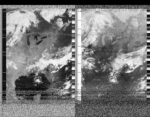
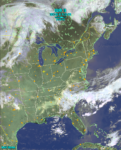
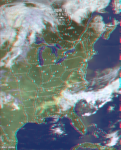
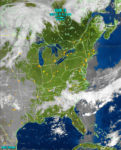
Clear sky, temperature – 20 deg. Celsius
2023-03-13 11:39:33
CRA
Goldsmiths University London, United Kingdom
United Kingdom
NOAA-19
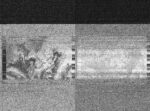
2022-12-07 19:36:41
Maddie J.
Egham, Surrey, United Kingdom
United Kingdom
NOAA-19
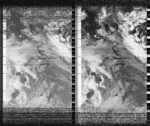
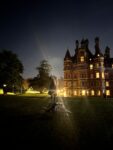
The weather was very cold, hitting 0 degrees celsius during the pass. There was very little wind, only 4mph from the north west.The sky was mostly clear, with some wispier clouds towards the south eastern horizon. The UK is currently experiencing a cold turn with air from the Arctic spreading south across the country and bringing freezing to near-freezing temperatures. In response the Met Office has issued a Level 3 Cold Weather alert across England with very cold nights expected. Due to the ongoing UK Energy Crisis, which has driven household energy costs up, I fear what this cold spell could mean for those trying to save money by not using their heating, those who cannot afford to turn on the heating, and indeed those without heating at all.
During the satellite pass, the warmth of my hands against the cool metal of the turnstile created condensation, making it slippy to hold. As the pass went on my hands lost more feeling, until by the end I couldn't feel them at all, making it difficult to hold the turnstile and afterwards stop the recording and begin to decode it.
2022-10-08 07:20:00
Jotunheimr
Barra, Rio de Janeiro - RJ, Brazil
Brazil
NOAA-19
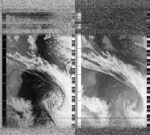
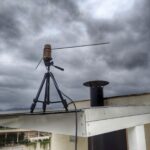
Day pass over South American east coast
2022-05-08 09:49:50
subrealic
Athens, Greece
Greece
NOAA-19
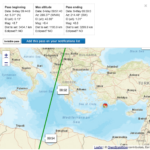
clear sky, surrounded by higher buildings
2022-04-17 20:04:07
DaliMDN
London, England
England
NOAA-19

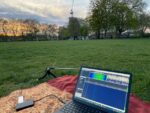
There was almost no wind, the sky just above was clear and the temperature was slowly lowering as the sun was setting behind distant clouds.
2022-02-12 19:14:52
Andric Spaeth
Kassel, Germany
Germany
NOAA-19
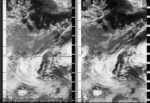

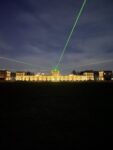
Partly Cloudy
2021-11-21 08:14:24
Jon Uriarte
Hilly Fields Stone Circle, Hilly Fields, Brockey, London, England
England
NOAA-19
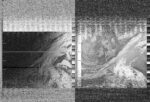
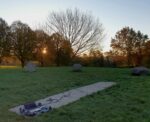
Bluesky cold and beautiful sunrise
2021-10-31 19:41:20
WXVids
Albany, NY, USA
USA
NOAA-19

2021-11-01 07:30:00
Yoshi MATSUOKA
Atsugi Kanagawa, Japan
Japan
NOAA-19

Pattern of cloud is the beauty of the nature.
2021-11-01 08:07:13
Natasha Honey
Newcastle, NSW, Aaustralia
Aaustralia
NOAA-19




Bright, Sunny. Not many clouds in the sky, cool breeze.
2021-11-01 05:44:00
Yoshi MATSUOKA
Atsugi Kanagawa, Japan
Japan
NOAA-19

2021-10-31 17:57:31
Sybille
Berlin, Tempelhofer Feld, Germany
Germany
NOAA-19




A clear sky, slightly damp, fresh autumn air, windstill.
2021-10-31 18:56:46
Aouefa Amoussouvi
Bucharest, Romania
Romania
NOAA-19

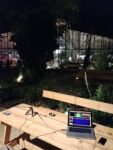
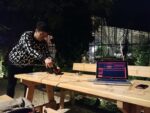
cosy chill evening
2021-10-31 08:33:00
Zack Wettstein
Seattle, Washington, USA
USA
NOAA-19
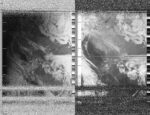
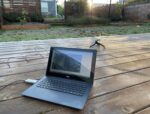
I was crouched on the ground, huddled against the cold, my knees pressed on the frosty wood slats, as I was capturing the NOAA19 pass this morning. The sun had just risen and was gently warming the surroundings, and I watched the frost melt during the recording. This cold, dry, autumn, morning, with no wind in sight, is in stark contrast to the weather of the past week, when we were struck with an atmospheric river of rain from a bomb cyclone off the Pacific.
2021-10-31 08:11:09
Carl Reinemann Usradioguy.com
Jefferson Wisconsin, United States
United States
NOAA-19
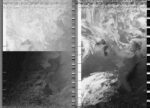
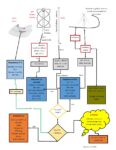

Cold, 44° F Fall is upon us and the leaves are crimson red
2021-10-31 12:55:43
Barfrost
Kirkenes, Norway
Norway
NOAA-19
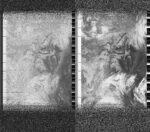

cold and fog
2021-10-31 20:44:11
Natasha Honey
Newcastle, NSW, Australia
Australia
NOAA-19




Windy and cool, misty and foggy.
2021-10-31 08:07:11
Jasmin Schädler / FamSchä
Stuttgart, Germany
Germany
NOAA-19




The weather this morning was beautiful and since we just ended daylight saving last night it was already really bright and also quite sunny. The temperature felt very agreeable even at 9 degrees due to the sun. There was some fog lying over the city and the sun light was defused by some thin clouds. There was almost no wind. I chose an outlook platform for this pass that is located such that the trajectory from N-E-S was free of obstacles. I had a perfect view over the valley that the inner city of Stuttgart is located in. Even though the pass had an elevation of 70°, I had trouble receiving the signal. It felt somehow deflected and was difficult to capture. The whole pass was very noisy and the resulting image is almost pure distortion.
2021-10-31 07:34:44
Ankit Sharma
Mumbai, India
India
NOAA-19
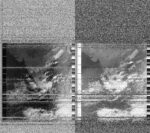
Weather during this reception was pleasant, windy moderate temp of 27 degree Celsius felt like 25. Humidity was high. Sky was totally clear with no clouds.
2021-10-31 07:25:00
Chonmapat Torasa
Bangkhen, Bangkok, Thailand
Thailand
NOAA-19

2021-10-31 07:35:08
Dey Kim
Goyang, South Korea
South Korea
NOAA-19
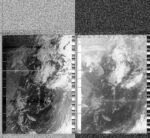
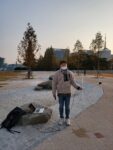
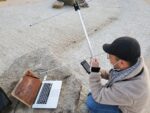
Partly cloudy
2021-10-07 03:51:53
Asst. Prof. Dr. Chonmapat Torasa
,
NOAA-19
2021-09-19 03:51:53
Lothringer 13 Halle
,
NOAA-19

2021-09-18 03:51:53
Lothringer 13 Halle
,
NOAA-19

2021-09-17 03:51:53
Lothringer 13 Halle
,
NOAA-19

2021-09-13 03:51:54
Lothringer 13 Halle
,
NOAA-19
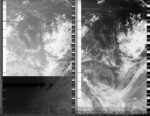
2021-08-13 03:51:55
Lothringer 13 Halle
,
NOAA-19

2021-07-29 03:51:55
Lothringer 13 Halle
,
NOAA-19

2021-07-24 03:51:55
Lothringer 13 Halle
,
NOAA-19

2021-01-23 03:51:57
FamSchä
,
NOAA-19

This image was received together in collaboration with my mum. We were not able to receive a signal although all the settings were correct so we tried to change location and walked to the open crossway close by. Eventually I saw the signal at 138.009.662 instead of the regular NOAA 19 frequency which I had set Cubic SDR to. I changed frequency and suddenly we received the signal and started recording. So far nobody has been able to explain this frequency shift of the satellite to me. Any hints are welcome.
2020-11-07 03:51:57
n.n.n. collective
,
NOAA-19

The recording was done in the proximity of Kunstverein Wagenhallen e.V. The occasion was the preparation of an exhibition dealing with Hegel's universalism and its influence on location and mapping as political practices. The area is industrial and surrounded by a lot of large metal constructions.
2020-09-21 03:51:58
FamSchä
,
NOAA-19

This recording happened by accident. We were playing around with the antenna on the porch and suddenly the signal appeared so we decided to record it. The antenna was held by three people, one did it for the first time. It was a pleasant evening with the BBQ just heating up.
2020-09-18 03:51:59
FamSchä
,
NOAA-19

This image was taken in the proximity of many more turnstile antennas during a group sensing session as the finale of an amazing workshop. The surrounding was an artist built compound. It was my very first recording.
2020-09-09 03:51:59
Carl Reinemann
,
NOAA-19
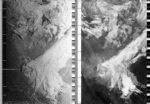
Overcast with rain showers all day. High 56F. Winds NE at 10 to 15 mph. Very Gloomy
2020-09-06 03:52:00
zwettstein
Seattle, Washington, USA
USA
NOAA-19

Currently experiencing wildfire particulate drifting in from the Pacific Ocean, originating from forest fires in Oregon and California…
2020-09-07 03:52:00
Steve Engelmann
Hills of Malibu, CA, USA
USA
NOAA-19

I drove up into the hills of Malibu. It was 41°C. I hope everything recorded correctly. I heard the ticking. I'm very interested to see what it looks like.
2020-09-06 03:52:00
Sasha Engelmann
Schloss Solitude, Stuttgart, Germany
Germany
NOAA-19
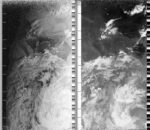

Excerpt from 'Autumn' by Rainer Maria Rilke:
The leaves fall, fall as from far,
Like distant gardens withered in the heavens,
They fall with slow and lingering descent.
And in the nights, the heavy Earth too, falls,
From out the stars into the Solitude.
2020-09-06 03:52:01
Ankit Sharma
Mumbai, India
India
NOAA-19
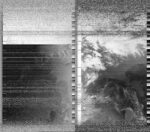
Sky – Clear, Ambient Temperature – 29 degree Celsius, Night Pass, Country – India.
2020-09-06 03:52:01
Bill
Reston, Virginia, USA
USA
NOAA-19

2020-09-06 03:52:02
Ankit Sharma
Mumbai, India
India
NOAA-19
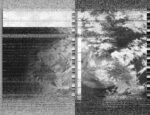
Sky – Cloudy, Ambient Temperature – 31 degree celsius, Country – India.
2020-09-05 03:52:02
Bill
Reston, Virginia, USA
USA
NOAA-19

2020-09-05 03:52:03
Yoshi Matsuoka
Atsugi Kanagawa, Japan
Japan
NOAA-19
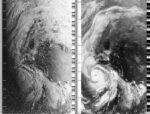
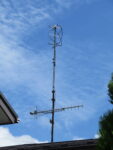
2020-07-26 03:52:03
Sasha
,
NOAA-19
